
Louis
International Building Princeton University Princeton, NJ 08544
Phone: 609.258.3657
contact@princetoninasia.org www.princetoninasia.org



Louis
International Building Princeton University Princeton, NJ 08544
Phone: 609.258.3657
contact@princetoninasia.org www.princetoninasia.org

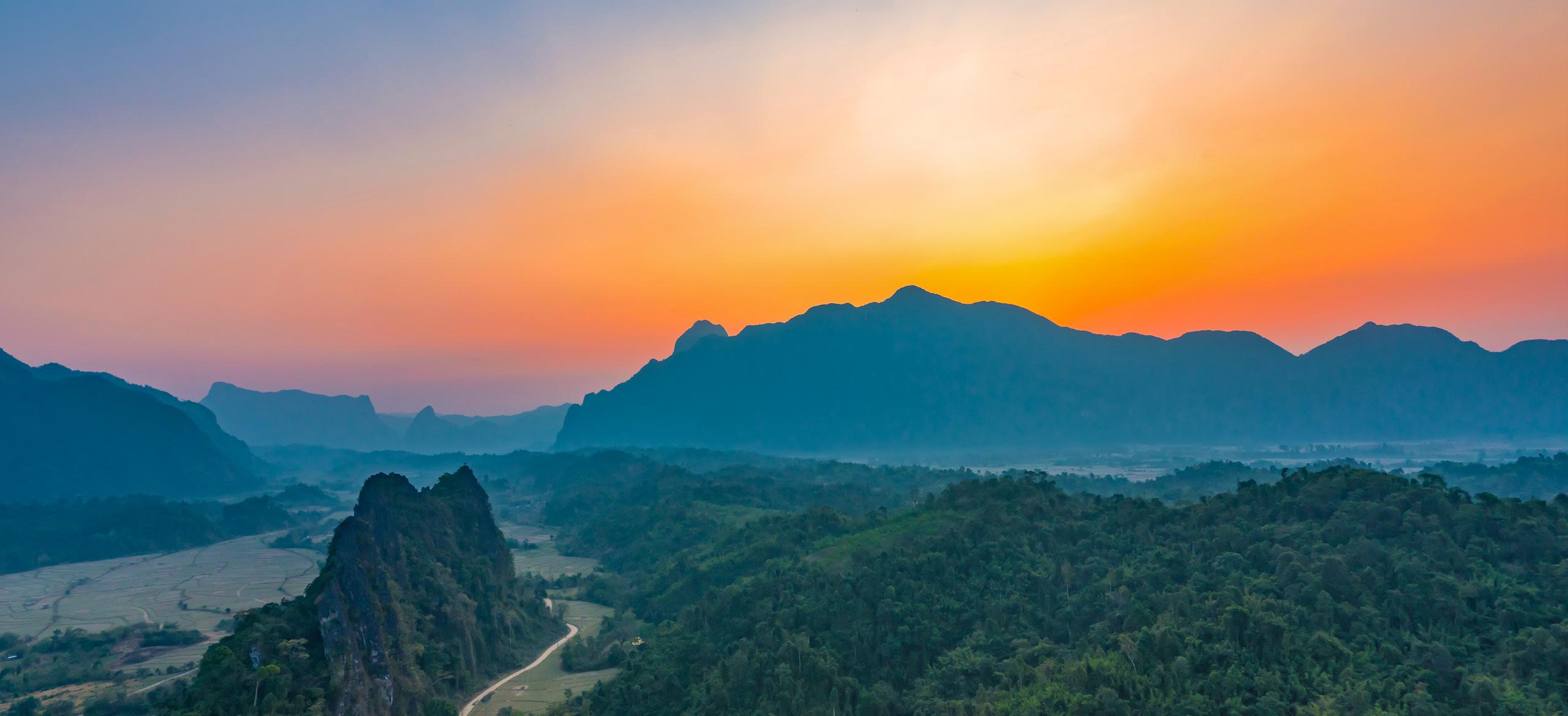
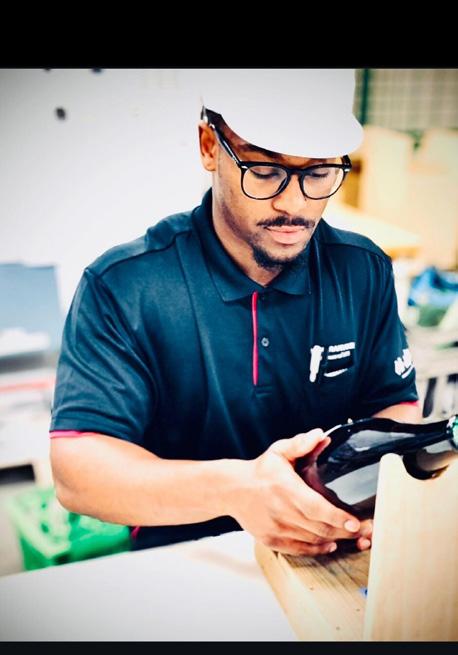
TAYLOR | Niizawa Sake Brewery | Kawasaki, Miyagi, Japan
What has surprised me the most thus far is all of the relationships that I have developed with the people in my immediate host community, Kawasaki Machi (Miyagi), have been with people that have very limited experience with foreigners and have had almost no conversations with black people. I have appreciated the opportunity to forge relationships with people that never would have crossed paths without PiA.
My language skills have improved tenfold. Many people from home ask me how often speak Japanese at my job. The answer is that I hardly speak English. I am speaking Japanese 100% of the time and I am certain that will walk away with a brand new set of language skills. The biggest way that I’ve developed is in my sense of independence and my ability to do things on my own. Living in a very small town, I can count the number of foreigners I’ve seen on one hand. I have learned to hold onto my values while being open and willing to communicate with others who do not have the same life experiences. This has allowed me to not only become more in tune with myself but also to expand my worldview as I am developing my own opinions and learning from new interactions in real-time.
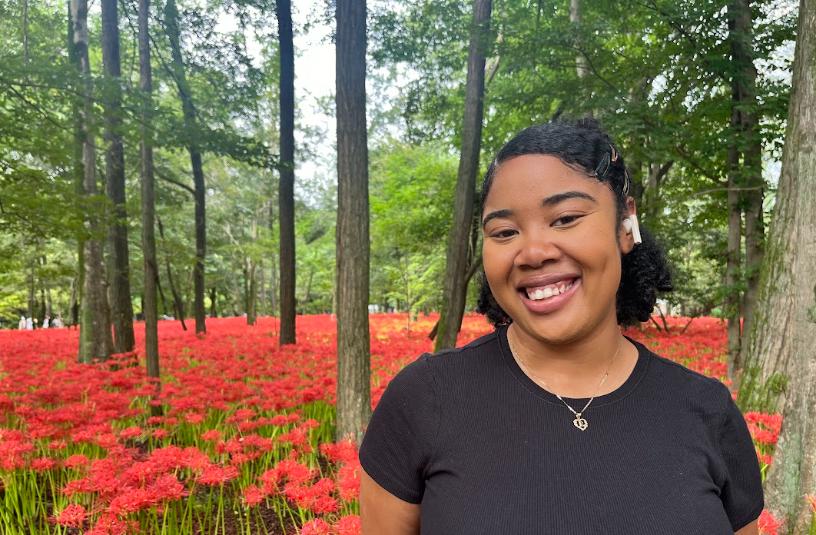
ERIKA BROOKS | Ashinaga Foundation | Tokyo, Japan
People don’t seem to notice or react when you look at them for a while. I feel like back home if you look at someone for more than five or six seconds they’ll either look up, look around, or look back at you and usually they`ll take it as a threat.
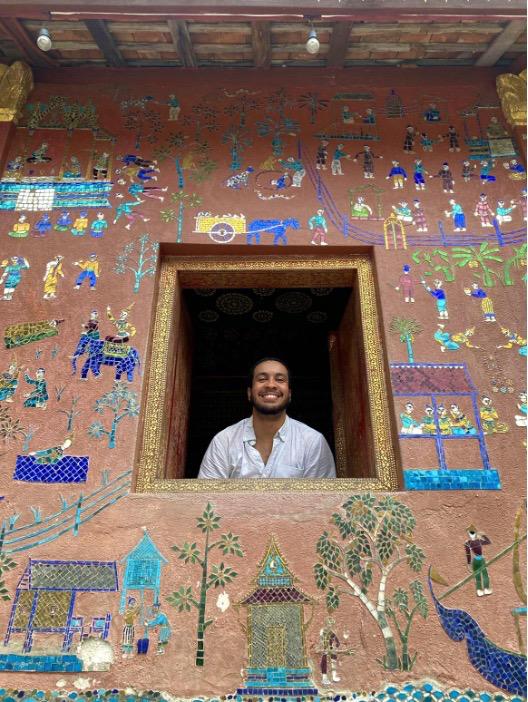
But here no one seems to notice. It’s kind of nice because I get to observe people more without worrying about if I’m staring for too long. Which comes in handy when I want to draw people on the train.
RUBY ZEIDMAN | Mae Fah Luang University (MFU) | Chiang Rai, Thailand
One of the highlights of my work as an English lecturer has been the optional review sessions I offer. These sessions give students a chance to ask questions and get extra practice or support ahead of assessments. It’s also allowed me to connect with students beyond the classroom, learning more about them as individuals and offering a more personalized learning experience. It’s been great to watch them connect with each other and to improve as students.
One of my favorite routines in Thailand has been getting omelets with my fellow lecturers. We started going to a nearby omelet place after our introductory Thai course, and it quickly became our favorite spot. We’ve even made it a tradition for birthday celebrations. It’s cheap, delicious, and our go-to place! Sharing meals has been one of the many ways I’ve connected with my colleagues outside of work.
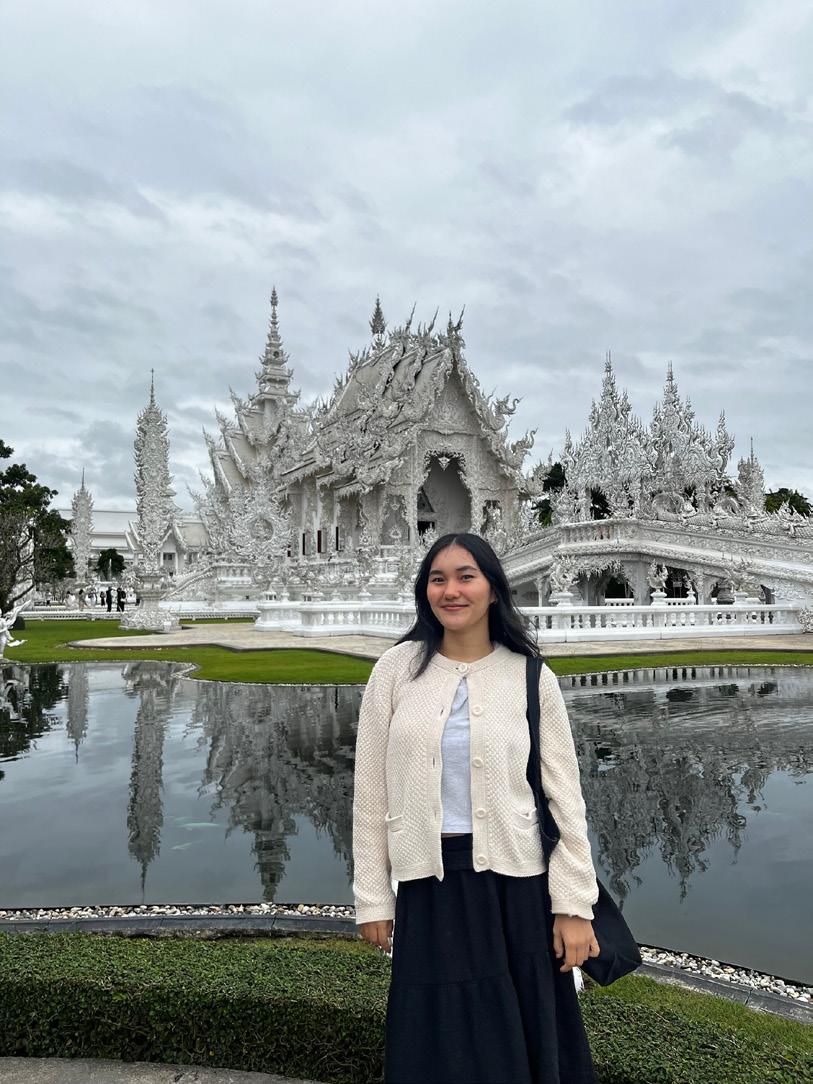
NAVANEETH SHIBU | Can Tho University (CTU) | Can Tho, Vietnam
Over the past two months in Vietnam, I’ve been able to develop several skills that I had hoped to improve through my fellowship. By exploring the country and building friendships here, I have become better at communicating with diverse populations and leveraging my own cultural experiences and heritage to foster rewarding cultural exchange.
Establishing a new daily routine here has been incredibly rewarding – during the week, I wake up in the morn ing, grab some coffee (I don’t know how I have lived all of these years without a daily cà phê sữa đá), teach my classes, and then devote the rest of the day to lesson planning and exploring the city with friends. I truly believe that this opportunity to pair cultural immersion with a meaningful job has been uniquely gratifying for me. This is because I am able to contribute as much as I am gaining through my fellowship in Vietnam!
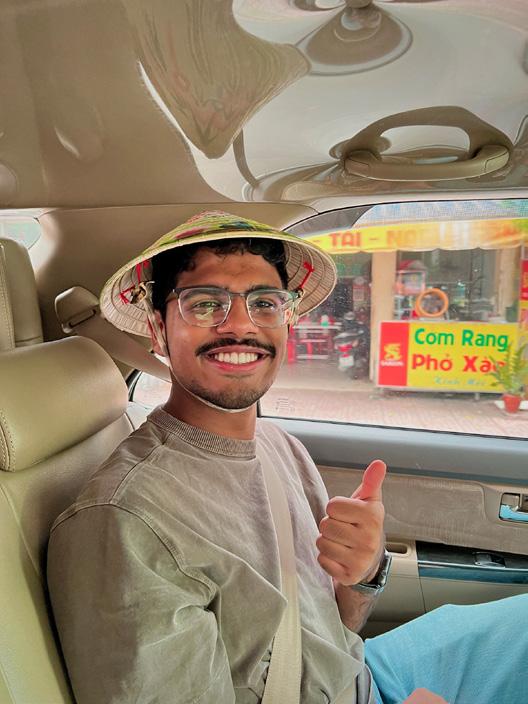
HADLEY TRAHAN | Milken Institute | Singapore
Besides the thrills of Hawker Centre chicken satay, the excitement of staffing the Milken Institute’s 2024 Asia Summit, and the joys of extreme efficiency, my favorite part of life in Singapore has been joining Fast and Free Running Club.
As a firm believer that sports transcend all boundaries and bring people together, I have cherished the oppor tunity to connect with Singapore’s dynamic, motivated, and exceptionally friendly running community. Between late-night track workouts on Thursdays and early morning (6:30am…) long runs on Saturdays, I have explored diverse parts of Singapore and bonded with the local community over watermelon juice, 100plus, and other post-run refreshments. The sense of camaraderie is unparalleled, and the experience of running in tropical humidity is like no other. am very grateful to FFRC for providing me with a sense of home in the Little Red Dot!
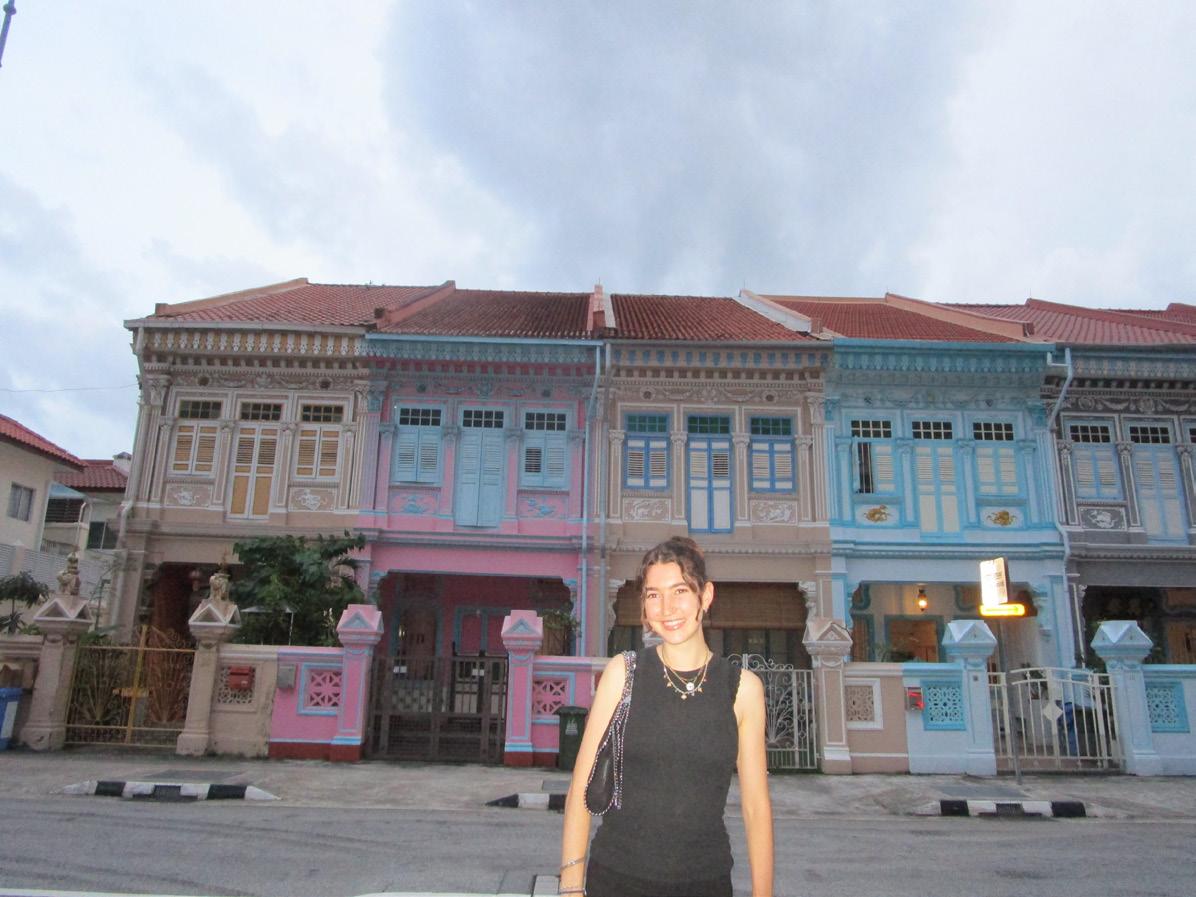
OSCAR VASQUEZ | Blue Chair Film Festival | Luang Prabang, Laos
I was extremely excited to begin my fellowship post at the Blue Chair Film Festival this year mostly because of my passion for the creative industries and arts & culture institutions, especially in the global media and entertainment sector. To my pleasant surprise, not only have I learned more about the ins and outs of running an international film festival, but I have also been able to utilize and improve my own creative skills in my post through graphic design work.
am currently my host organization’s primary in-house designer, which has allowed me to produce content such as social media graphics, event signage, and my biggest project yet: independently designing our 40+ page print program booklet for this year’s festival event! Being able to engage in my own artistic work while simultaneously being in an innately creative environment has been so inspiring, and the opportunity to have my work play an active and vital role in the visual identity of the festival is incredibly rewarding to see.

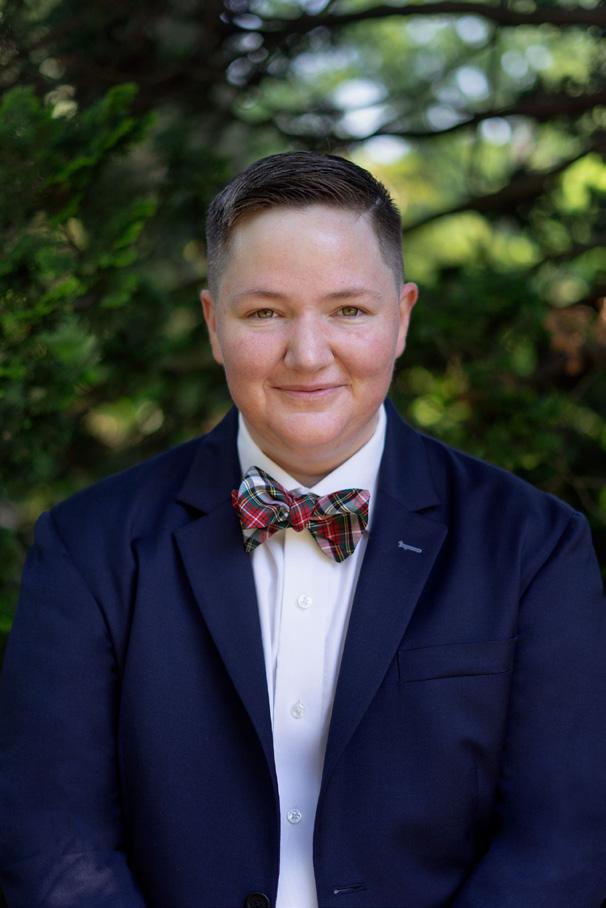
This edition of Pacific Bridges shines a light on the profound concept of the “PiA 180,” a term that holds significant meaning in the PiA community. Coined by our esteemed former Advancement Officer Danielle Flores during her influential two-year tenure with PiA, the phrase encapsulates the transformative nature of the PiA experience –how a single fellowship can pivot a Fellow’s life in a new direction.
For many, the PiA journey begins as a leap into the unknown. Like a large portion of our 3,400 alumni, I had no prior experience in Asia when I applied. I was pursuing a career in teaching and thought my background in German art history and film might make me a good fit for a teaching role at Ngee Ann Polytechnic in Singapore. But during my interview, Anastasia Vrachnos (Indonesia ’91), PiA’s epic former Executive Director, threw me a curveball and suggested I consider a post at Lao Rugby (LRF). had been aware of PiA’s connection with LRF through Elena Olivi (Laos ’07-’08), my college rugby teammate who was posted to PSI Laos and coached the Vientiane Lions rugby club and managed the Lao Women’s National Team in her free time – but I never thought I would end up working there. That curveball changed my life.
The Transformative Power of PiA
Fifteen years later, my three years as a PiA Fellow at Lao Rugby remain at the heart of who I am. The relationships I built, the lessons I learned, and the community I became a part of have defined my identity, purpose, and perspective.
When I returned to Laos in November, six years had passed since my last visit. The world, Laos, and my own life had all transformed. Yet, stepping back into the community felt totally natural. I stayed with my former boss in a house where PiA Fellows had lived over a decade ago, rode my old motorbike, and reconnected with friends and colleagues.
Even after years apart, the connections built through PiA remain as strong as ever. Conversations revealed how much had changed – new jobs, marriages, children, and other life transitions – but the shared bond remained. That’s the power of PiA: it doesn’t just place Fellows in communities, it makes them part of a community for life.
Sustaining Bridges Across Generations
During my visit, I shared a long dinner with second-year Fellow Electa Cleveland (Laos ’23-’24) at Three Sisters. Over nem khao, she told me about field trips she had taken across Laos with PSI and how she had sought out opportunities to live with her colleagues to deepen her understanding of Lao culture. When recounting a presentation she made in Lao language to government officials, Electa’s focus was on the colleagues and friends who contributed to that effort, including Country Advisor Casey Morrison (Laos ’17-’18). I had the privilege of throwing Casey a curveball many years ago, redirecting her from a post in Vietnam to a post in rural Laos. Many years later, Casey is now a Country Advisor – and has been an invaluable resource to PiA Fellows in Laos, building connections, sharing cultural insights, and teaching practical skills, like how to gut and gill fish. It was exciting to trade stories with Electa, Casey, and Mia Signs (Laos ’13-’14), who was
a Fellow at the International Water Management Institute/WLE and is now Outreach and Advocacy Manager for the Illegal Wildlife Trade program of WWF Greater Mekong.
Visits with leadership at current, former, and prospective host organizations are always a highlight of our trips. These visits reinforce the institutional relationships between PiA and our host organizations, which have been built over time with the goal of sustained collaboration.
It was a pleasure to see Keoamphone Souvannaphoum, the Country Director of CARE in Laos, who previously hosted several Fellows at ChildFund, and who is now a PiA Country Advisor for Laos. I also had a great meeting with Saysana Phanalasy the Laos Country Representative for PSI. I recalled hearing from my dear friend Alex Scott (Laos ’10) about her friend and colleague, Saysana from PSI, and it’s impressive to see that fifteen years later, Saysana is running

A PiA all-star dinner was enjoyed in Vientiane with Casey Morrison (Laos ’17-’18, Country Advisor), Kelly Luc (Japan ’17-’18), Mags Dillon (Laos ’10-’12), Mia Signs (Laos ’13-’14), Keoamphone Souvannaphoum (Country Advisor and supervisor of several PiAers over the years), Khamphouvanh Maliya (Lao teacher to Electa and a dozen or so PiAers over the years and team member at former PiA host organization, Digital Divide Data), Electa Cleveland (Laos ‘23-’24), and Cindy Morrison (Casey’s mom and honorary PiAer).
the show. Additionally, I caught up at length with Catherine Wood, the Director of Vientiane College, who has welcomed, supported, and mentored dozens of PiA Fellows over the years through her role at the college and later as a Safety Advisor and Country Advisor. Next year, PiA will celebrate 25 years of partnership with PSI and Vientiane College.
I also spent time with my Lao Rugby colleagues and friends. Lao Khang, whom I worked with on rugby development activities in her district of Nonghet is now leading rugby development activities in her province – while she raises two toddlers who will no doubt join her on the rugby pitch one day. Her dedication and leadership have been instrumental in the growth of rugby in Laos. Viengsamai Souksavanh who was Finance Assistant for Lao Rugby back in my
day, is now the CEO of Lao Rugby – the first woman to achieve this distinction in Asia and one of only a handful of women CEOs of rugby unions globally. Being able to share memories – and talk shop – with Lao Khang and Vieng felt incredibly special and underscored the unique privilege and important responsibility we have at PiA to build and steward relationships. As I reflect on my trip to Laos, it strikes me that the PiA 180 so easily becomes the PiA 360.
The special relationships I describe here are only possible because of PiA’s focus on relationship building and sustained partnership. As we close out the celebration of our 125th Anniversary, it feels especially meaningful to celebrate our returns to host organizations, communities, and countries that are so central to PiA’s legacy and work. Over the summer and into the fall, we relaunched:
• Summer internships at Jishou University in China, a partner since 2004
• In Cambodia, where we first placed Fellows in 2007
• At Soc Trang Community College in Vietnam, a partner since 2010
• And in Indonesia, where PiA’s history dates back to 1968.
• In the next cycle, we will relaunch full-year fellowships in China, and write a new chapter in our history as we launch fellowships in Uzbekistan as part of a vibrant program in Central Asia.
In my early days at PiA, we used to pump up second-year Fellows with this quote from Ken Burns: “All real meaning accrues in duration. The work you’re proudest of, the relationships you care the most about, have benefited from sustained attention.”
PiA has benefitted deeply from the sustained care, attention, and support of so many individuals who have dedicated years – and in some cases, decades – of service to PiA. In this issue, we’re proud to highlight a few individuals who, through both their service and philanthropy, have made an indelible impact on PiA: Scott Seligman (Taiwan ’73-’74), a founding member of PiA’s Legacy Society, who served on the board for 40 years and has made – and inspired others – to make planned gifts to PiA; Trustee Matthew Bersani (Taiwan ’82’83), for whom PiA is a family affair – and whose support through the Geoffrey C. Hughes Foundation has played a critical role in PiA’s postCOVID relaunch; and Trustee S. Peter Poullada (Iran ’75, Afghanistan ’76), who has championed PiA’s programs in Central Asia through matching challenges among our Central Asia cohort and who has established the Jackson-Poullada fund for Central Asia at PiA.
Finally, I wish to recognize two individuals who finished their terms on the board in June 2024. Matthew Hurlock (China ’88) concluded an eight-year term on the board, and Sharon Volckhausen (Korea ’91) ended a 19-year tenure on the board, including seven years as our chair. Sharon’s courageous leadership, unwavering commitment, and extraordinary generosity through the Tiger Baron Foundation made it possible for PiA to weather the biggest challenges of our organization’s history and move ahead into our next 125 years from a position of strength.
Yours sincerely,

Mags Dillon Laos ’10-‘12 Executive Director
China was the first place I remember knowing was a distinct country as I looked at photos of the Great Wall in a book at my grandfather’s house. It later became part of my world (I moved there in 2004), a special place that holds many memories of welcome, cultural adjustment, and changes in perspective. It is a place I have returned to over the years – as have many PiA Fellows and Interns. Yet after being away for more than a decade, I approached my visit with a combination of excitement and nerves. Would I recognize the cities I had once called home after years of rapid development and momentous change? Would I still be able to communicate – and this time, not only for my own purposes, but to do justice to PiA’s long history in China?

Once I landed, I realized that some things were indeed different: some of my old haunts had closed (RIP, Water Margin), and the skylines had new inhabitants. Yet much was familiar: the warm welcome from new and old friends, and the amazing opportunity to reach across many forms of difference to find sources of likeness (I admit to commiserating with other Millennials about parsing Gen Z slang – a struggle in both English or Chinese). As with my first visit to China half a lifetime ago, my brief immersion this year was a reminder that much exists beyond the surface of geopolitical tension, media representation, and stereotype.
As I moved through familiar and unfamiliar spaces, was reminded at every turn of why we engage in the work of international exchange. There were many powerful moments, but one highlight was meeting Joy and Dylan, who studied with PiA English teachers for two years. They have gone on to become teachers themselves. In Beijing, Shanghai, and Jishou, I heard from host organizations and past participants about the transformation they experienced through PiA, which continued well after their time with the program. I encountered excitement about the chance to meet the next generation of PiAers, and the hope that the program will provide an opportunity to learn in community the things one cannot discern from a distance.
My first image of China was of a wall. There is so much more to China than that wall. May the next 125 years lead to many more changes in perspective.
by Jack Styler | Kazakhstan ’22
Justthree years after the fall of the Soviet Union, PiA began its partnership with KIMEP University in Almaty, Kazakhstan. In the three decades after the first fellowship class, PiA Fellows have taken part in the evolution of KIMEP University and witnessed the metamorphosis of Kazakhstan from a newly independent Soviet republic to a rapidly modernizing country on the rise.
Edgar Chen, who was a part of one of the earliest KIMEP cohorts, said that Kazakhstan was “still very Sovietized and Russified” when he touched down in 1997.
Chen, who worked as a writing tutor at KIMEP, recalled one of the first skills he learned in Kazakhstan: haggling. Like most people in

Almaty, Chen got around by hailing informal taxis and bought all his food from the city’s main market, the Green Bazaar. He remembers a few pieces of key advice: never pay full price, never accept the first offer, never get into a taxi with more than one person in it.
That guidance was emblematic of the mix of opportunity and uncertainty in Kazakhstan during the 1990s. KIMEP, started by businessman Dr. Chan Young Bang, was teeming with excitement as many saw the university as a fast-track to the capitalist future. “The promise of success and economic mobility was really exciting for the students. That was palpable,” said Chen. “There was a generation of Kazakhs who were just like ‘we are going to cast off the yolk from the stagnant Soviet era. And we’re going to succeed.’”
Both Leroy Terrelonge (’11) and Louis Albertini (’15) worked at KIMEP and lived in Almaty when it was in the throes of transition. During their posts, the two PiAers still used unofficial taxis and predominantly shopped at the Green Bazaar. However, the burgeoning national Kazakh identity and emergence of the Kazakh economy, powered by oil reserves, allowed for once-in-a-lifetime opportunities and caused, at times, significant challenges.
After being connected by a graduate student in one of his night classes, Terrelonge briefly practiced and played with the
Kazakhstani national rugby team. Following a bank run early in his fellowship year after the local currency was floated on the open market, Albertini worked in the personal staff of Dr. Bang, the university’s legendary president, who leads the university to this day.
“I think for a long time KIMEP was sort of a microcosm for the development of Kazakhstan,” said Albertini, who ended up staying in Kazakhstan for three and a half years and still returns about twice per year.
Nowadays, Kazakhstan is reaching new heights. Almaty has emerged as a hub of not only business but also Kazakh culture, arts, and tourism. KIMEP University has continued to expand, innovate, and keep up with international trends by establishing new computer science, cognitive science, and psychology departments. Claire Salmi (’23-’24) spent much of her first year at KIMEP not only teaching English but also helping to develop the new psychology department and assisting with various departments’ international accreditation processes.
After one year, Salmi felt it was too soon to say goodbye. She, along with two of the other Fellows in her cohort, stayed for a second year. The decision was easy, Salmi said, because there’s so much happening at KIMEP and in Kazakhstan in general. In her free time, Salmi has found friends and opportunities in the growing arts community in Almaty. Last year, she helped a friend start a ceramics studio, which has since taken off.
Today, Salmi and other current Fellows call Yandex taxis from their phones, pay all their bills online with the ubiquitous “Kaspi” banking app, and have the option of going to modern grocery stores filled with products from all over the world. Still, Salmi said she continues to do much of her shopping at the Green Bazaar. Even with so much change, some things are just Kazakhstan.
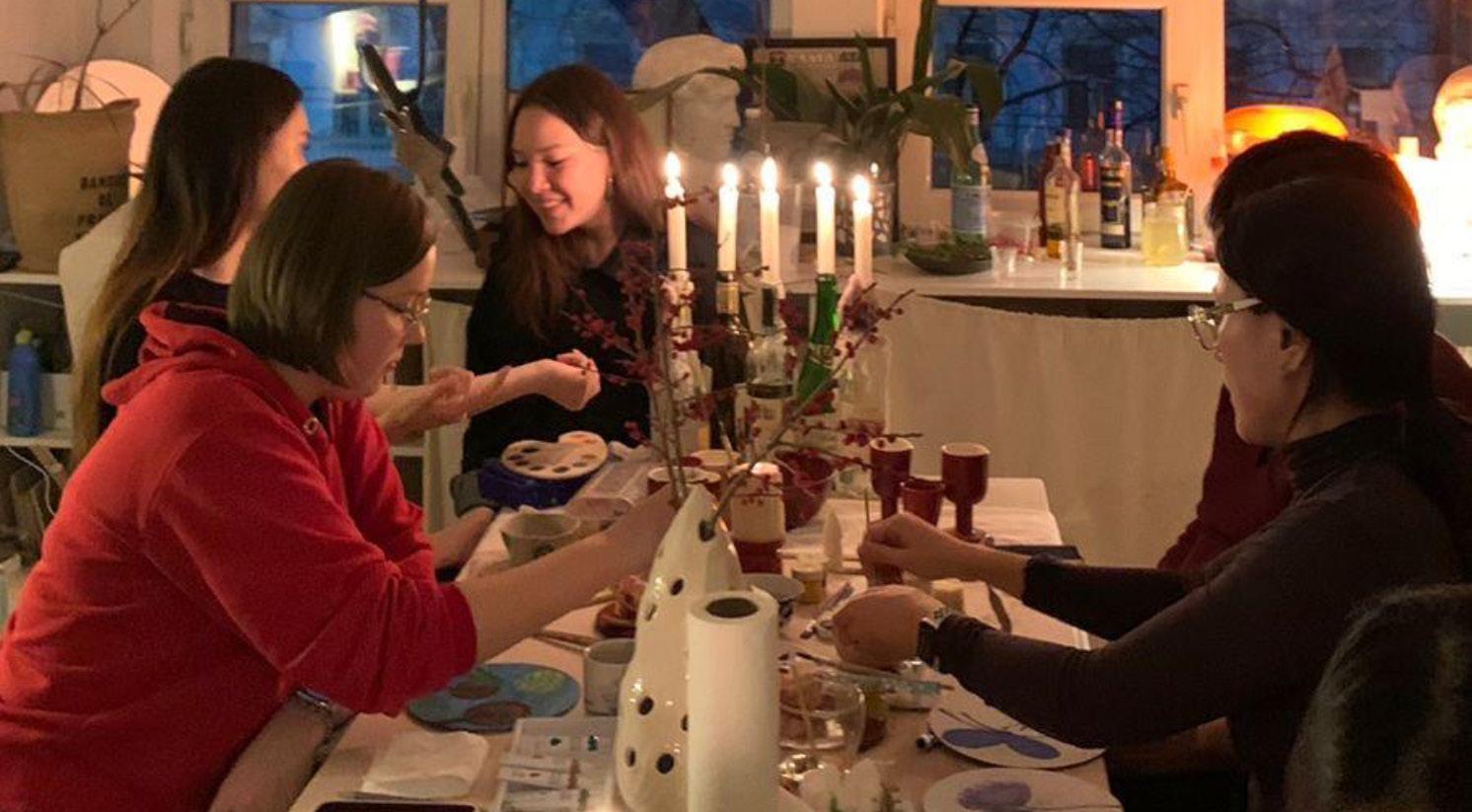
by Julianne Greco | Indonesia ’12-’13
In 2004, Tony Wu was a student majoring in English at Jishou University – which happened to be the first year that the school became a PiA host institution. All this time later, Wu has persisted as longtime Summer of Service program coordinator, and played an instrumental role in relaunching the partnership between Jishou University and PiA last summer.
Wu’s connection to PiA has evolved from student to advocate. Over the years, he has seen PiA’s presence impact Jishou’s campus, from offering
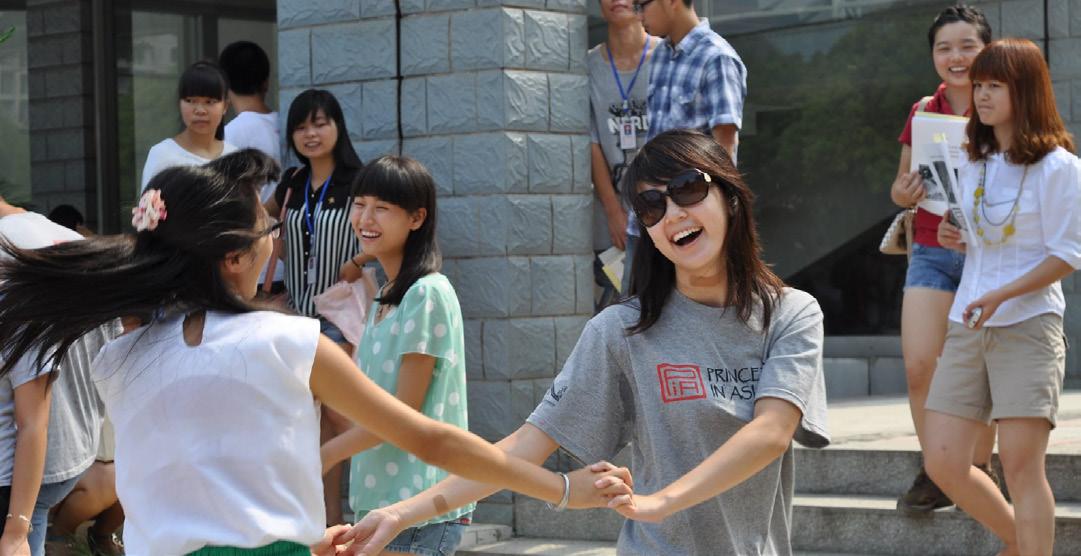
new opportunities often only afforded to urban students to opening up Hunan’s rural communities to the wider world. Now back at it, after a four-year pandemic-induced hiatus, Wu beams with pride as the SOS relaunch marks PiA’s return to its roots in China.
As Wu sees it, PiA Fellows are uniquely positioned to dispel misconceptions and cultivate genuine connections. His advice to new fellows is simple yet powerful: “Open your mind, open your heart, and open your mouth. Explore the real world” and go outside of what you know.
A Renewed Energy in Soc Trang
At Soc Trang Community College (STCC) in Vietnam, PiA’s story dates back to 2010. For Tuyet Lan Nguyen, who oversees PiA’s partnership, Fellows have “made a significant mark in the development of STCC.” Specifically, improving students’ English and communication skills to knowledge about American culture.
During the pandemic, when the partnership with Soc Trang was on hiatus, students in the English major program missed out on the opportunity to learn from native speakers. The relaunch this year has brought a fresh sense of excitement. Fellows also now receive additional support, including motorbikes for easier travel and Vietnamese language lessons. Nguyen recalls memorable fellows like Auds Jenkins (Vietnam ‘14), whose creativity left a lasting impression, and Harris Risell (Vietnam ’17) who stayed beyond his fellowship to master both Vietnamese and Khmer.
Cultural exchange is at the heart of STCC’s partnership with PiA. “We share values and learn the cultures from each other,” says Nguyen. “The
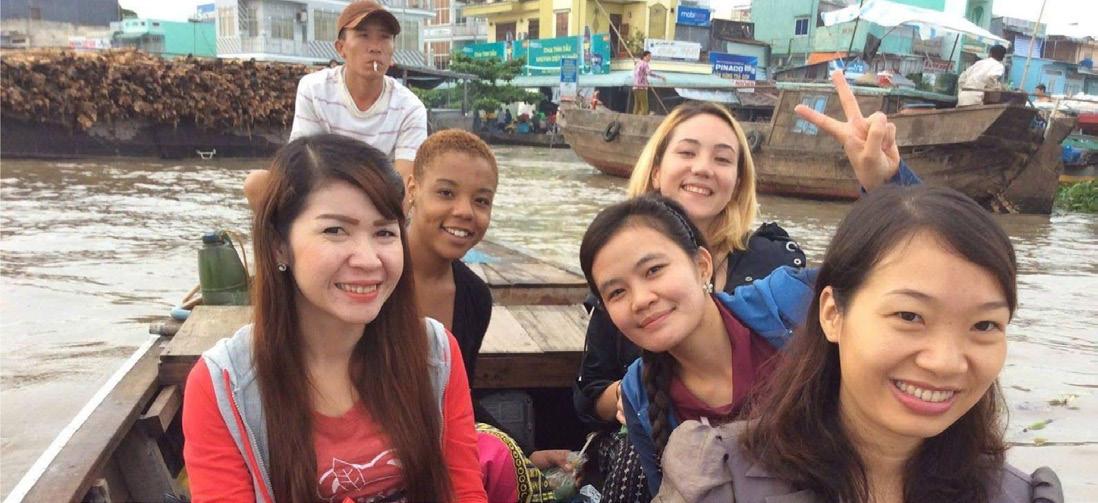
local community has improved itself thanks to the contribution of the PiA Fellows.”
A Legacy Revived at Atma Jaya
After a pandemic pause, a legacy program is resurrected. The partnership between PiA and Atma Jaya University’s Kantor Pelatihan Bahasa dan Budaya (KPBB) in Yogyakarta spans over three decades, beginning in 1991.
Sapto Nugroho from the KPBB office recalls the dynamic activities PiA Fellows once spearheaded: English Nights, camps, and cross-cultural programs. This year, the presence of a sole PiA Fellow has “been quite good and dynamic,” especially with participation in KPBB programming

outside of the classroom, including helping with English Club and CrossCultural Club to cultural celebrations like Halloween and Thanksgiving.
The “PiA 180”: Transforming Lives
Across Jishou, Soc Trang, and Atma Jaya, the relaunch of PiA fellowships demonstrates the program’s enduring ability to transform lives for PiA Fellows and the communities they work in.
For Fellows, the experience offers a chance to go down an unexpected life path – a.k.a. the “PiA 180.” For host institutions, it’s an opportunity to get fresh perspectives. As PiA celebrates these three program relaunches, it’s clear that PiA is as strong as ever, continuing work to build lasting bridges and foster mutual understanding.
Jevelson Jean (Japan ’22-’23) PROGRAM COORDINATOR
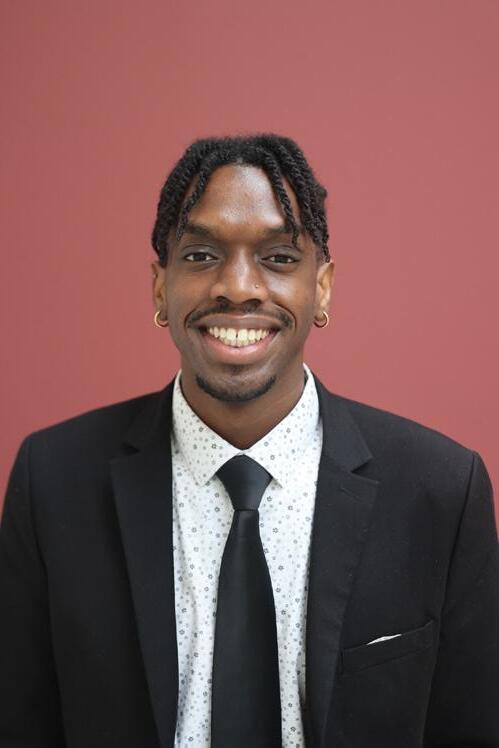
Email: j.jean@princetoninasia.org
Meet the newest members of the Princeton in Asia team!
Jevelson (he/him) graduated from Franklin & Marshall College with a bachelor's in Geosciences and a minor in Studio Art. Inspired by the unwavering support of his fouryear college scholarship program, Cooperman College Scholars, and his positive experience studying Japanese during his undergraduate studies, Jevelson was motivated to pursue work combining language and higher education support. Unable to study abroad in Japan due to COVID-19, he saw a second chance to pursue his passions through a PiA fellowship with the Ashinaga Foundation in Tokyo, Japan.
At Ashinaga, Jevelson initiated and co-led the reconstruction of the English language program, placing an emphasis on global citizenship and community. Jevelson taught English courses, co-directed large community events, and mentored scholars while voicing the importance of diversity and inclusion. Jevelson also co-directed an international immersion training program in New York and later in the Philippines. After completing his two-year PiA fellowship, Jevelson joined Princeton in Asia as Program Coordinator in September 2024. He is passionate about expanding PiA's impact across diverse geographies and fields and is dedicated to supporting the success of PiA Fellows throughout their immersive experiences. Jevelson enjoys learning languages, playing volleyball, and reading in his free time.
Anna Jeffries PROGRAM COORDINATOR
Email: a.jeffries@princetoninasia.org
Dominic Prisco OPERATIONS OFFICER

Email: d.prisco@princetoninasia.org
Dominic Prisco (he/him) joined Princeton in Asia in September 2024. After graduating with a degree in Business Administration with a concentration in Marketing from Albright College, he has held roles in various functions, including executive leadership, operations, finance, business development, and marketing. He is extremely passionate about organizational culture, leadership development, and finding innovative solutions to any problem.
More recently, Dominic has found a calling in working with non-profit organizations focused on creating positive impact to better serve marginalized communities and those less fortunate. In his personal time, Dominic enjoys being active, hiking with his dog, running, and playing competitive cornhole.
Anna (she/her) completed a BA in Global Studies: Global Security at UW-Milwaukee, during which she lived abroad in South Korea and Thailand. A return home eventually to Eau Claire, WI followed, where she worked for Logistics Health, Inc. Recently, she completed her MA in International Relations and Cultural Diplomacy while living in Berlin, Germany, during the pandemic. Before joining the PiA Team, Anna worked at Mediation and Restorative Services (MARS) in Blaine, MN, where she gained knowledge of how nonprofits operate and experience working with community partners, volunteers, communications, and alternative dispute
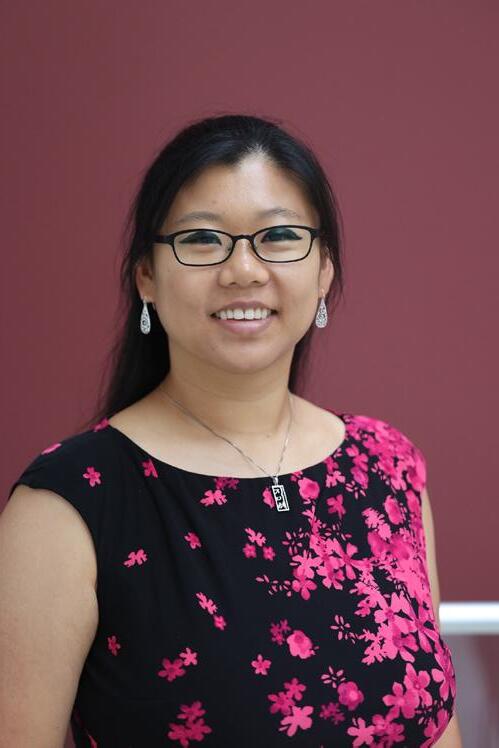
Anna has always been interested in how identity and culture are intertwined due to her journey of self-discovery as an international, transracial adoptee from South Korea into the Midwest. She believes that culture and the strength of individuals will bring about greater peace. Anna is passionate about fostering understanding by sharing culture, especially food! Anna is a self-proclaimed geek and a nerd. (She says, “Yes, there is a difference.”) She likes to dive deep into books, movies, TV, playing games, and pretty much any other subject matter.
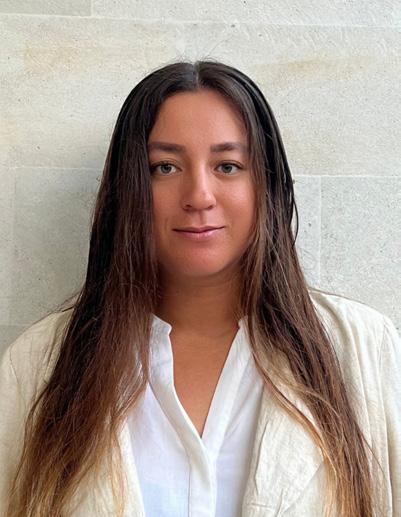
Julianne Greco (Indonesia ’12-’13) PACIFIC BRIDGES EDITOR Email: hi@julianngreco.com
Julianne (she/her) joined Pacific Bridges as editor after contributing stories to the past two issues and has loved reconnecting with PiA alumni, meeting more community members, and sharing the impact of PiA through their stories. Originally from Colorado, she graduated from Dickinson College with a double major in Law & Policy and International Studies (MENA concentration). Her PiA fellowship in Yogyakarta set her on a lifechanging course – one that led to nearly 13 years (and counting) in Indonesia.
Julianne spent almost nine years at Coconuts Media, where she wore many hats, including Bali Managing Editor, Travel Editor, Audience Development Manager, and Senior Brand Editor. While she primarily covered food, lifestyle, travel, and local news across Southeast Asia, she later transitioned to branded content, leading the writing team at Grove, Coconuts’ in-house agency. There, she combined her journalism and social media expertise to craft impactful campaigns for brands.
Now a freelance writer and editor, Julianne brings her skills to projects she’s passionate about. When she’s not working on compelling content, she enjoys surfing Indonesia’s world-class waves and spending time with her partner and their three adopted Bali dogs.
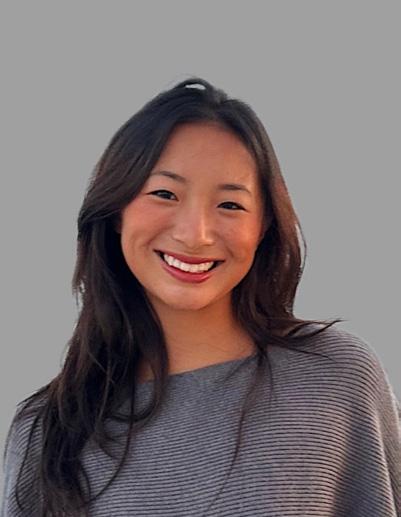
Madeleine Jessup SOCIAL MEDIA ASSISTANT
Email: m.jessup@princetoninasia.org
Beyond tennis and academics Maddie (she/her) is a Princeton University student majoring in the School of Public and International Affairs. After completing her first year, she is currently taking a gap year in Taiwan to pursue professional tennis, representing Chinese Taipei. As she trains and competes internationally, she has embraced life in Taipei, especially enjoying its delicious food culture – eating her way through both night and day markets – and the endless supply of bubble tea.
Beyond tennis and academics, Maddie loves meeting new people and immersing herself in the diverse cultures of the countries she visits. Whether exploring local traditions, engaging with new communities, or experiencing different ways of life, she values the opportunity to grow and learn through her international experiences.
Maddie joined Princeton in Asia in June 2024 as an intern through Princeton Internships in Civic Service (PICS). With a deep appreciation for cultural exchange, she is excited to contribute to PiA’s mission of bridging cultures and fostering understanding between the U.S. and Asia!
Catherine Sheskey ADVANCEMENT VOLUNTEER
Email: c.sheskey@princetoninasia.org
Catherine Sheskey (she/her) is our “resident volunteer” and started with PiA in November 2023. Her interest in all things international began with her listening to the neon 33.3 LPs her father brought back from Japan. Fast forward, she graduated from UWMadison with a BS in Education and later an MS in Counseling.
After working 30ish years in higher education, mostly in immigration and administration (while also doing a 22-year military reservist career), she retired. She soon realized she missed international education, and PiA is thrilled to have her back in the field, bringing her wealth of experience to the team.

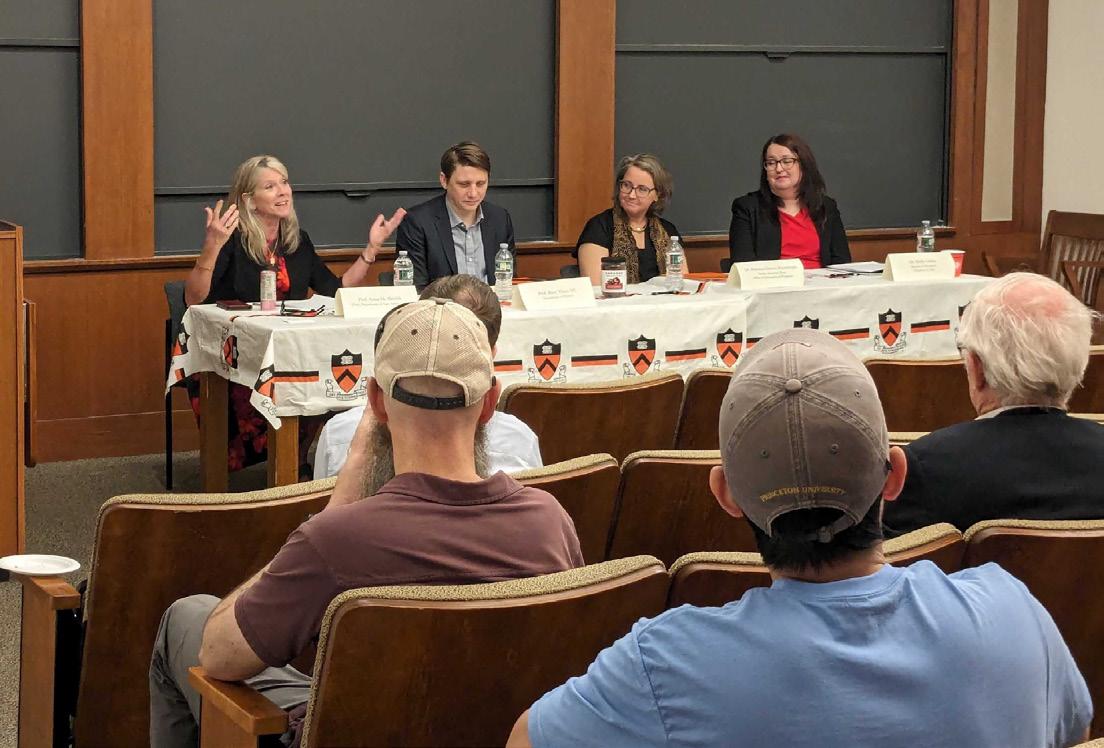
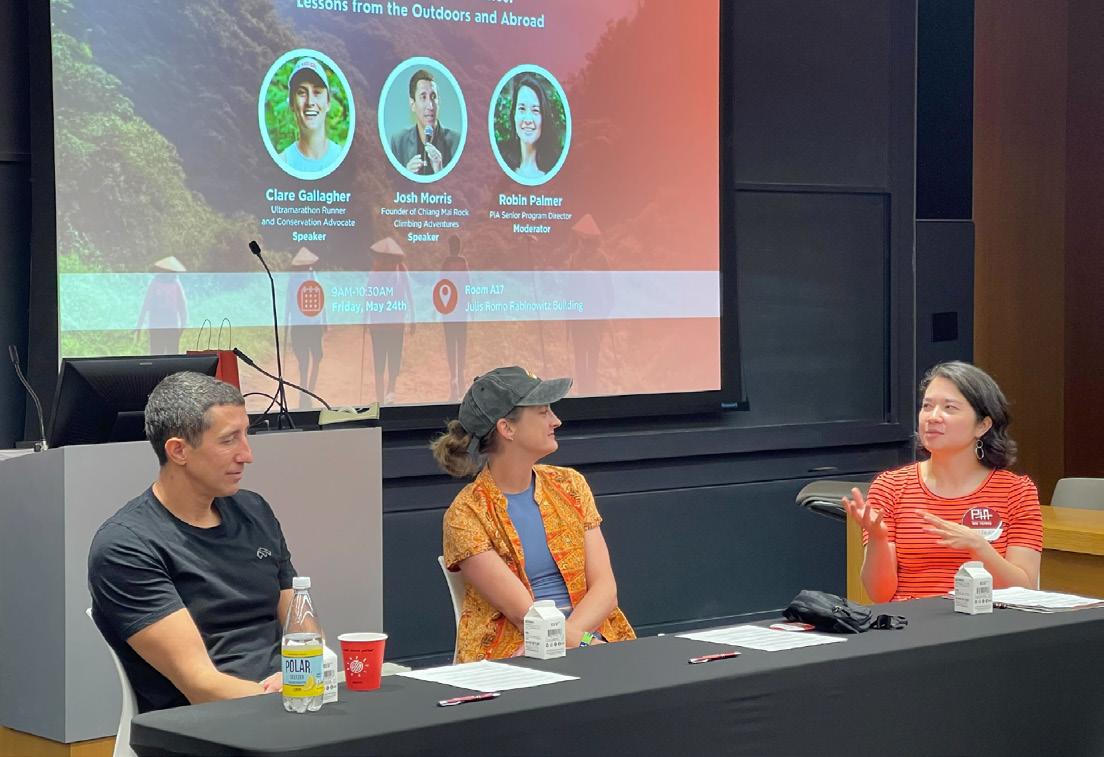
Princeton in Asia is thrilled to welcome Jibran Khan (Thailand ’12), Dario Pong, and David Whitelaw (Thailand ’01) to the Board of Trustees.
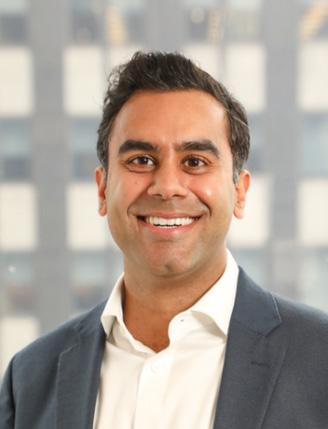
Corporate Development & Growth Strategy, JPMorganChase
B.Sc., B.A. University of Pennsylvania
M.Sc. University of Pennsylvania School of Design
M.B.A. The Wharton School, University of Pennsylvania New York, New York
I am excited to continue growing and strengthening ties across the PiA community – with fellow alumni, current and prospective Fellows, and our host organizations. My fellowship pushed me well outside of my comfort zone, immersing me in a culture, geography, language, and community with which I had no prior familiarity. Through PiA, I built meaningful relationships and developed a more interconnected worldview. The experience not only deepened my appreciation for diverse perspectives but also helped me seek common ground in any situation.
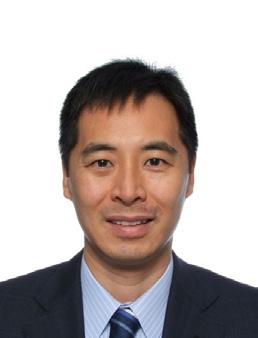
Founder & Managing Director, Ferro Resources Ltd.
Executive Director, Shiu Wing Steel Ltd.
A.B. Princeton University Hong Kong SAR, China
Being a Chinese National, I am grateful for my eight years of education in the US. The cultural and country exposure and ever-lasting friendship provided me with a deep understanding of America, which helps me look at the world from two different angles. PiA can provide similar access to Asian cultures and countries to young Americans, opening their eyes and cultivating them to be global citizens of the next generation.
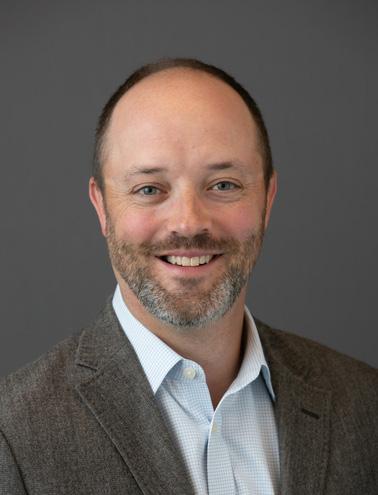
David Whitelaw Thailand ‘01
VP, Inclusive Impact & Sustainability, Visa
A.B. Princeton University
M.A. Johns Hopkins School of Advanced International Studies
M.B.A. Tuck School of Business at Dartmouth San Francisco, California
PiA gave me an opportunity to live and work in Thailand right after college, which is something that likely would have never happened otherwise. Most importantly, it set me on a pathway for a career focus on international business – the opportunity to work across, and learn from, different cultures has given my career an additional richness. Finally, it further engendered a lifetime love of travel and exploration.
Princeton in Asia is honored to have worked with over 400 host organizations across Asia in our history. In 2024, we initiated exciting fellowship opportunities with the following new host organizations.
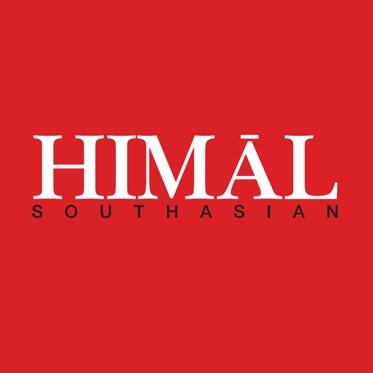
Himal Southasian, founded in 1987, is Southasia’s first and only regional magazine dedicated to politics and culture. Independent, non-nationalist, and pan-Subcontinental in scope, Himal has spent over 35 years fostering cross-border dialogue, challenging orthodoxies, and providing in-depth coverage of a region often divided by nationalism and censorship. Originally launched in Kathmandu, the publication expanded in 1996 to cover all of Southasia and now operates as a digital magazine from Colombo, with a remote editorial team spanning the Subcontinent. Through investigative journalism, podcasts, online events, and an extensive archival collection, Himal connects Southasians across borders and brings critical regional perspectives to a global audience. In 2024, PiA sent its first Fellow to Himal Southasian’s Colombo office, marking a new chapter in the partnership after a Fellow previously worked remotely for the magazine during the pandemic.
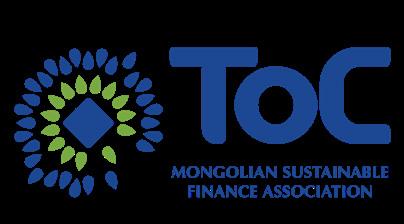
The Mongolian Sustainable Finance Association (MSFA), established in 2017, is the country’s leading organization promoting sustainable finance and green business practices. With a diverse membership of 57 institutions, including all 12 commercial banks along with non-bank financial institutions, insurance companies, and asset management firms, MSFA has pioneered several groundbreaking initiatives including the Mongolian Sustainable Finance Principles (2013) and National Green Taxonomy (2019). The association plays a crucial role in advancing Environmental, Social, and Governance (ESG) implementation, facilitating climate financing, and developing sustainable finance policies in Mongolia. As a member of both the World Business Council for Sustainable Development’s Global Network and the Sustainable Banking and Finance Network, MSFA actively contributes to international dialogue while working to accelerate Mongolia’s transition to a sustainable financial system through research, policy support, and public education initiatives.

Four alumni reflect on the 180-degree turn a PiA fellowship can inspire by Ana Olson | Thailand ’15
PiA can change your life. But if you’ve done PiA, you already know that. It might be that the kind of person who finds PiA is already primed for change – curious about the world, longing for adventure, and hoping to meet kindred spirits. It might also be something about the PiA fellowship, designed to foster a meaningful sense of purpose and connection with institutions in Asia. For some PiA fellows, that alchemy of personal inclination and opportunity can result in dramatic 180-degree pivots from the lives they anticipated to the unexpected adventures they’ve lived instead.
Annie Wang (China ’16) was planning to go into environmental law when she realized she wanted to shake things up with a trip somewhere new. “I think I was looking for an adventure,” she says, “but the way that I was as a person, you probably wouldn’t expect that.” She hoped to score a PiA post in South Korea. Instead, she found herself working for the Natural Resources Defense Council in Beijing, the same city where she’d previously studied abroad. But where before she’d been heads-down in her books, she says she felt encouraged by PiA to “go, get out, and do things” and connect with the wide network of Fellows there. She naturally gravitated toward Beijing’s energetic food scene, full of food hubs, pop-ups, and incubators for new culinary concepts. She got a parttime job as a journalist and interviewed some guys who were 3D printing with chocolate. There was a sense of possibility. “Coming from a climate background,” she says, “I saw a lot of opportunity to positively impact climate through food.”
After her fellowship, Wang moved to the Bay Area and began looking for work in food tech that might combine her interests in sustainability and innovation. (In another twist of fate, her very first job came through networking with PiA alums in the Bay Area.)
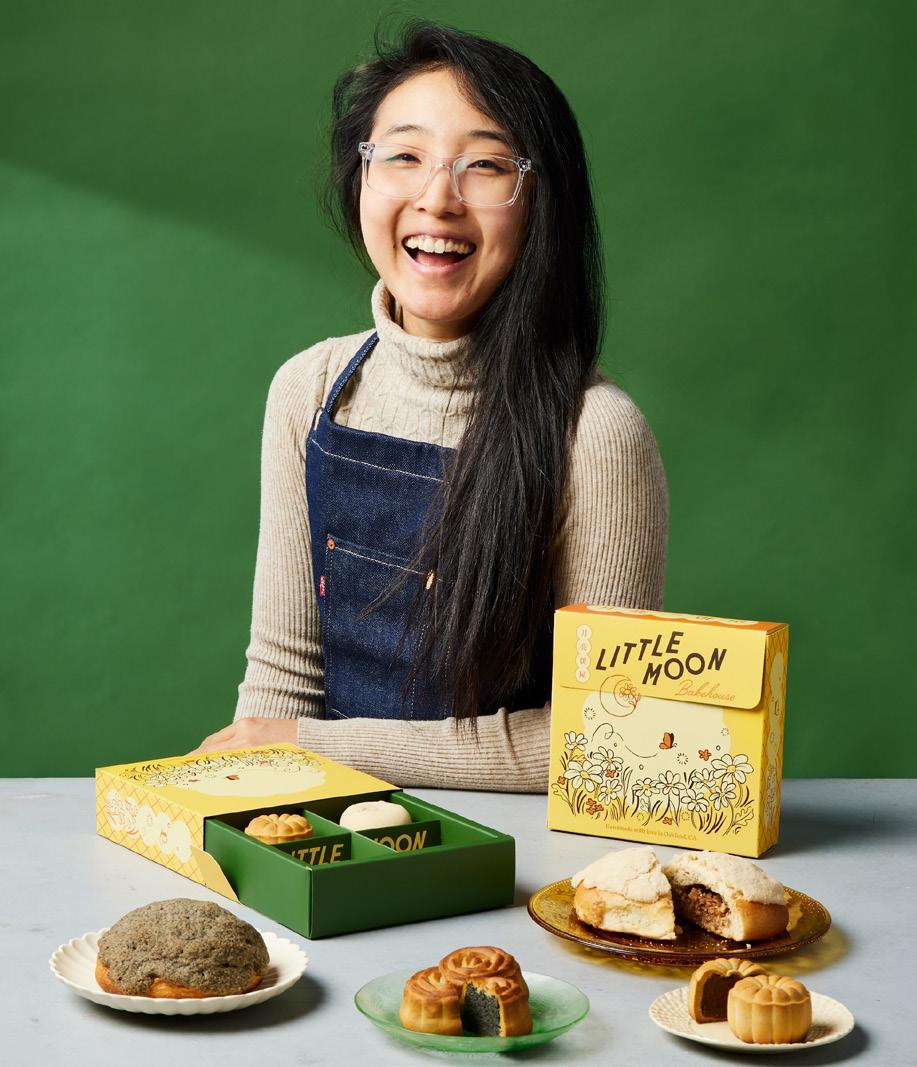
After the pandemic proved any job might be unstable, she was motivated to bet on herself. She now runs Little Moon Bakehouse, a successful bakery offering delicious vegan versions of classic Asian pastries. How successful? Her almond cookies were featured at the San Francisco premier of the Oscar-winning film Everything Everywhere All at Once
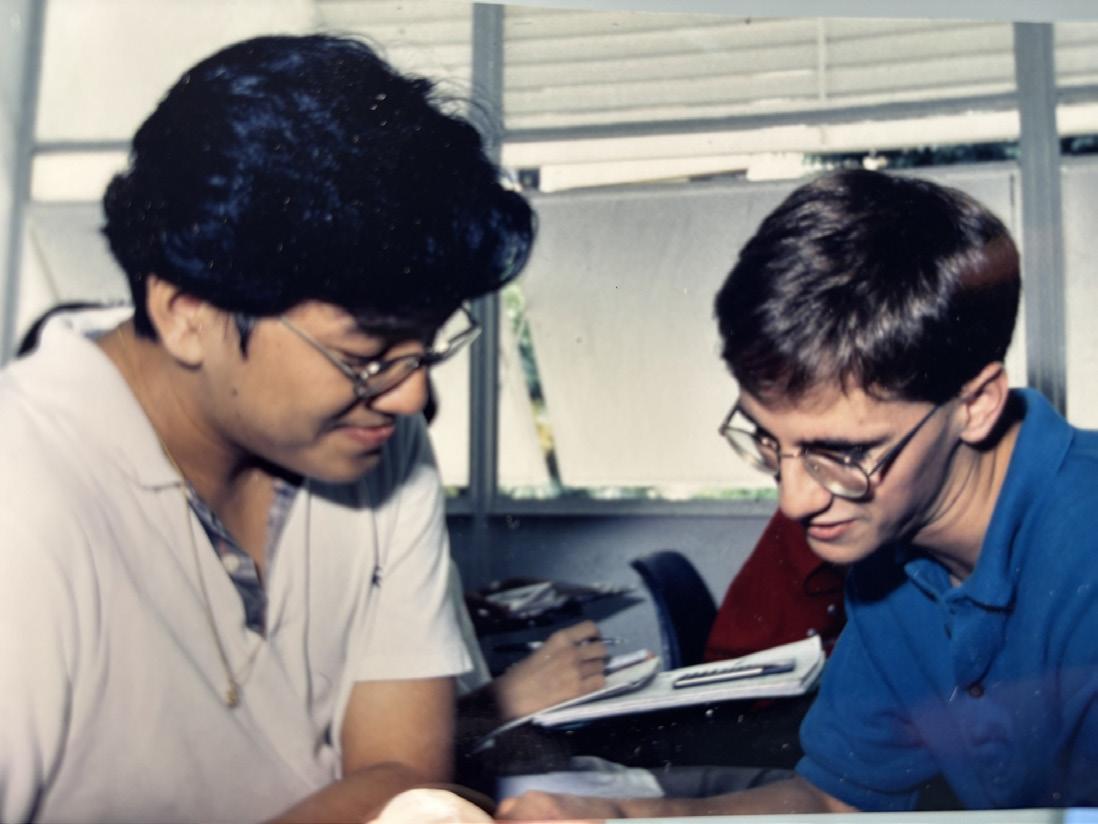
wild and confounding juxtapositions. He left Asia with a mission and a newly clarified passion for service, beginning medical school almost immediately thereafter.
Today, he’s a Clinical Development Leader at the Bill & Melinda Gates Medical Research Institute. He’ll soon oversee a firststage clinical trial for a new tuberculosis antibiotic. Vinnard acknowledges that he is living the purposeful life he once dreamed of as a young man in Singapore, and that PiA made it possible. “It’s like the theory of life,” he says. “You get this primordial soup – all the right amino acids are there, but you need the lightning strike, the energy source to hit into it, and then suddenly it selfassembles into life. PiA was like that lightning strike.”
climate change mitigation as a Senior Programme Officer for Ecosystem-based Adaptation at the International Union for the Conservation of Nature (IUCN). The path has often been twisting and serendipitous. Atieno initially applied for Princeton in Africa but by, happy accident, noticed mention of PiAf’s sister programs, including PiA, on the application. Curious about China, she applied, got in, and prepared to teach English in Hunan province. At the eleventh hour, due to a complicated certification issue, the post fell through. Looking for alternatives as the clock slowly ran out on her U.S. visa, she offered to go to Laos to fill a newly vacant fellowship. The posting? A communications position at the IUCN.
“Everything that I’m doing now was all put into motion probably by month eight or nine of my PiA year,” says Dr. Chris Vinnard (Singapore ’95). Medicine was only a vague inkling when he first arrived in Singapore. The grandson of two physicians, he’d grown up in California’s Central Valley and gone on to study physics. After graduation, he planned to begin a Ph.D. program at UCLA. Still, questions nagged at him. He loved science but wondered what he might actually do with it, career-wise. A friend mentioned another friend’s teaching post with PiA, and after a last-minute interview process with then-director Carrie Gordon and her husband, Jim, Vinnard was on his way to Temasek Polytechnic University to teach undergraduate calculus.
Teaching was fun, he recalls, but more exciting was his sudden exposure to the world. He befriended a number of Irish teachers who helped him to see America from the outside for the first time. He witnessed the breakneck pace of construction in Singapore and the migrant laborers who poured in to complete it. From his own newly constructed and nearly empty high-rise apartment, he could peer down into the neighboring construction camp. He’d see men shaving and preparing for work and feel the strange disparity in their circumstances. Then on the weekends, he’d see the same men arm in arm with their friends, “looking like a million bucks,” walking along Serangoon Road in Little India. He was hit, he says, with a sudden feeling of universality: “We all want the same stuff at the end of the day.” The threads of his life seemed to braid together – the work of his grandparents, where he’d grown up, all the Noam Chomsky he was reading, and Singapore, in its many
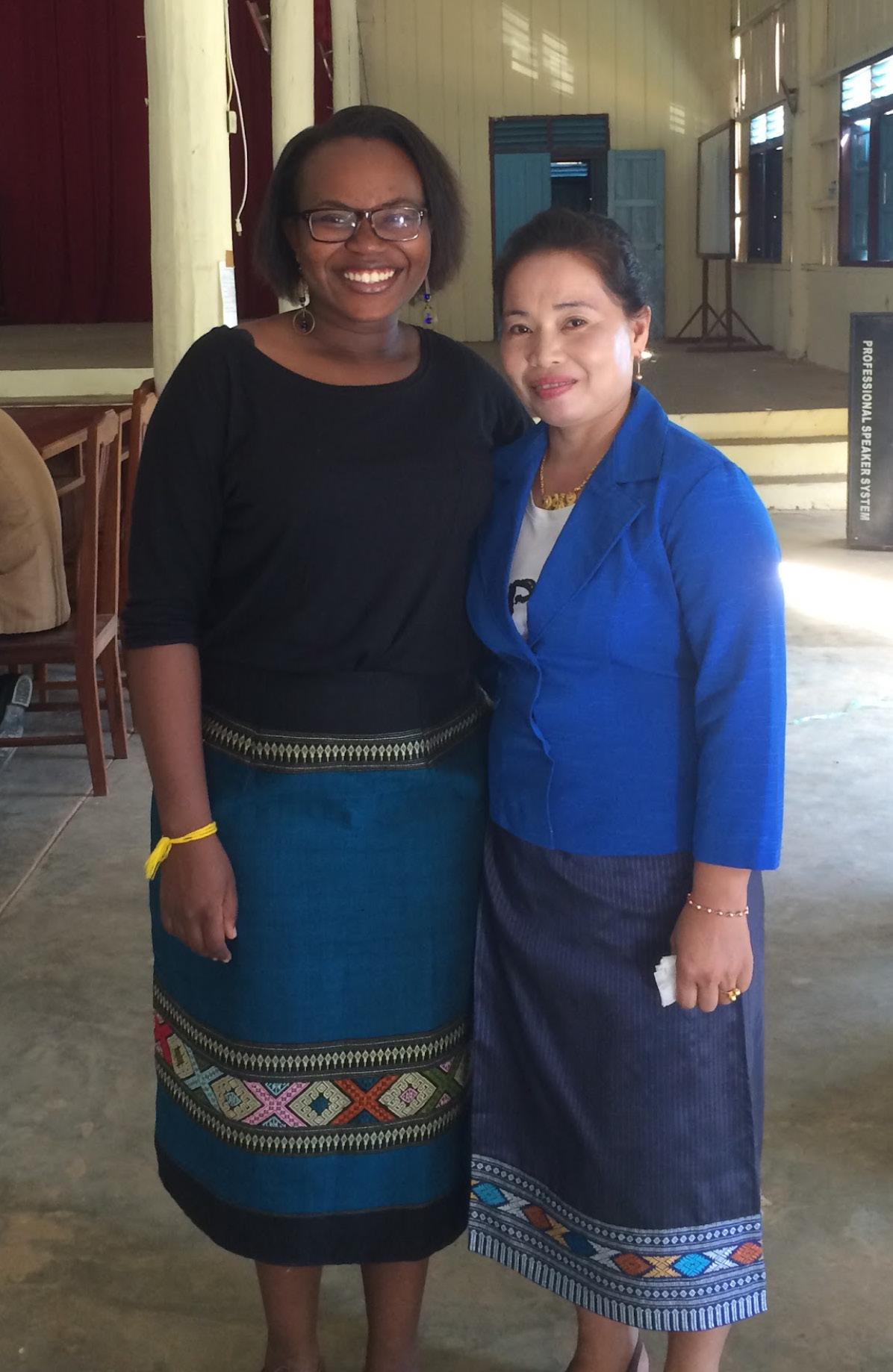
Wendy Atieno (Laos ’13-’14) can see clearly how life might have gone if not for PiA. “I would have been a chemistry major, pursued a STEM degree because that’s what you do…maybe [have] work in the medical field.” Instead, she’s working on
“I didn’t know what life would be like as a Black woman in Asia, and I was a little bit apprehensive,” Atieno says, recalling a significant early field visit. But a local woman took her in and proclaimed Atieno to be her daughter-in-law, a sweet joke she took further by insisting they wear matching pants. Even with communication barriers, they developed a fast friendship. “It felt very welcoming,” Atieno says, “and she accepted me fully.”
For Atieno, the 180-pivot was going against expectations. As a Kenyan from a middle-class background, she sensed a prevailing assumption that she was meant to go West – to study and work in the United States and then do everything she could to stay there. Instead, she was surprised by how naturally she found a home in Laos, the result of her own unexpected yearning to “want to go see what’s up in Asia and then to survive and thrive in that context.” She still works with many of the colleagues she met in Laos, and everything since has been transformed by her time there, she says, right down to how she eats.
Elena Olivi’s (Laos ’07-’08) path has gone beyond 180 degrees to come full circle. Looking back on her career’s many pivots, she says, “there’s always a little kernel of PiA experience or inspiration.” An Anthropology and Environmental Science major, Olivi knew early on that she wanted to go into public health. The PiA fellowship appealed to her because she was “intrigued by something really challenging and new and different that would stretch me.” She would spend the next two years in Laos with Population Services International (PSI) developing a new strategic plan for malaria programming, and eventually move to East Africa to continue her malaria work.
It was a seemingly random aspect of her PiA years that led to Olivi’s current focus. As a former Princeton rugby player, she was tapped to lead the Lao Rugby Federation’s women’s team, an “incredible experience” to coach young people to “just do something out of passion rather than pay.” The position – which would become an official PiA posting in subsequent years –showed her the value of experiential education to build leadership skills. Later, working in East Africa, she recognized a desire for similar skills among her younger colleagues. She is now the Co-Founder and Co-CEO of AddVenture, an outdoor leadership training program for young Kenyan professionals that combines
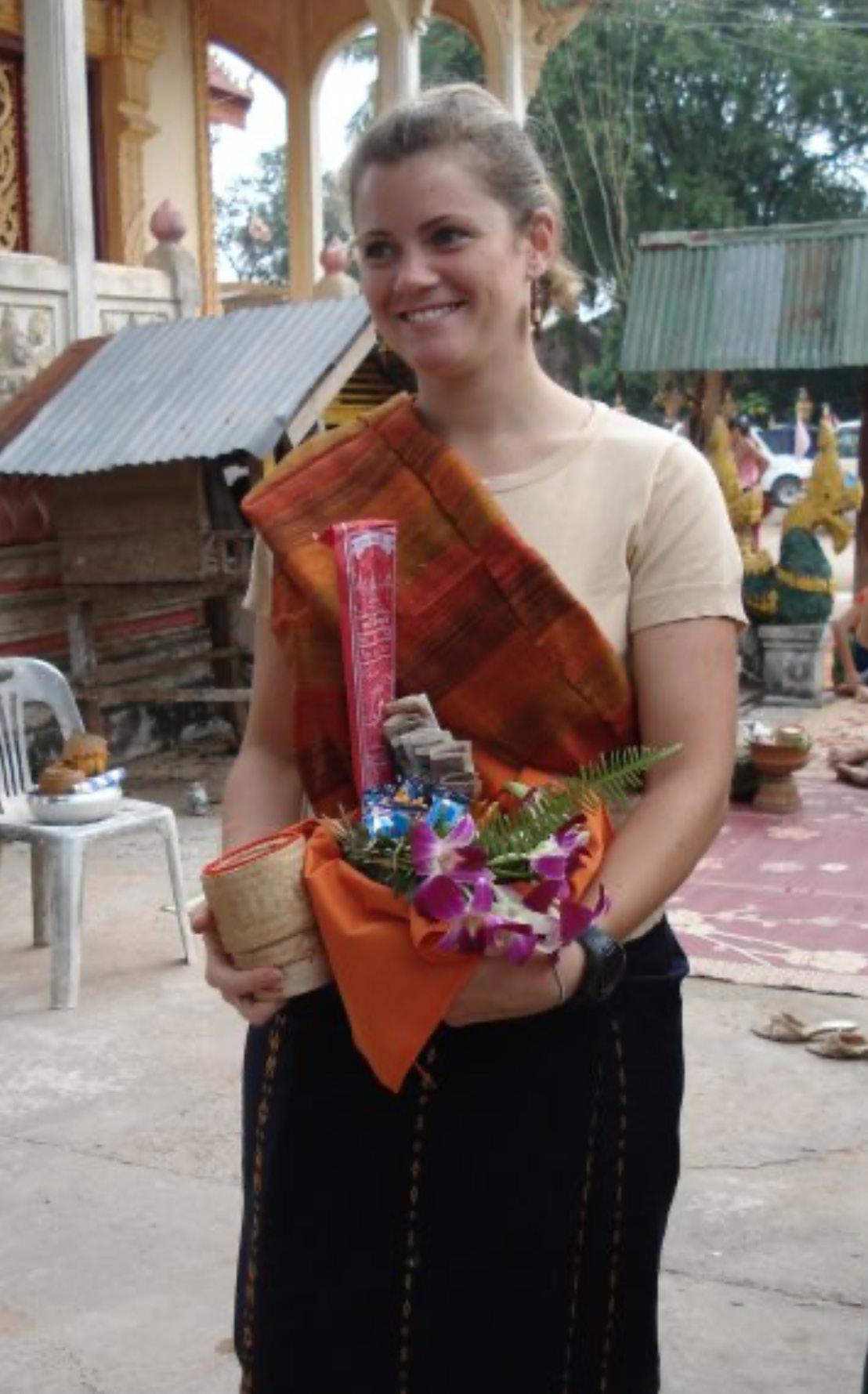
classroom work, team-building exercises, and immersive wilderness experiences. The new social enterprise brings together much of what she loved about her fellowship, including teamwork, group facilitation, and risk taking. The seeds she planted early on in Laos are beginning, now, to bear fruit.
Still, it would be overly simple to make this a story about career transformation. More striking is the way a PiA fellowship can endow a person with new perspectives, feelings of purpose, and an expanded sense of possibility. Chris Vinnard sums it up nicely: “I think the lesson I took from PiA is: you are not one thing. If you’ve gotten onto a track and you’re feeling like your passion or your interest is wanting to move you in a different direction, there’s always an opportunity to follow where those passions are taking you.”
by Michele Hickey
We’re honored to share the story of Scott D. Seligman Taiwan ‘73-’74, Trustee 1975-2016, and Princeton Class of 1973, whose life was, in his own words, “radically and permanently changed by Princeton in Asia.” At the Annual Dinner, PiA proudly launched the Planned Giving program with a video from Scott, who shared how his deep belief in PiA’s mission of fostering cross-cultural understanding inspired him to support PiA in this meaningful way – an act that has since encouraged others to do the same.
Princeton in Asia is deeply grateful to the members of the Legacy Society for their generosity and commitment to strengthening its mission for generations to come.
Although he applied to Princeton in Asia as a graduating American history major in 1973, Scott D. Seligman (Taiwan ’73-’74) didn’t really want to go to Taiwan. On the advice of friends with experience in Asia, he made it clear on his application that of the three fellowships being offered – one each in Hong Kong, Japan and Taiwan – Taiwan was not an attractive option.
Imagine his surprise when, following his PiA interview, he received word that the selection committee had voted to offer him a teaching position at Tunghai University in Taichung City. “I marched over to the PiA office to ask why my request had been ignored,” he recalls. “Robert Atmore, PiA’s executive director at the time, pointed out that since I really didn’t know anything at all about Asia, I should perhaps be more open to the opportunity.”
“The committee, which included several people I knew from working as a resident adviser at Princeton, felt that I was best suited for the Taiwan Fellowship,” Seligman continues. “Looking back on it with a half-century of hindsight, I think they were dead right.”
The only thing standing between Seligman and Taiwan was an eight-week crash course in Chinese at Vermont’s Middlebury College. “I had to look at a globe to see exactly where Taiwan was,” he says. “I decided to learn as much as I could about the politics and history of the region. But I was most intrigued by the cultural differences between Chinese and Americans. I wanted to know more about them.” Middlebury provided intensive language education prior to his departure. One of the professors, who had just returned from Tunghai University, provided an additional cultural briefing.
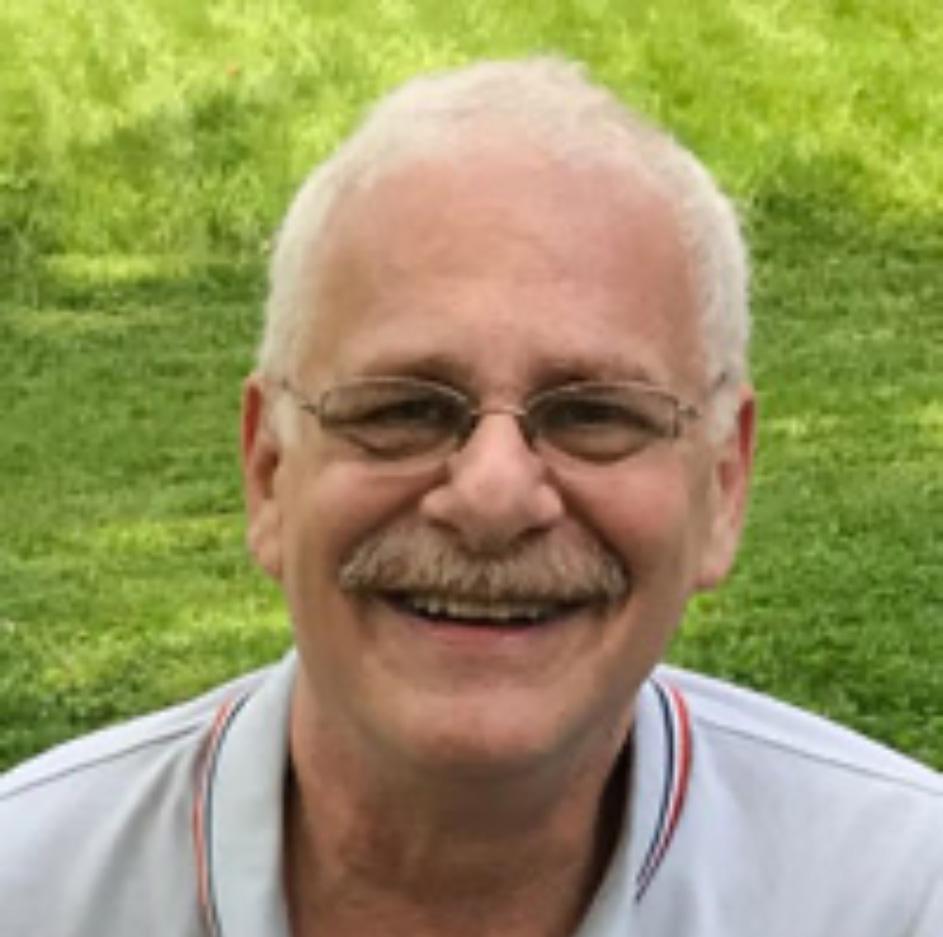
For the first time in his young life, Seligman boarded an airplane. Three grueling flights and a train ride later he arrived, exhausted, in Taichung. “I can’t remember much about my first day, except that I spent the night in a guest house with a gecko as a roommate,” he says. “I had no idea what he might do to me – I can tell you that I didn’t get much sleep that night!”
Even though Seligman had no training as a teacher, he joined the English teaching faculty at Tunghai. Cultural differences quickly surfaced. “I was trying pick up cues from the students about what was, and wasn’t, working in class,” he says. “But students in China are socialized to keep their feelings off their faces. Asking questions or letting me know when they were having difficulty understanding a lesson might be seen as disrespectful. So I had to dream up other ways of reading them.”
Outside of class, the students were very welcoming, inviting him to join them on outings like camping trips. “They were as curious about me as I was about them. And the extra time we spent together helped all of us strengthen our language skills.”
The more he learned about Chinese culture, the more he wanted to know. “You can read all you want, but intellectual understanding is no match for experience. We don’t set out to make cultural mistakes; they usually happen when we are behaving as we would in our home culture, and that doesn’t always work in a new setting.”
Despite the geckos, which he quickly learned to appreciate because they ate the mosquitos, Seligman stayed another year at Tunghai and taught psychology in addition to English. “Western psychological concepts were totally new to the students, which made it fun,” he says.
He points to an all-Chinese production of Fiddler on the Roof that he produced and directed at Tunghai as his crowning achievement in his two years there. “It was a beautiful exploration of cultural themes – including arranged marriages, which was an important topic of conversation in Taiwan at the time,” he says.
Seligman returned to the U.S. a changed man. “My vision had been greatly expanded,” he says. “I understood so much more – not only about the Chinese, but also about myself. I started to think about a career in cross-cultural communication.” First, he pursued a master’s degree at Harvard, but his interest in Chinese culture never wavered. “I felt a need to have Chinese people in my life,” he says. “I was the only non-Chinese member of Boston’s Chinese Intercollegiate Choral Society that year. It was very exciting to be given a solo in one of our performances.”
He began his career in America as an Assistant Dean of Students at Princeton, and then moved to Washington, D.C. to work for a member of Congress. After the U.S. and China established full diplomatic relations in 1979, he joined what is now U.S.-China Business Council and, before long was sent to manage its Beijing office. While there, he also helped launch the American Chamber of Commerce in China and the Princeton Club of Beijing. In the mid-1990s, he returned to Beijing, where he managed the China office Burston-Marsteller, then the world’s largest public relations firm. Helping introduce Chinese customers to Western companies and their products, was, he recalls, was “a perfect fit for someone interested in communications.”
Although he retired early from the business world, Seligman began sharing his expertise with a broader audience. He wrote a protocol guide for people doing business with China and cowrote a Chinese phrasebook for travelers. He then went on to write several works of narrative nonfiction about early Chinese Americans, including The First Chinese American: The Remarkable Life of Wong Chin Foo, Tong Wars: The Untold Story of Vice, Money and Murder in New York’s Chinatown, and The Third Degree: The
Triple Murder that Shook Washington and Changed American Criminal Justice. The latter won a gold medal in the 2019 Independent Publisher Book Awards.
Seligman’s passion for Chinese culture developed into a broader interest in the lives of other “hyphenated” Americans. The Great Kosher Meat War of 1902: Immigrant Housewives and the Riots That Shook New York City, about Jewish immigrants in Lower Manhattan, was followed by A Second Reckoning: Race, Injustice, and the Last Hanging in Annapolis a chronicle of the case of an African-American man accused of murder in 1919. Both won national awards. In all, he has authored eleven books, including The Chief Rabbi’s Funeral: The Untold Story of America’s Largest Antisemitic Riot, released in 2024.
He has published articles in Smithsonian Magazine, The Atlantic, the Washington Post, the Seattle Times, the Asian Wall Street Journal, the China Business Review, Tablet Magazine, The Forward China Heritage Quarterly The Cleaver Quarterly, Bucknell Magazine, Howard Magazine, the Smithsonian Asian Pacific American Center blog, the New York History blog, the Granite Studio blog, and Traces, the Journal of the Indiana Historical Society. He has also created several websites on historical and genealogical topics.
PiA has remained a constant in Seligman’s life. He is still in touch with his fellow teachers from his years at Tunghai University. He became a PiA trustee soon after his return to the U.S., serving for 40 years, and is now an emeritus member of the board. He has always been a strong advocate of reserving some fellowships for students who, like himself, come to the program with no prior experience with Asian culture or languages. He is proud of the program’s progress in engaging more – and more diverse – Fellows, and in expanding to new countries.
“My hope for PiA is that we can train a corps of people who can help bridge the cultural divides between the U.S. and Asian countries,” he says, noting that he intends to remember PiA in his will.
In 1973, Seligman was a student who, like young people everywhere and in every time, wondered what the future might hold. Because of PiA, he has championed the stories of people from other cultures. He continues to encourage us all to appreciate the opportunities offered by strengthening cross-cultural understanding.
We invite you to include Princeton in Asia in your estate plan and help foster cross-cultural understanding for generations to come. Join our Legacy Society: https:// princetoninasia.mylegacygift.org/
by Michele Hickey
Matthew Bersani (Taiwan ’82-’83) and his family are true champions of the Princeton in Asia (PiA) mission. They generously support fellowships, and he and his wife, Molly, are regulars at PiA events. Two of their four children, Isabella Bersani (Mongolia ‘16) and Walter “Cliff” Bersani (China ‘15), along with Isabella’s wife, Nina Houston (Kazakhstan ‘16 and Hong Kong ‘17), are also PiA alumni. Matthew was a member of PiA’s Asia Advisory Council from 2015 to 2021 before being elected to the Board of Trustees in 2021.
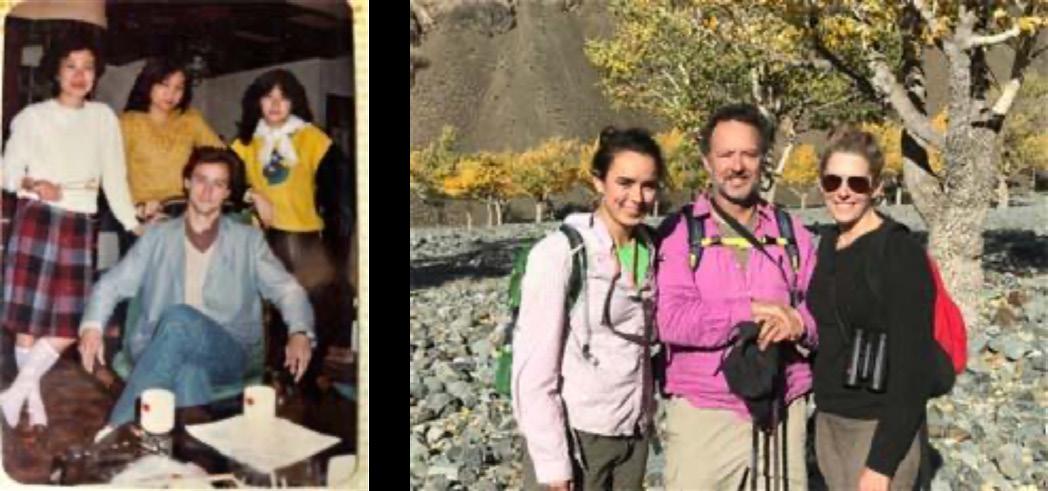
Growing up in Syracuse, New York, Matthew initially envisioned a career in medicine, following his father’s footsteps. While studying premed at Princeton, however, doubts about his path began to surface. Wandering the campus in search of answers, he stumbled upon the PiA office.
“Robert Atmore, PiA’s director at the time, had a tiny office with a makeshift sign,” Matthew recalls with a laugh. “I knocked on the door, got the pitch, and before I knew it, I was signed up and on my way to Taiwan!”
The conversation with Atmore reignited Matthew’s passion for exploring the world. “I always had a bit of wanderlust, reading novels set in faraway places,” he says. “In high school, I spent a year in New Zealand through the Rotary Youth Exchange program.”
Though he was ready for adventure, convincing his parents required some tact. “I told them that I was not abandoning my medical track, only that I would be deferring it for a bit.”
Matthew’s PiA assignment was teaching a philosophical literature seminar at Tunghai University in Taichung City. “Taichung City was not as international as, say, Taipei,” he notes. “It was much more Chinese, which made for a much more immersive experience.”
Immersion included living in a dormitory that Matthew describes as shed-like. “The walls were covered with moss and geckos. There was no air conditioning, and we shared a common bathroom,” he recalls. Despite the culture shock, he grew to love the city’s ancient history, culture, and his teaching role.
Fascinated by the language, Matthew worked hard to achieve conversational fluency. “I wanted to engage with the people around me,” he says.
When his two-year PiA assignment ended, Matthew wasn’t ready to leave. “I wanted to continue developing my Chinese fluency, but now I was out of a job,” he says. In Taipei, he took an old-school approach to job hunting. “I looked for the tallest building, thinking it would have the most opportunities. I took the elevator to the top floor and started handing out resumes. By the time I got to the bottom, had a job as a quasi-translator for a Chinese company.”
This experience taught Matthew the value of initiative, setting the tone for an amazing career. When Columbia Law School later recruited him, he saw a way to combine his passion for China with a legal career.
Early on, he ran a one-lawyer office in Beijing soon after the 1989 Tiananmen Square protests – a time when few foreigners lived in China. He joined Shearman & Sterling, one of the world’s leading law firms, in 1994, becoming the firm’s Asia managing partner in 2004. His work placed him at the heart of China’s privatization movement in the early 2000s, advising major companies and global financial institutions like Goldman Sachs and Morgan Stanley on high-profile IPOs for PetroChina, ChinaMobile, Hutchison entities, and the largest-ever IPO out of Thailand.
Matthew’s time at Shearman & Sterling also included serving on the firm’s global board of directors and global executive group, as well as leading its global corporate finance team, the firm’s largest practice group.
Matthew and his wife raised their family in Hong Kong. Cliff’s PiA fellowship involved making micro loans to ethnic minority women starting small business enterprises in the far west of China. Isabella spent her PiA fellowship in Mongolia working for a bank that was financing clean energy projects. “PiA was just as empowering for them as it was for me,” he says.
Matthew’s experience and business relationships support his current role at Cliff Group, recruiting talent for large law firms, and he serves on the board of J.P. Morgan China Asset Management. His work requires frequent trips to China. “Other than attending Princeton, PiA had the single most positive influence on my life,” he reflects, noting that he hopes Isabella or Cliff will one day follow his lead in serving PiA. “It has since become a family experience. In fact Isabella met her wife, Nina, at a PiA event in Hong Kong for the Laotian women’s rugby team.”
“It’s a little bit hard to describe to someone who was not a PiA Fellow how impactful this program is, without it sounding like a cliché,” Matthew adds. “PiA provides more than a conduit to cultural understanding. It is a two-way street. PiA Fellows deliver real talent and value to their assigned organizations. For those of us who experienced PiA, it has transformed our worldview.”
by Michele Hickey
For S. Peter Poullada (Iran ’75 and Afghanistan ’76), a PiA fellowship was not a leap into the unknown but a continuation of a life immersed in global exploration. In 2024, Poullada created the JacksonPoullada Fund to support future PiA Fellows in Central Asia, with an initial commitment of $268,000 and an additional gift to bring the endowment to a minimum of $500,000.
Poullada’s mother, Leila Dean Jackson, was a trailblazer. After serving in the WAVES (Women Accepted for Volunteer Emergency Service), the U.S. Navy reserve program for women during World War II, she
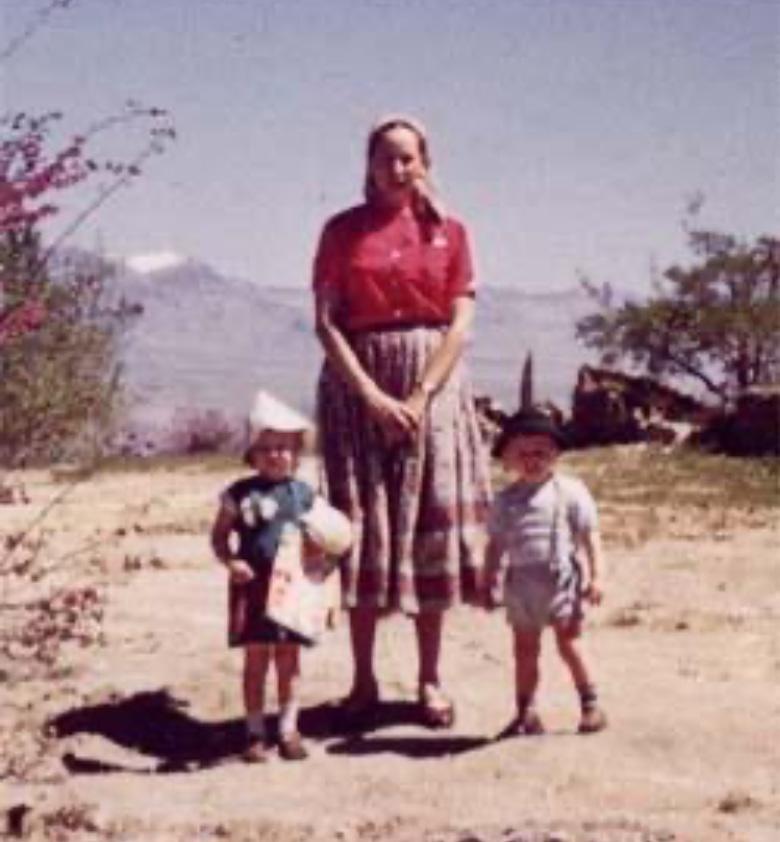
low enrollment, Atmore connected him with a teaching position at a U.S. Embassy-run language center in Kabul, Afghanistan. Returning to a country he knew well, Poullada developed an advanced English curriculum for Afghan Fulbright scholars preparing for U.S. studies.
Poullada’s time in Kabul was a blend of teaching, studying Persian literature at Kabul University, and traveling, including scaling the 18,000-foot Shah Foladi peak. Despite modest earnings, he cherished the simplicity of life in a small mud-brick house shared with fellow PiA alumnus, ’75 classmate David Edwards.
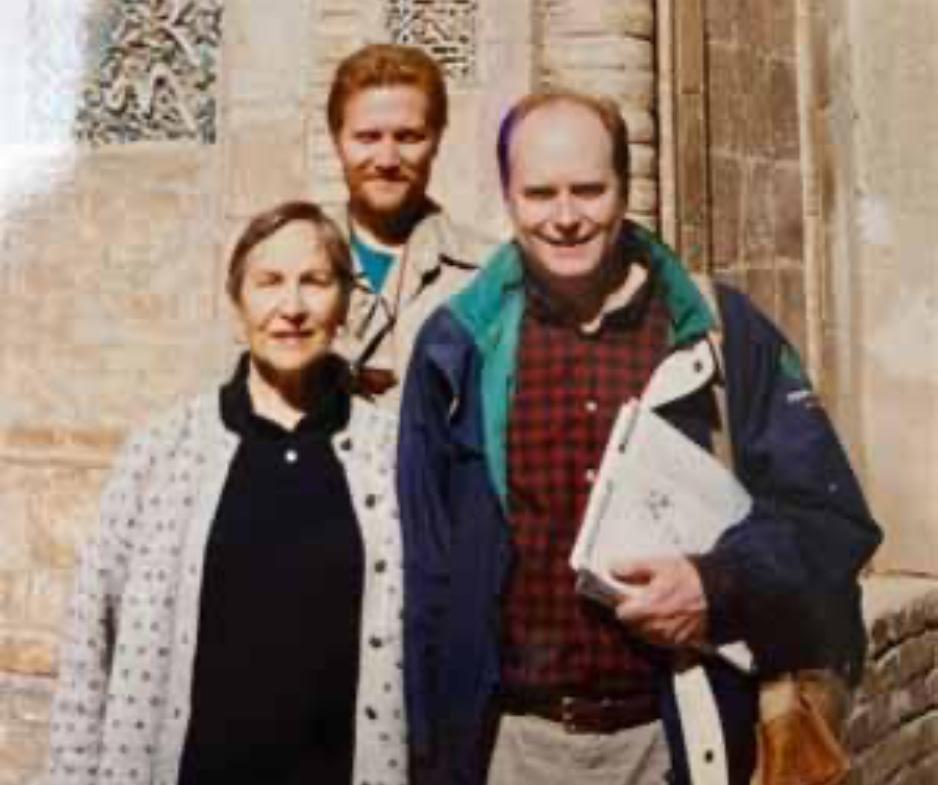
“David and are, to date, the only PiA alumni who were Fellows in Afghanistan,” Poullada points out. “Maybe someday, (Inshallah, as they say in Kabul), we will be joined by a new generation of PiA’ers who can experience the extraordinary cultures of the Hindu Kush. remember we lived very simply, mostly eating rice, yogurt, and vegetables, occasionally with lamb. The big treat for me was once a week I bought a large Toblerone chocolate bar and shared it very, very slowly with friends at a local tea house.”
traveled to Pakistan to study Urdu and later pursued a doctorate in South Asian studies at the University of Pennsylvania. There, she met Leon Poullada, a mid-career State Department grad student in South Asian studies who had recently served in Sri Lanka (then known as Ceylon). The couple married in 1952 and embarked on a Foreign Service career, living in Pakistan, Afghanistan, and Togo.
Born in Lahore, Poullada spent his early years in Afghanistan and Togo, West Africa, before returning to the U.S. in 1965 when his father became a Princeton professor. The younger Poullada went on to enroll in Princeton University’s renowned Near Eastern Studies program, studying Islamic history and languages, including Arabic and Persian. His senior thesis on Iranian tribal policies led him to PiA, where director Robert Atmore pointed him to a teaching position at a private Iranian high school. After graduating in 1975, Poullada traveled to Tehran to begin his fellowship.
Iran was undergoing a transformation under the Shah, but it remained a conservative Islamic society, Poullada recalls. Unlike most Americans in compounds, he had a more immersive experience teaching in a local school and speaking Persian. When his role was cut due to
After his fellowship, Poullada earned a master’s degree in International Economics and Policy Studies at U.C. Berkeley and launched a career in international banking. He spent 14 years in Istanbul and London before co-founding Belgrave Capital, the UK’s first approved emerging markets hedge fund. Retirement brought him to Northern California, where PiA finally caught up with him through former Executive Director Carrie Gordon.
“She was looking for someone to support and help expand PiA’s footprint in Central and Inner Asia, so I signed on board.” Poullada joined PiA’s Board of Trustees in 2013, serving on committees and supporting strategic planning. Financial support was identified as key to PiA’s long-term success, inspiring Poullada to establish the JacksonPoullada Fund to remove barriers for Fellows in Central Asia. The fund honors Poullada’s mother, a longtime PiA supporter, as well as his grandfather, Norris Dean Jackson, Princeton class of 1917, who aspired to join PiA in China but instead had to go to France for World War I.
Poullada’s so-called retirement remains busy. He has led private tours of Central Asia, published a book on Russian-Turkmen history, and continues researching tribal nomads. Yet PiA remains a priority. He hopes the endowment ensures future Fellows gain life-changing experiences because Central Asia’s rich cultures deserve to be explored and understood.
The 125th Anniversary Gala Dinner, held on April 13, 2024, at the Asia Society in New York City, brought together 94 Princeton in Asia (PiA) alumni spanning six decades of the program’s history and dozens of PiA friends and family. The evening, themed Honoring our past, celebrating our present, and imagining our future was a celebration of PiA’s enduring legacy. Attendees included dedicated volunteers, past and present team members, trustees who have guided the organization through times of change, and generous donors who have helped PiA grow and thrive.
Co-chaired by Bill Bikales and Sharon Lyu Volckhausen (Korea ’91), with support from the Gala Benefit Committee and PiA staff, the event was a resounding success. The evening began with a reception and museum access, followed by dinner and a program that highlighted PiA’s rich history and ongoing mission to foster cross-cultural understanding between the United States and Asia. A highlight of the night was a spirited live auction, which helped raise over $250,000 to support PiA’s mission. Thank you to our guest emcee Jennifer Yeh Wannenmacher (Hong Kong SAR ’01), our guest auction speaker Marshall Roslyn (China ‘02), and our Board Chair John Evans (Thailand ’92) for bringing passion and energy to our program and the auction.

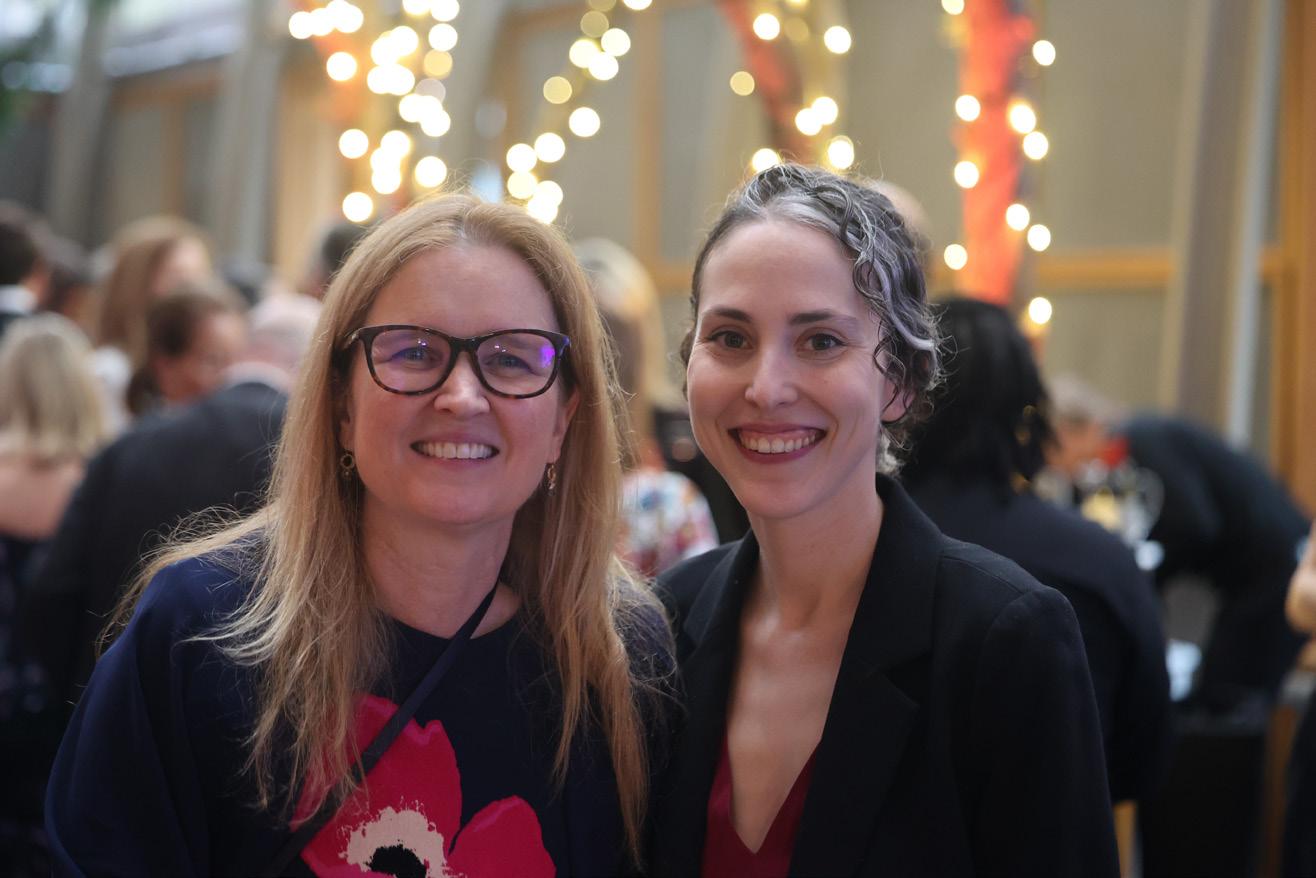
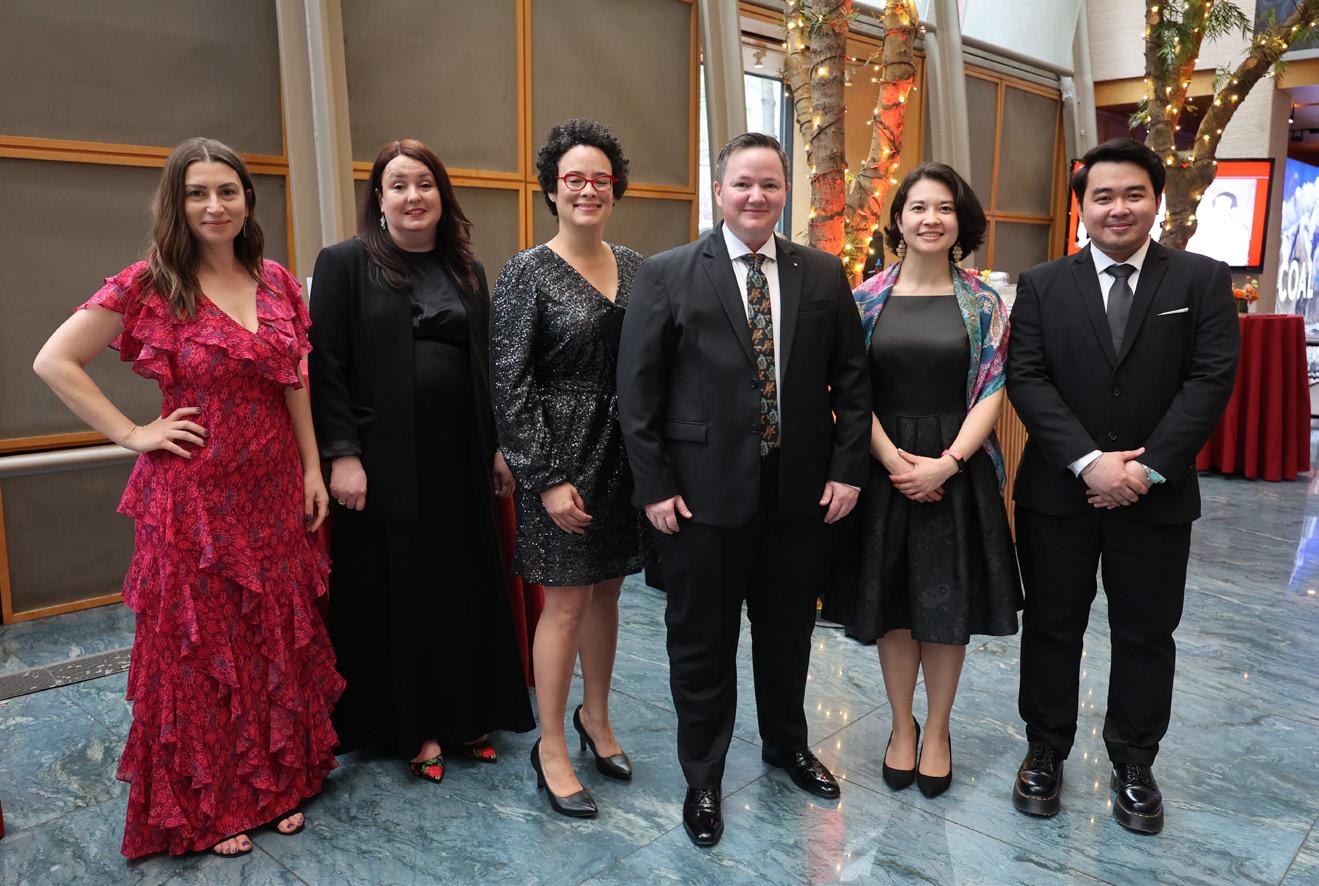
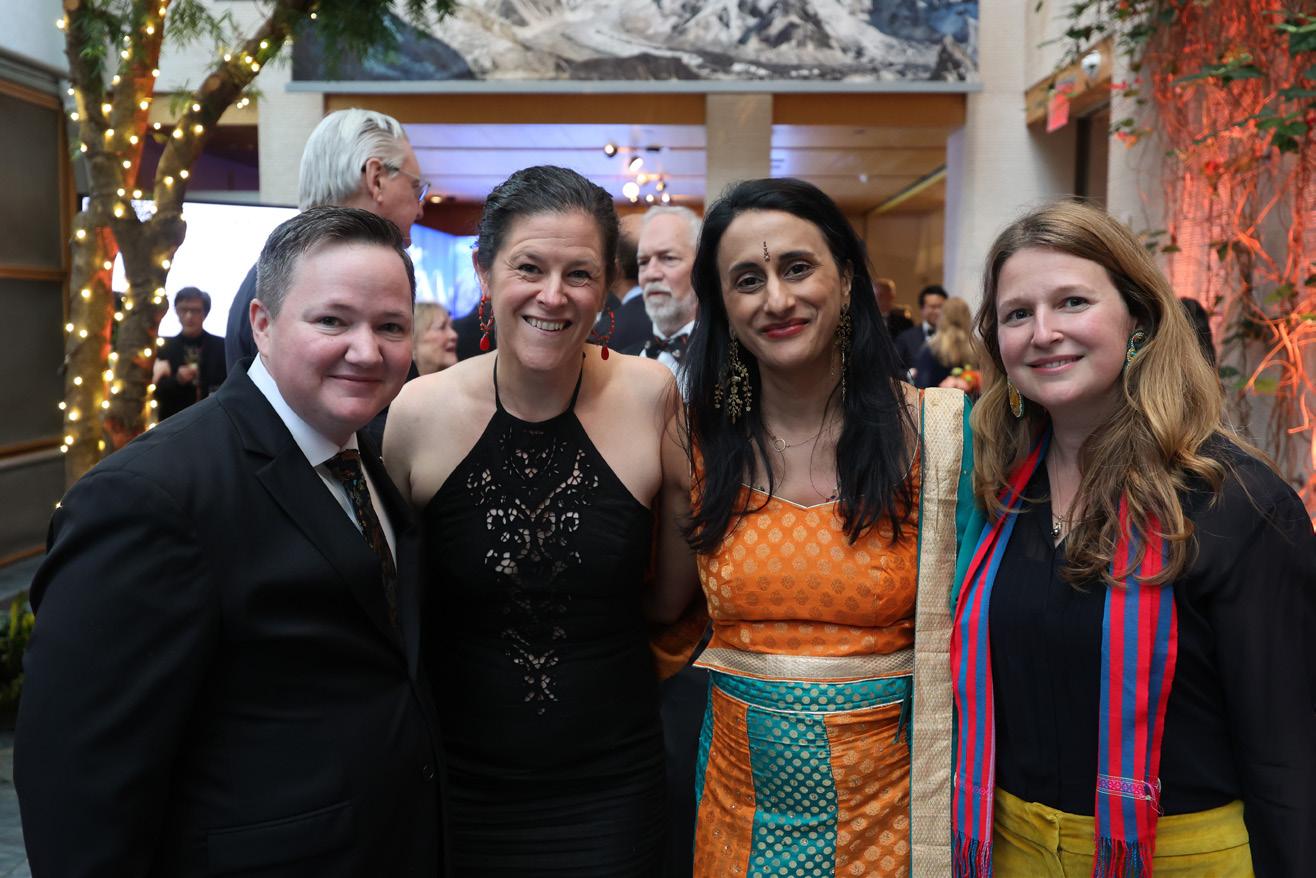

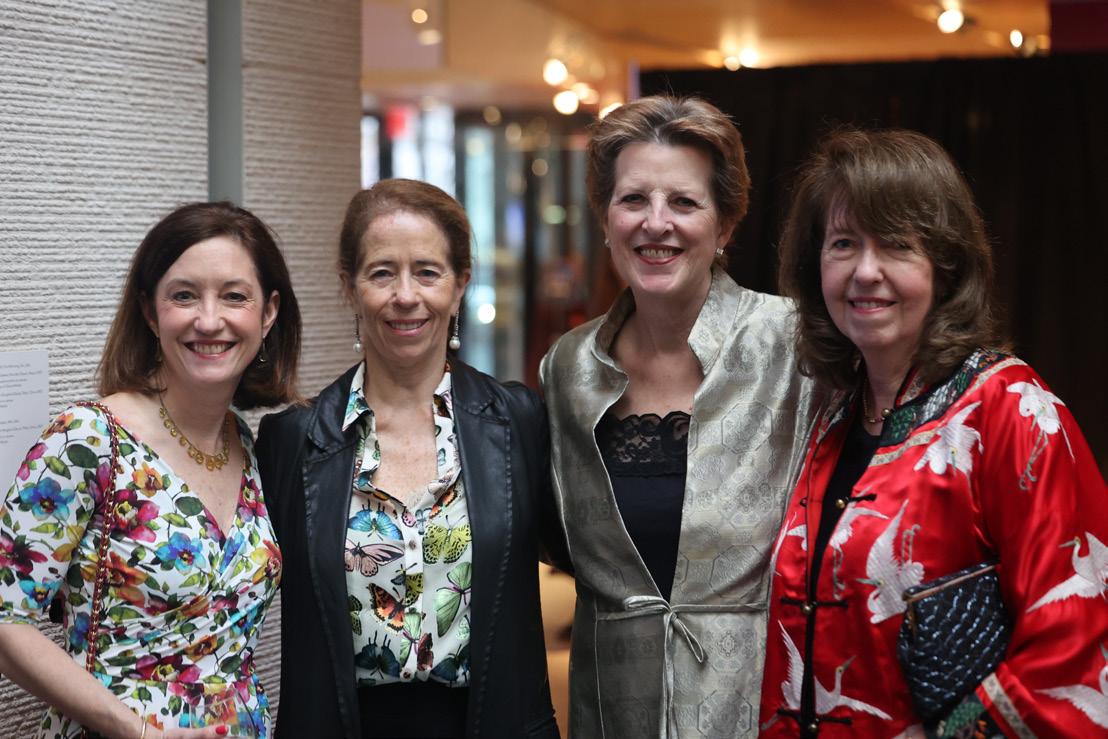
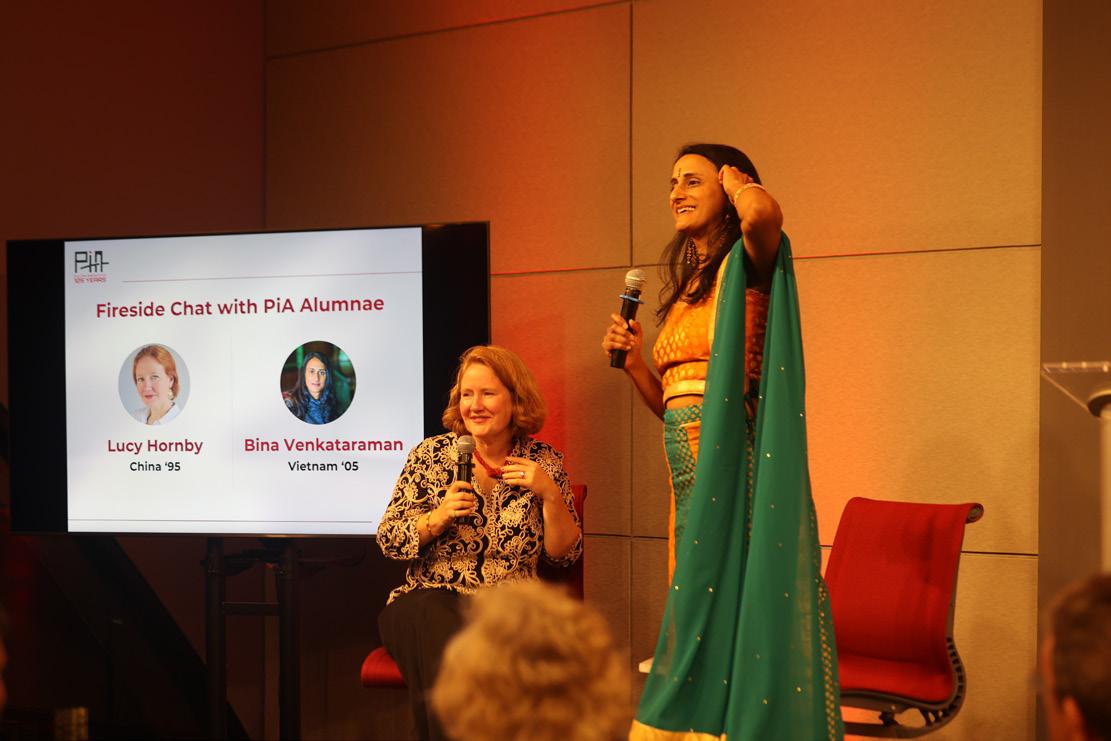
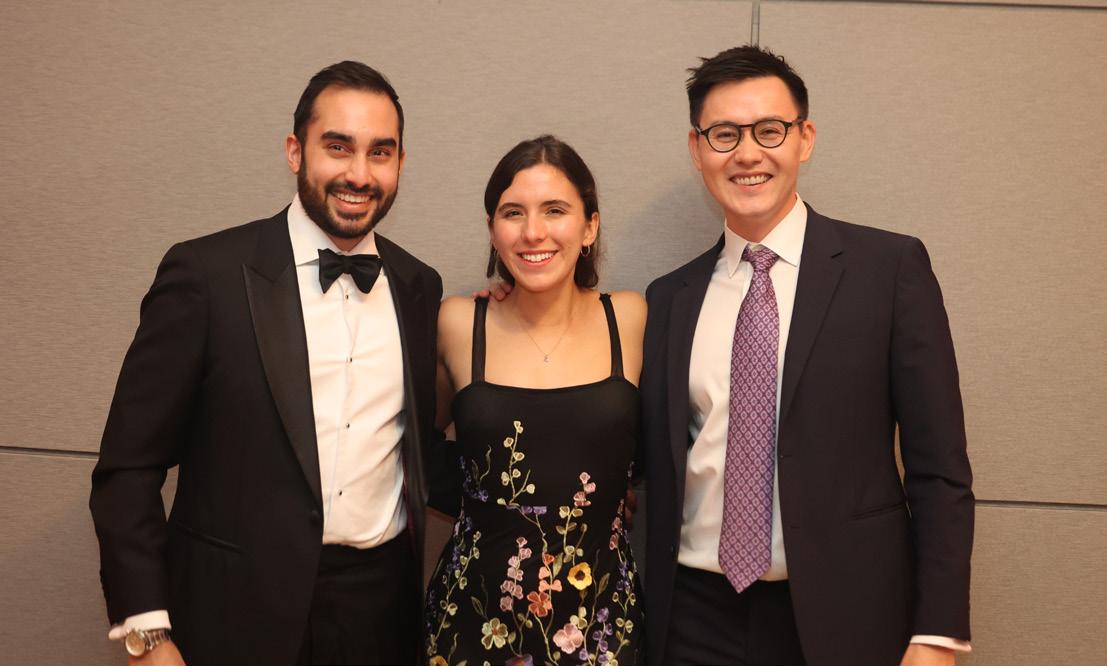
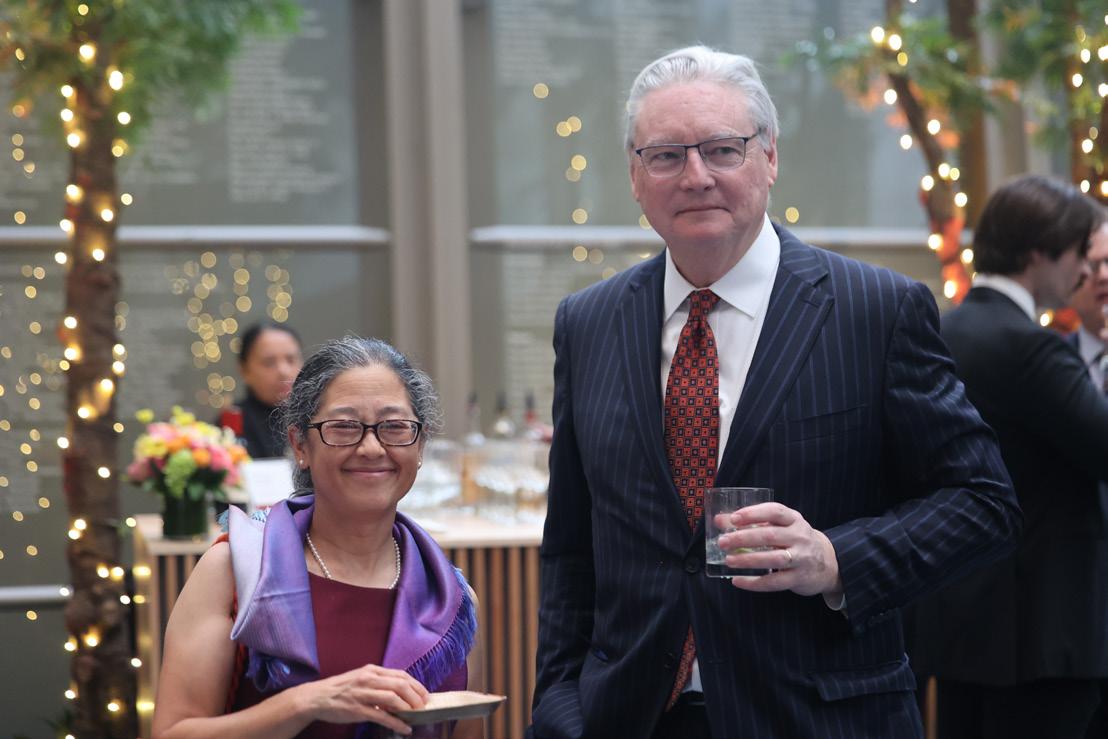
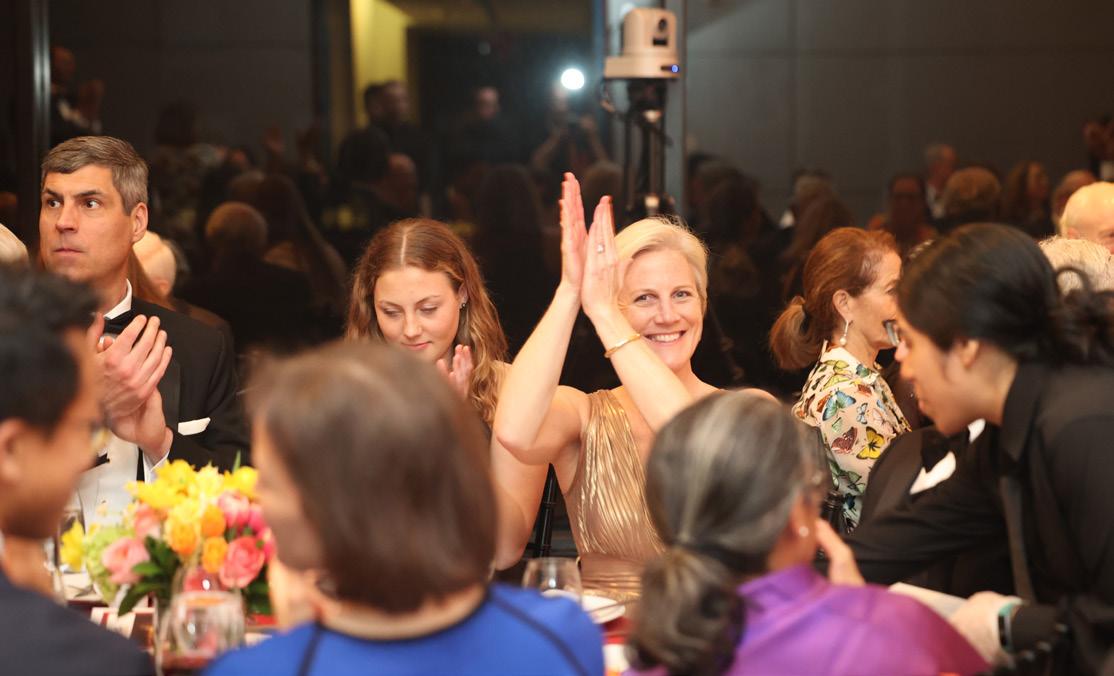
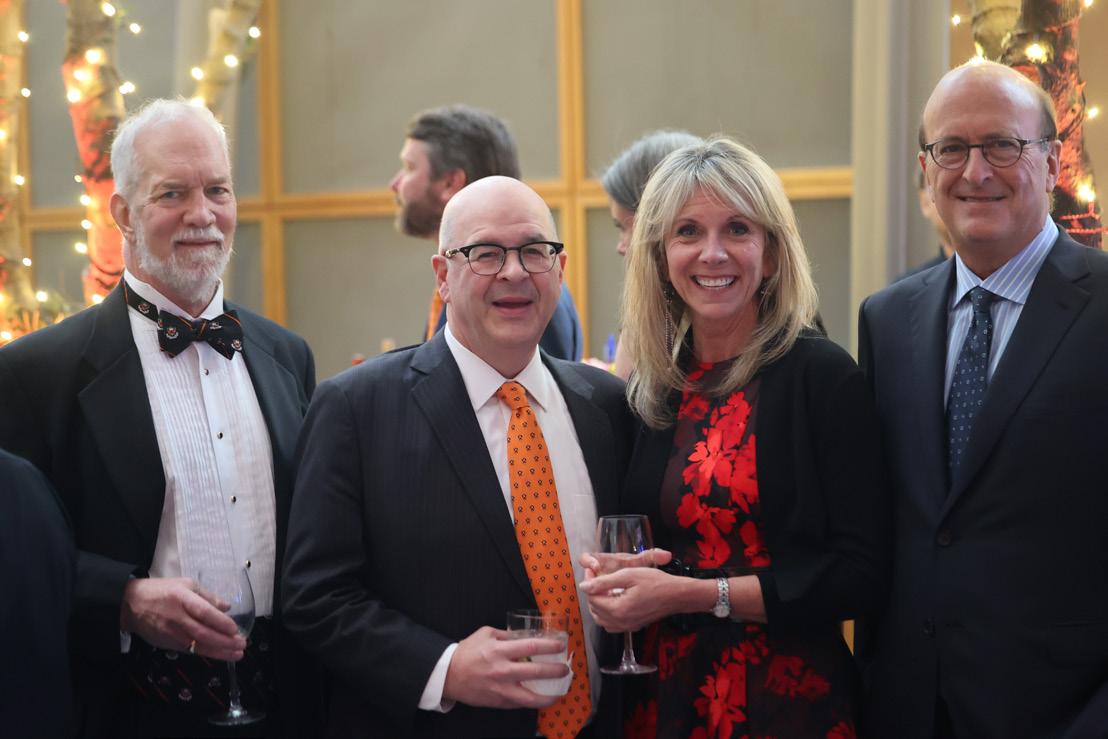

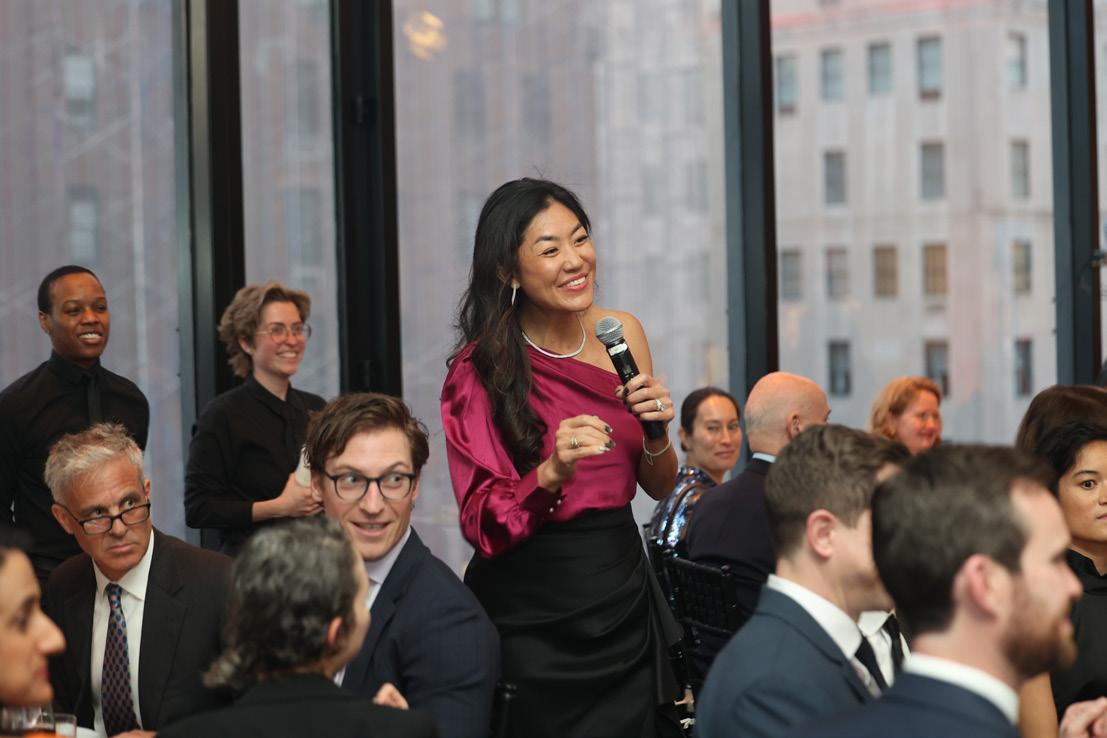


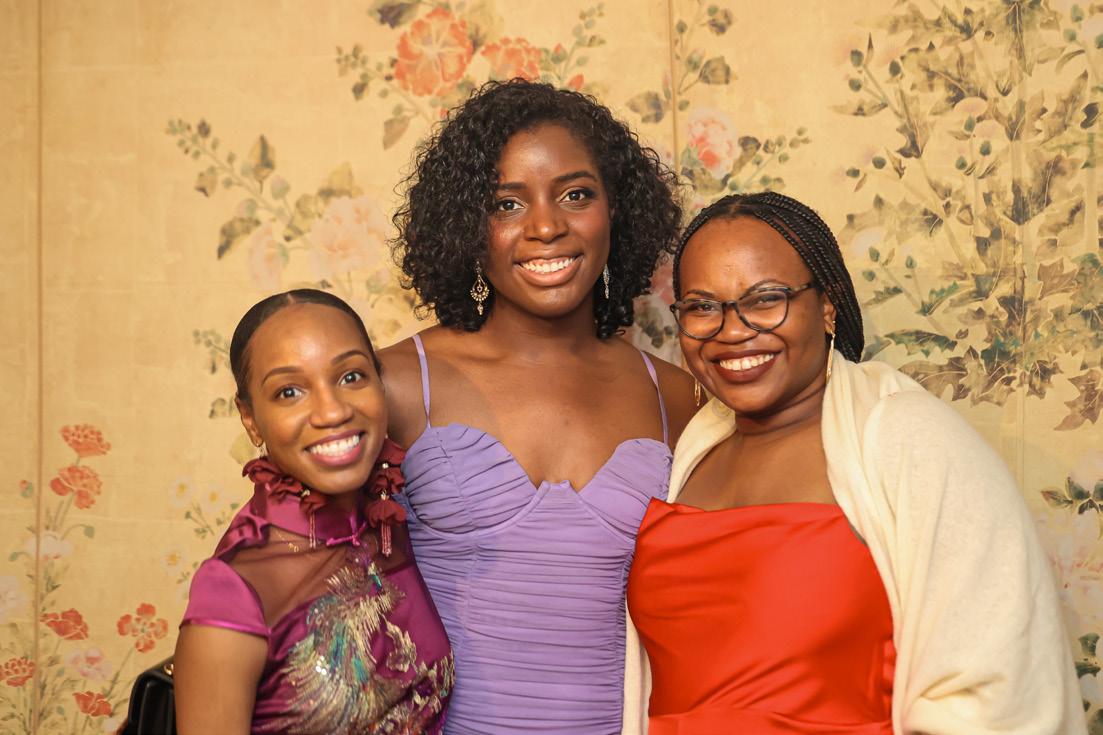
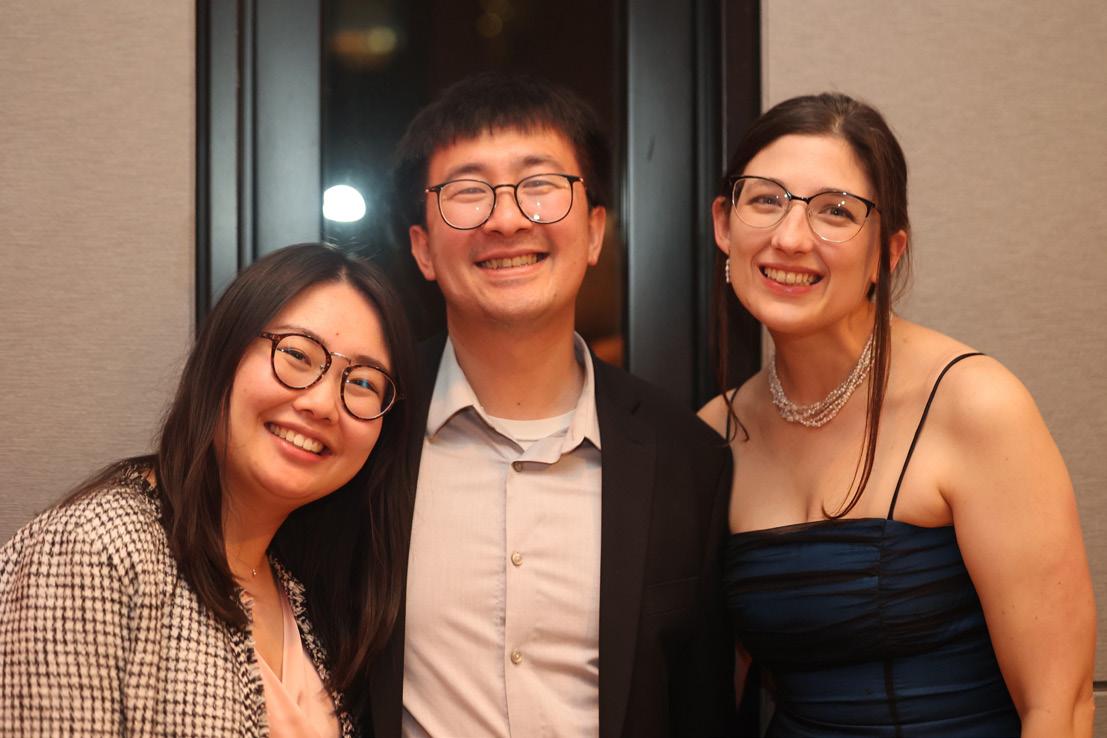
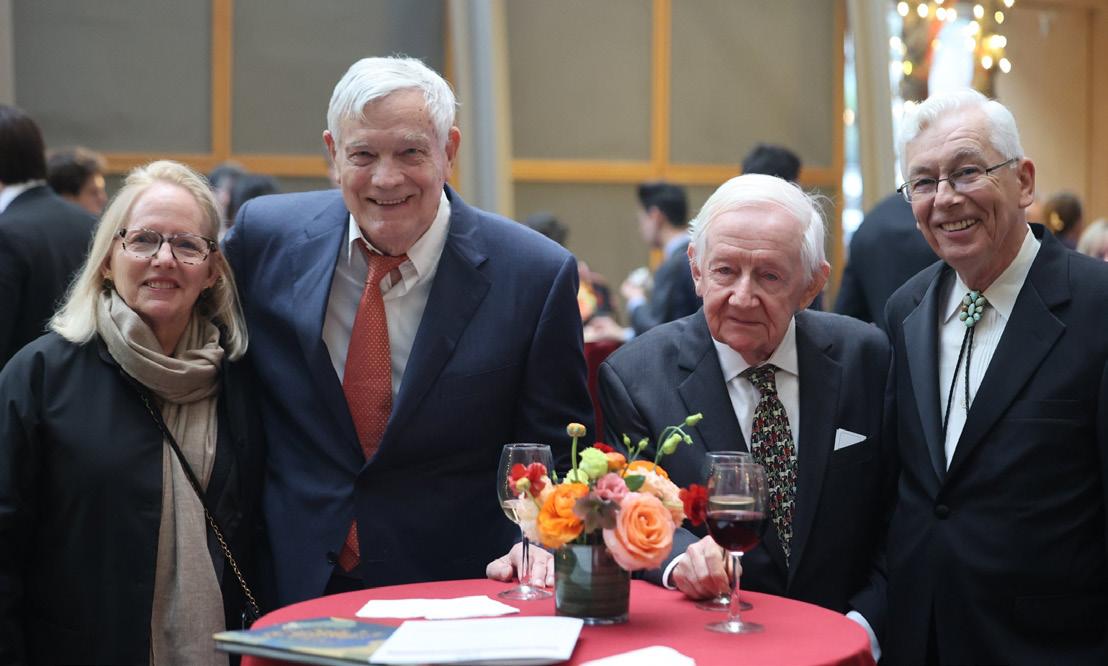
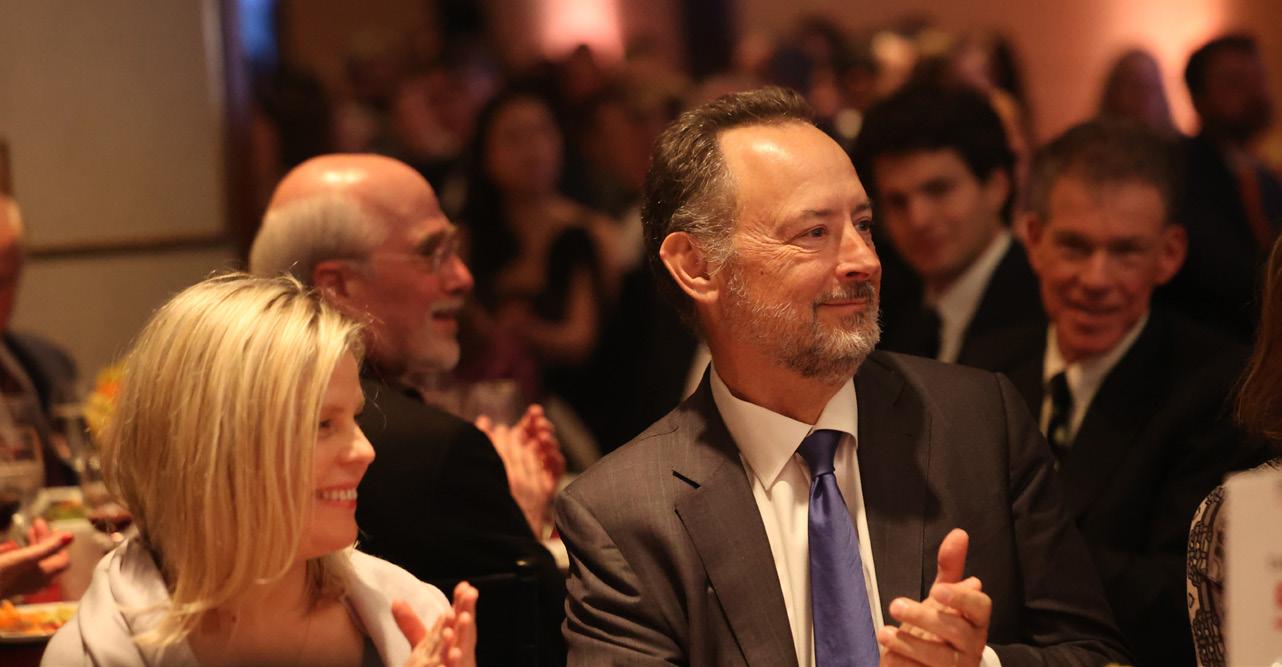
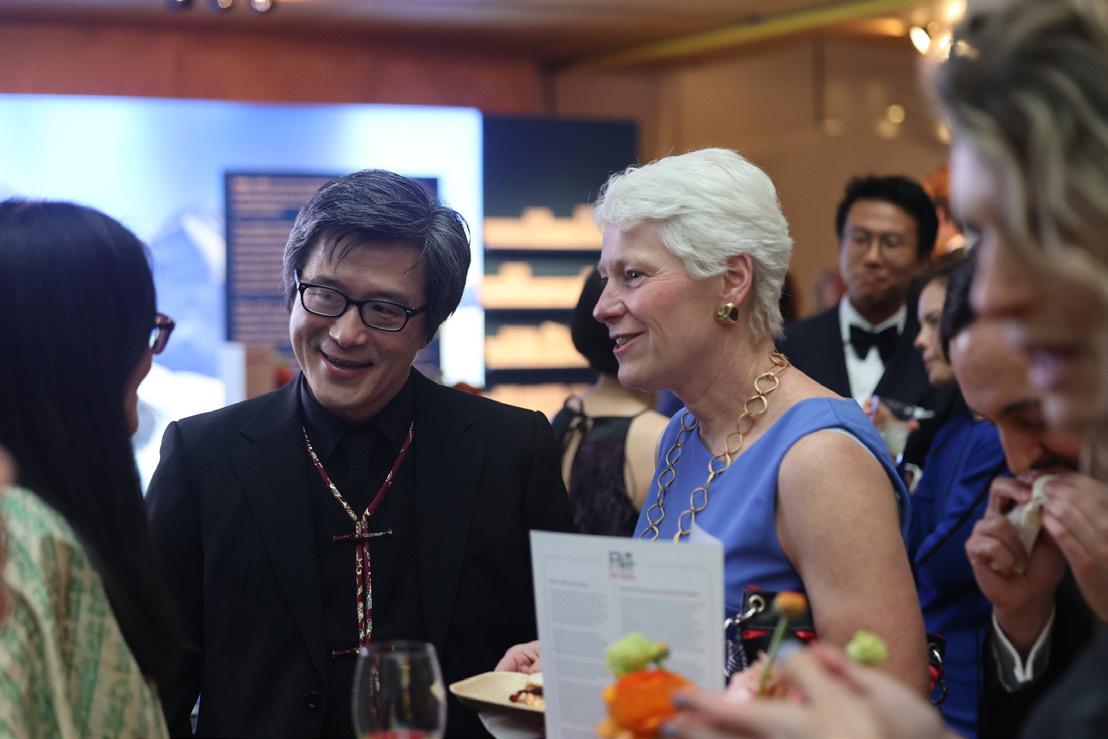
A heartfelt thank you to everyone who joined us for PiA’s Annual Dinner on September 27, 2024, at Princeton’s Louis A. Simpson International Building. Under the theme Celebrating Legacy alumni from 12 countries and regions came together for an evening of connection and reflection.
The night featured inspiring remarks from the legendary Margaret Crotty (Indonesia ’94) and Dr. Rory Truex (China ’05), who spoke passionately about the enduring importance of building bridges between the U.S. and Asia. Their reflections underscored PiA’s ongoing mission and the strength of our global community.
Save the date for the next Annual Dinner on October 4, 2025 – another opportunity to connect, reflect, and celebrate the PiA mission at our signature event.
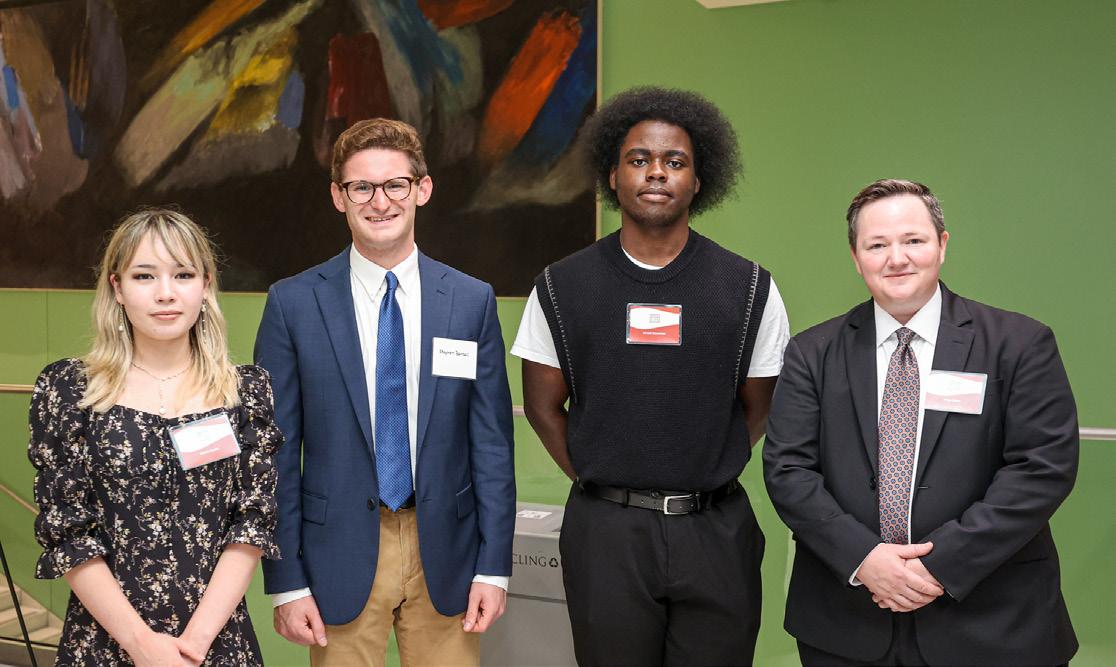
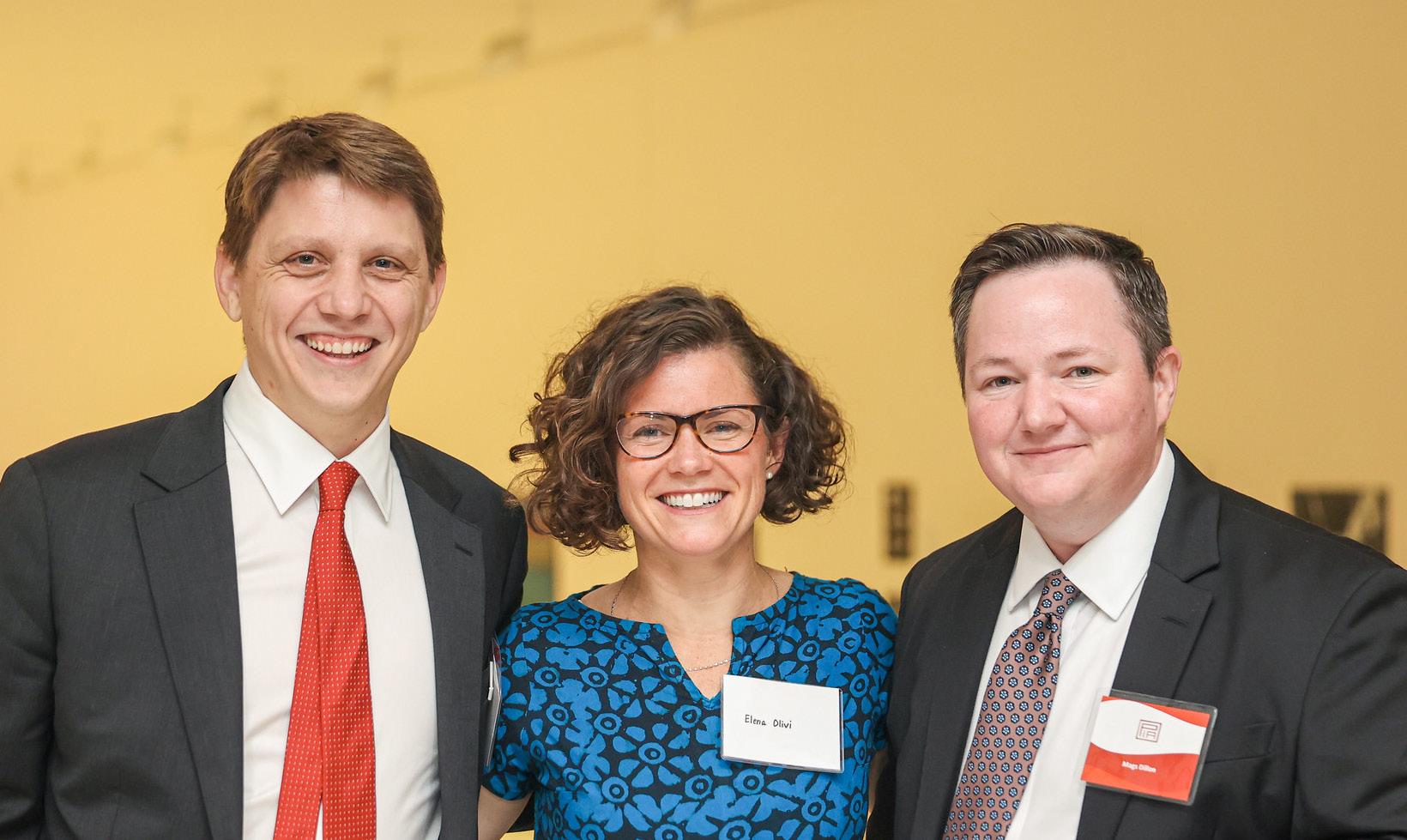
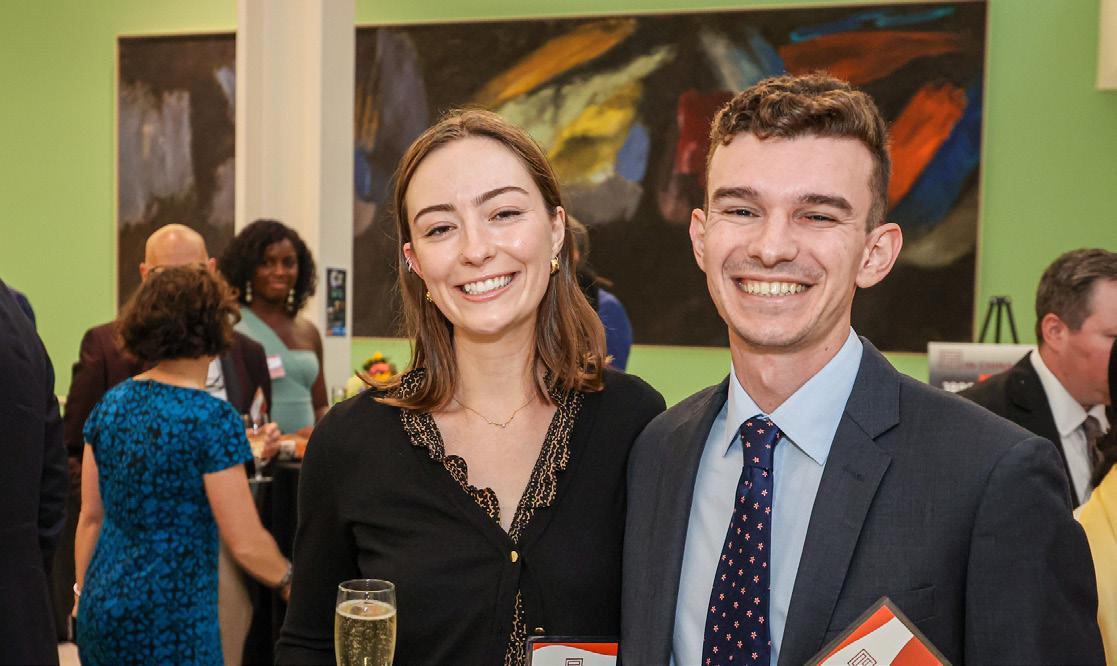
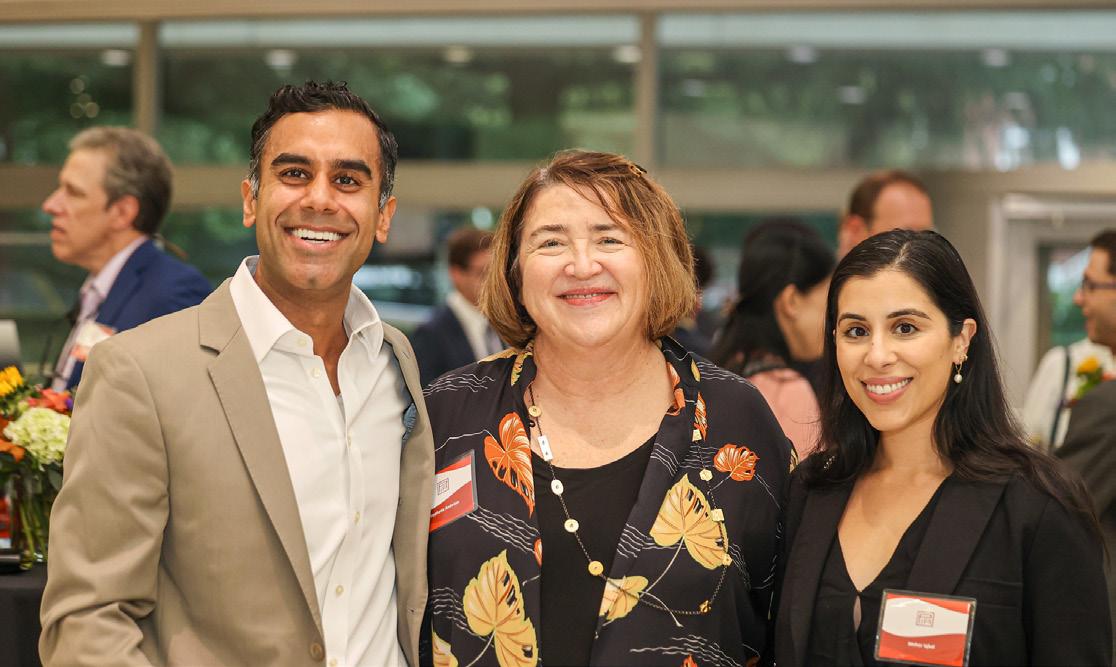

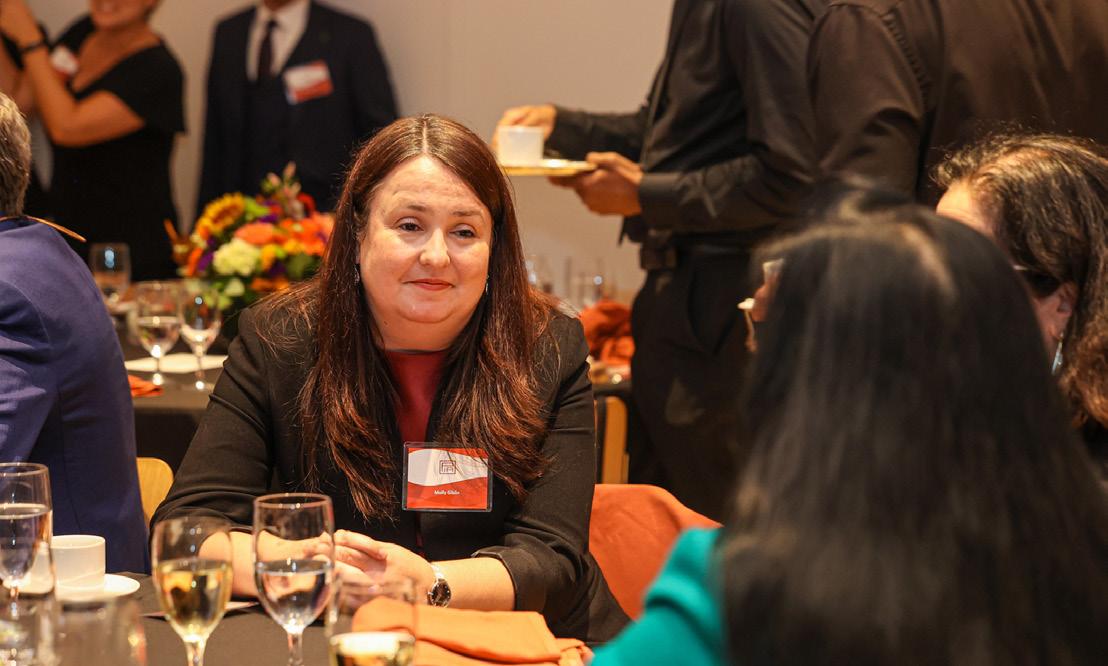
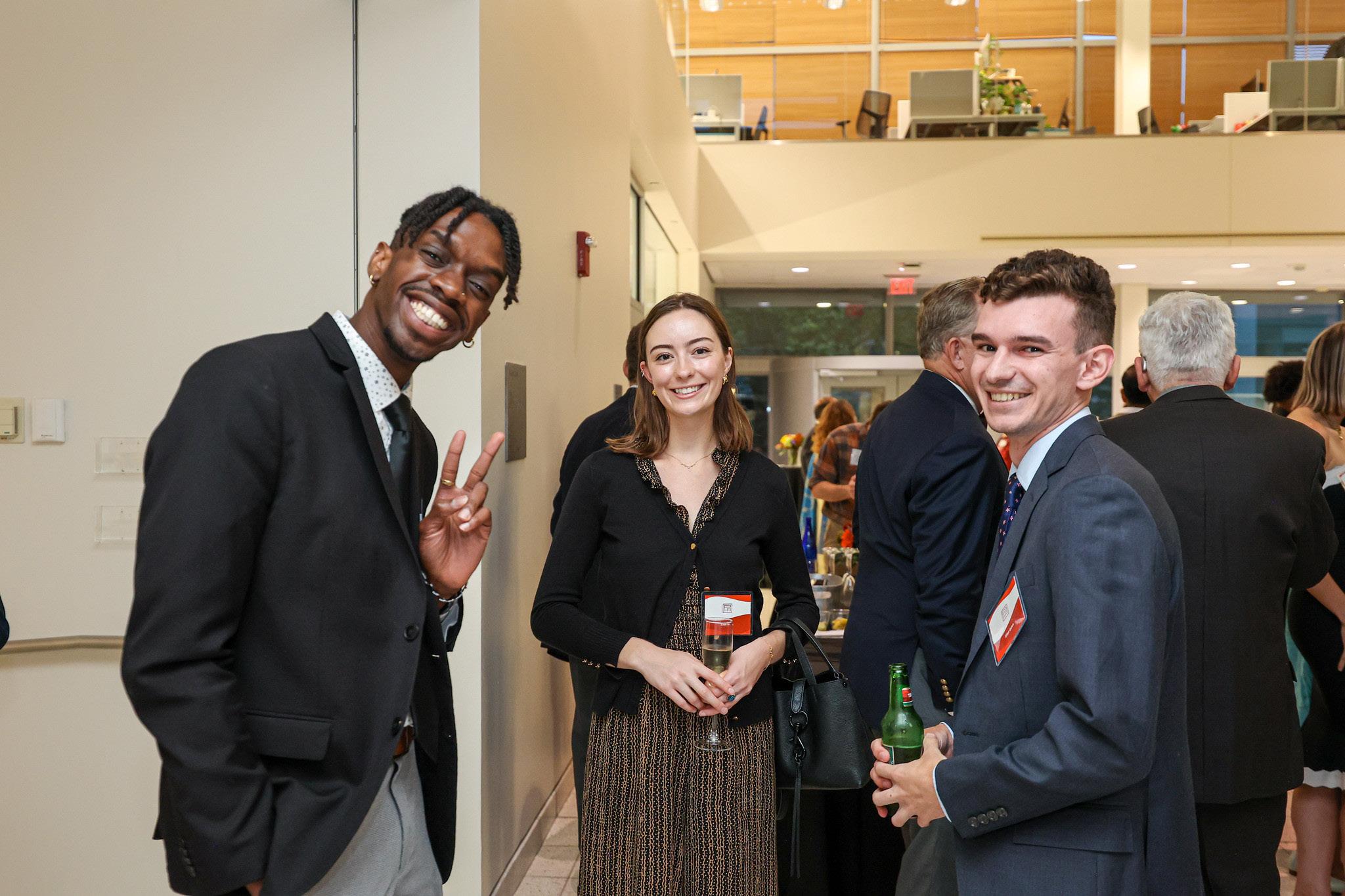
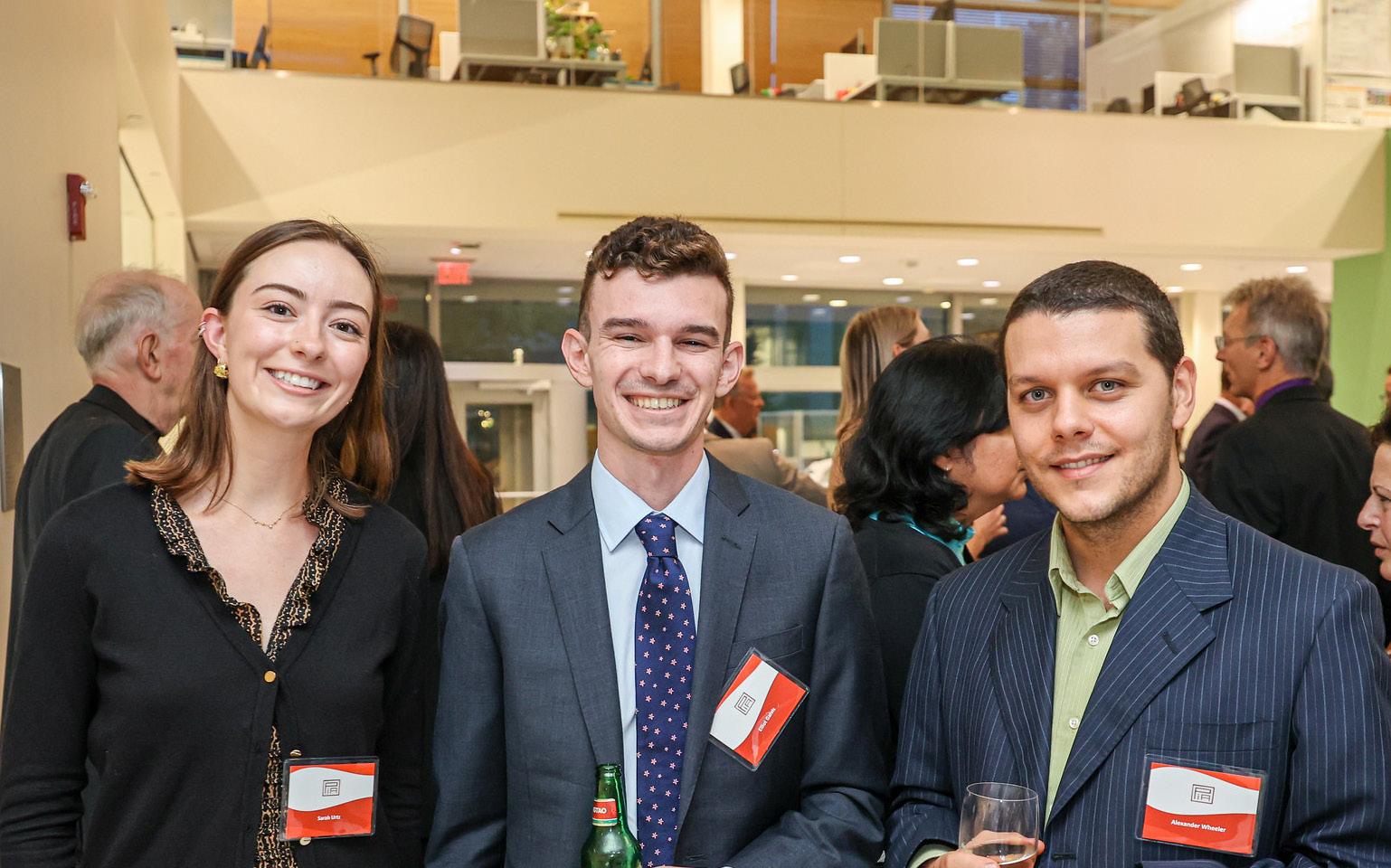

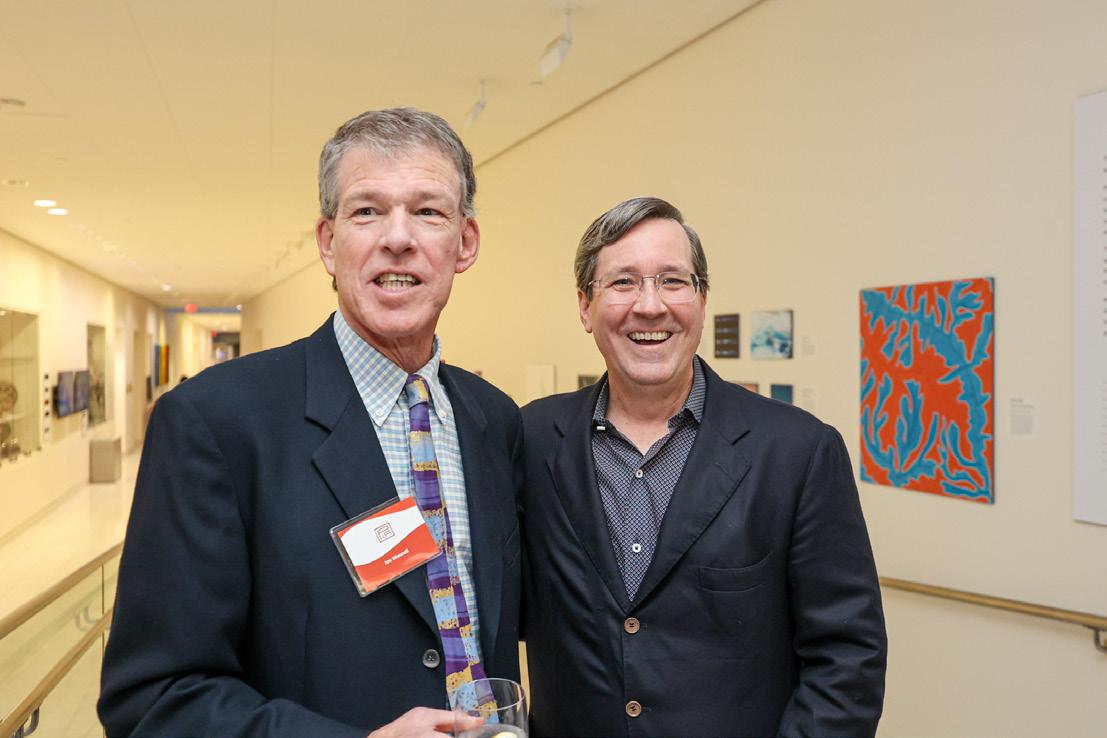

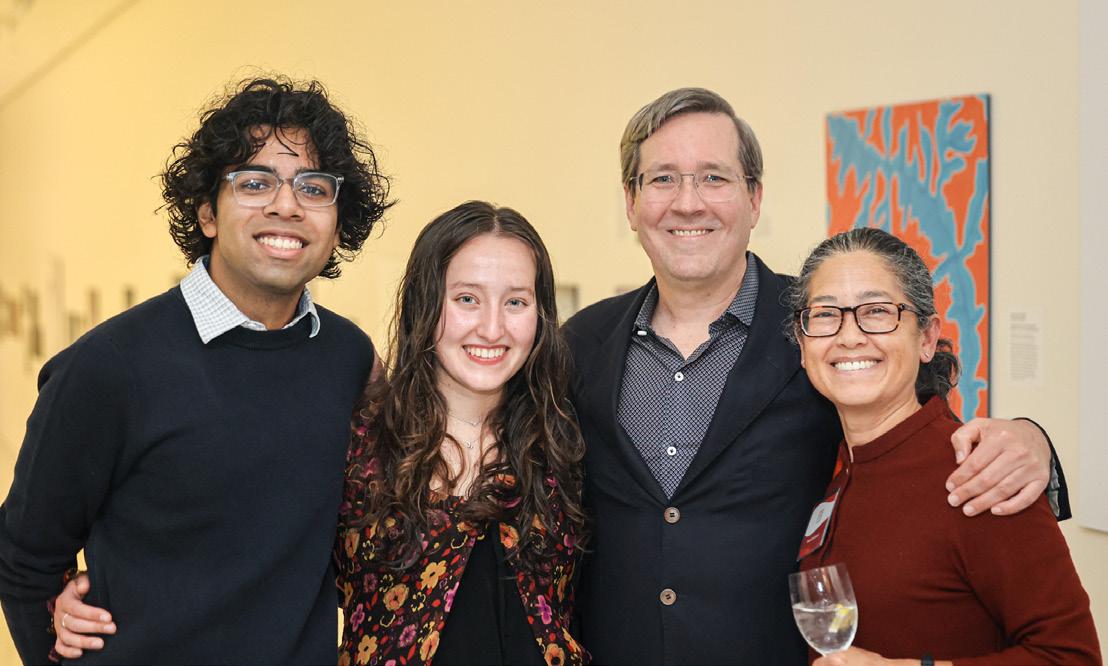
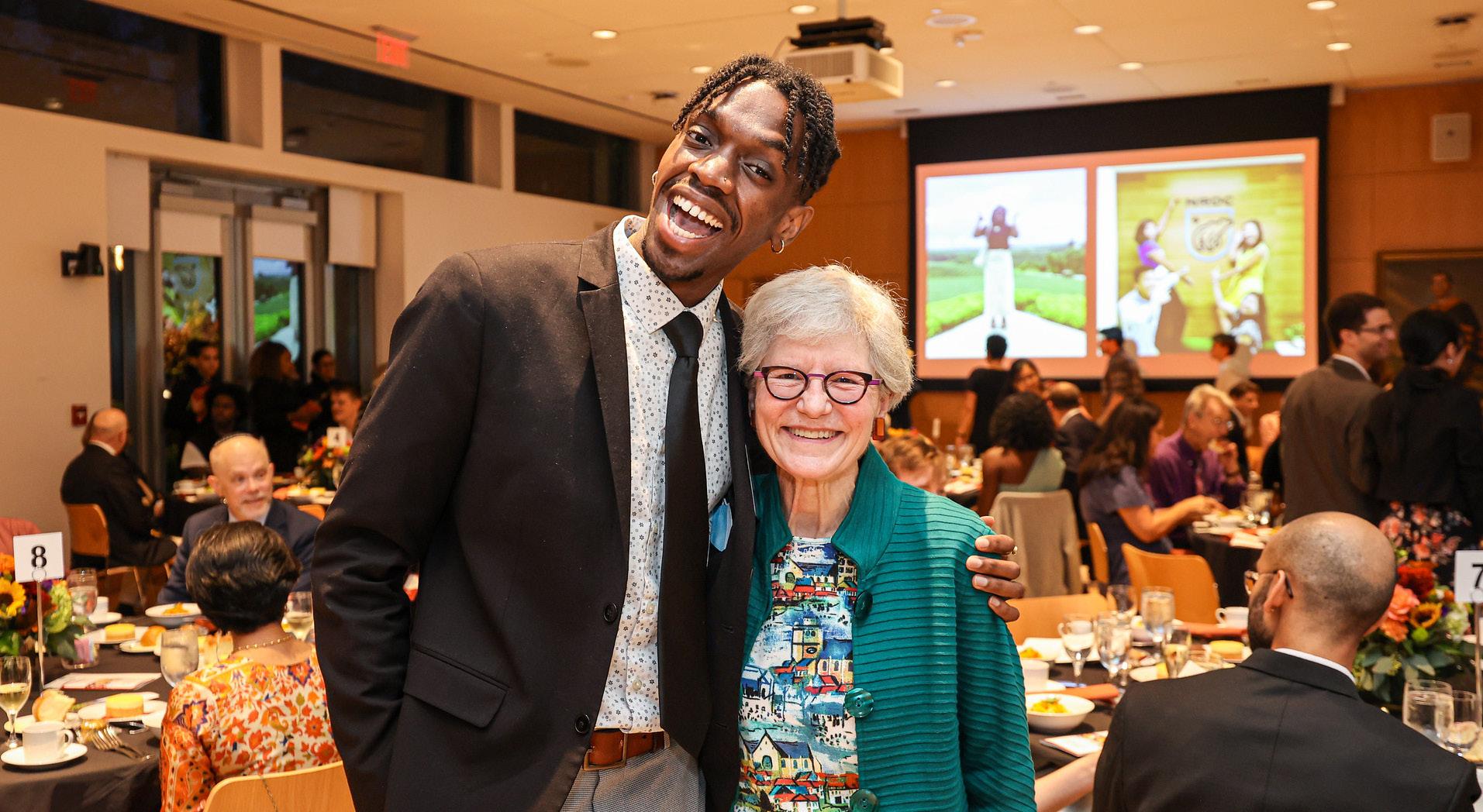
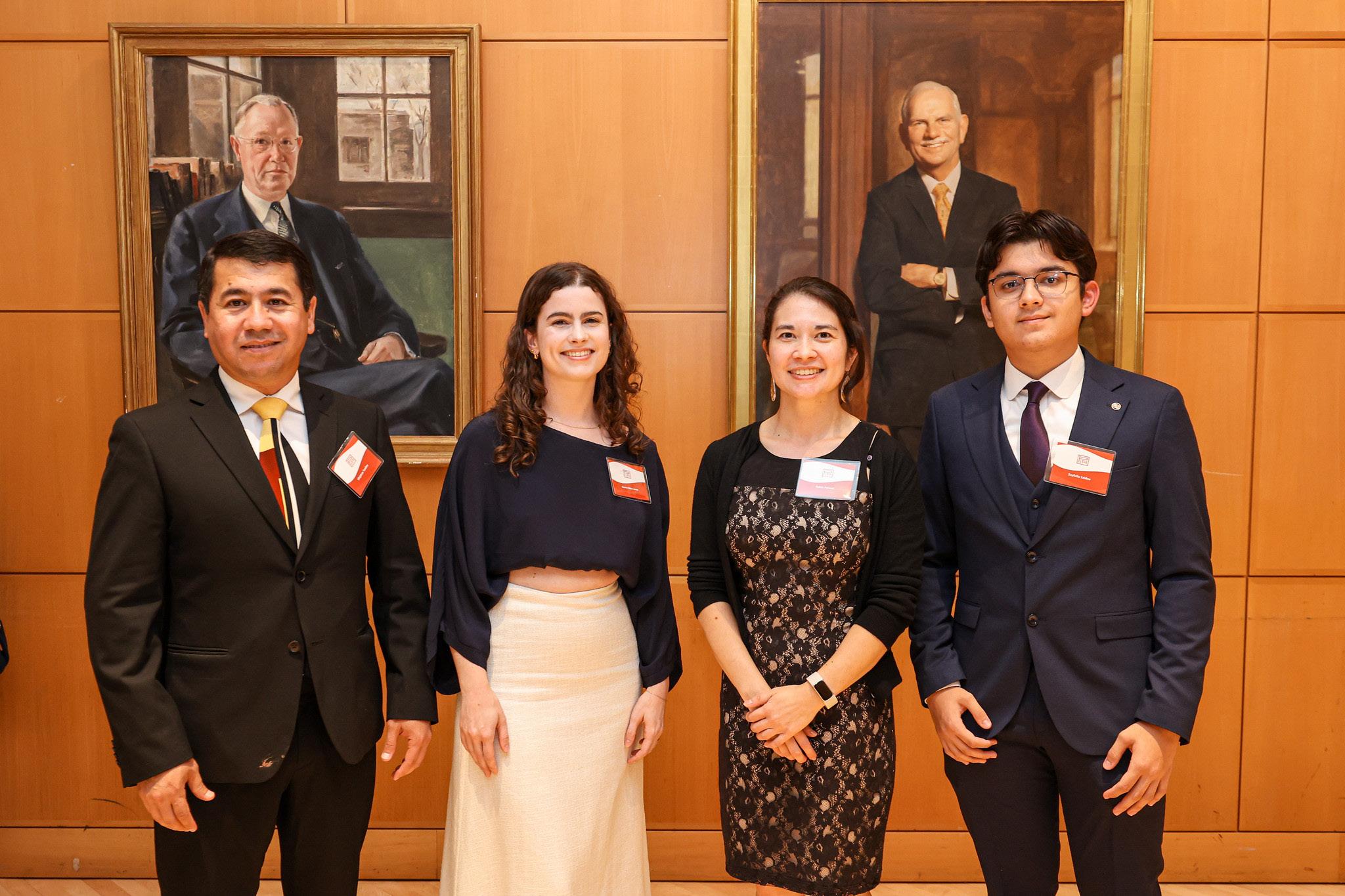

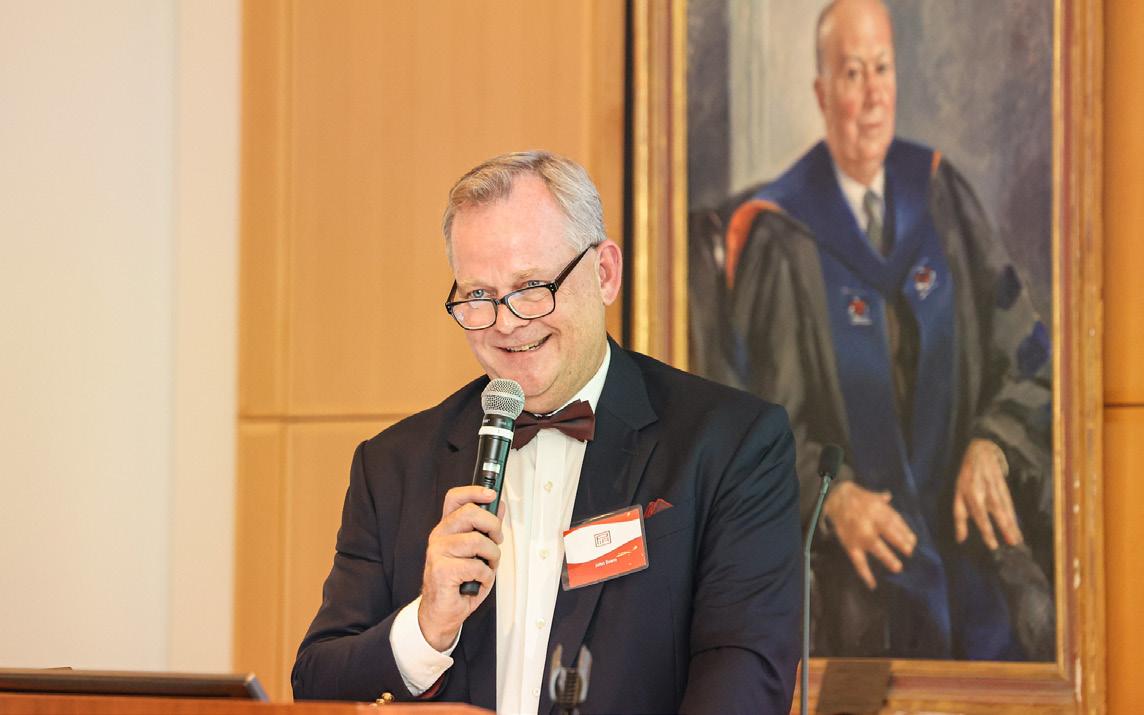
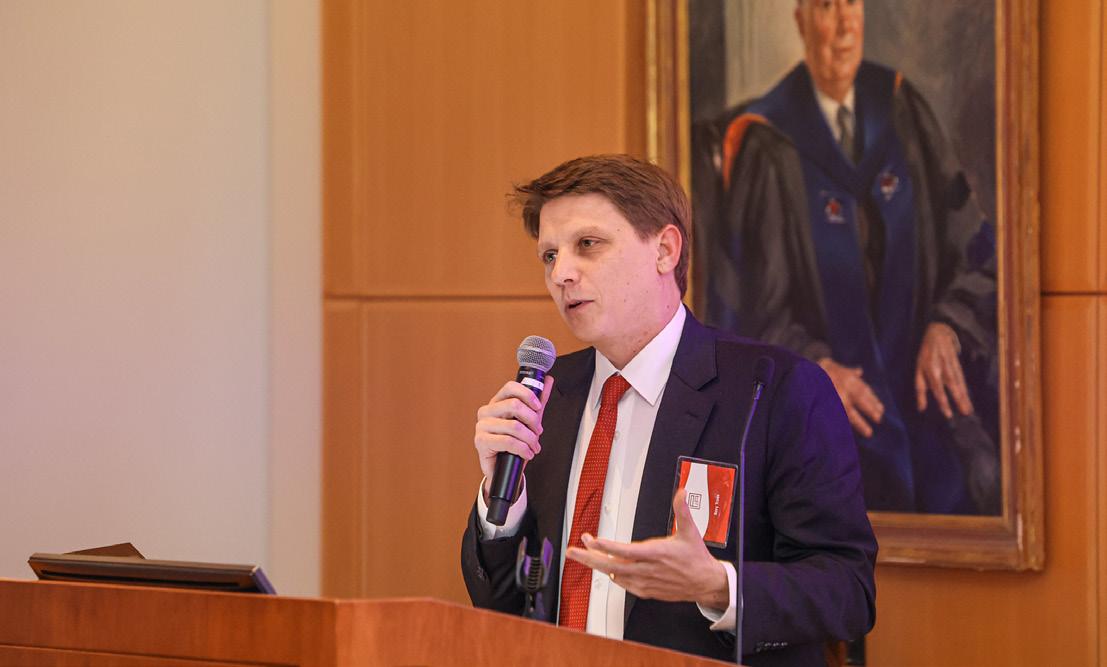

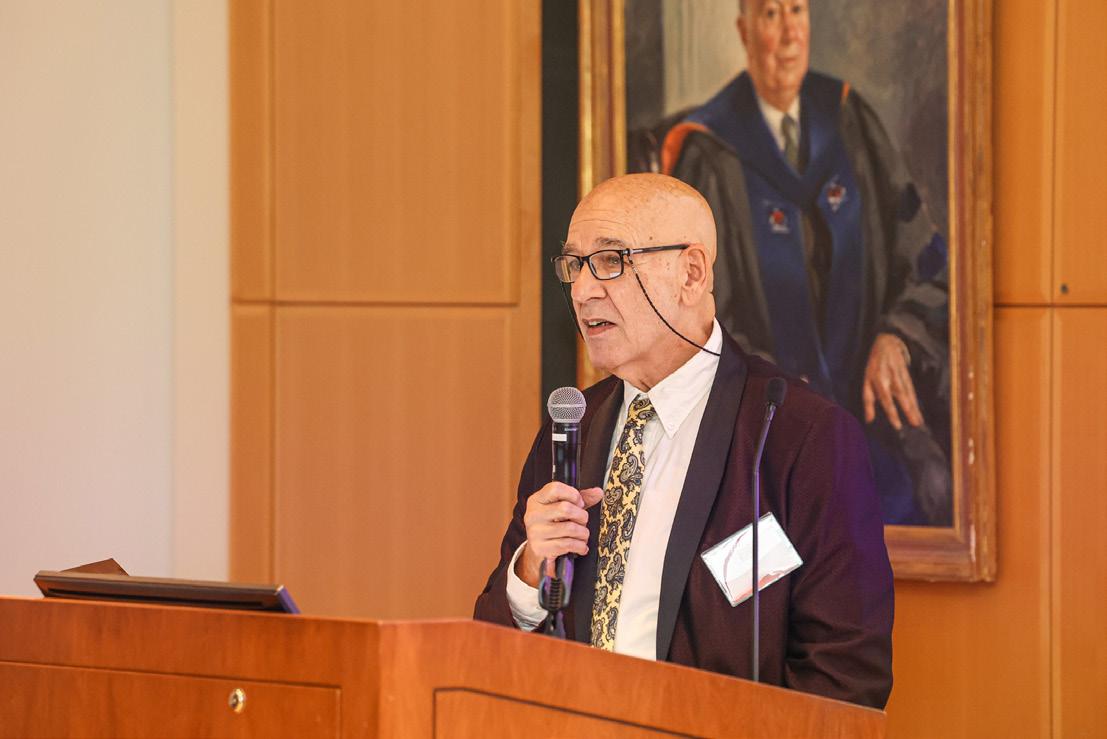

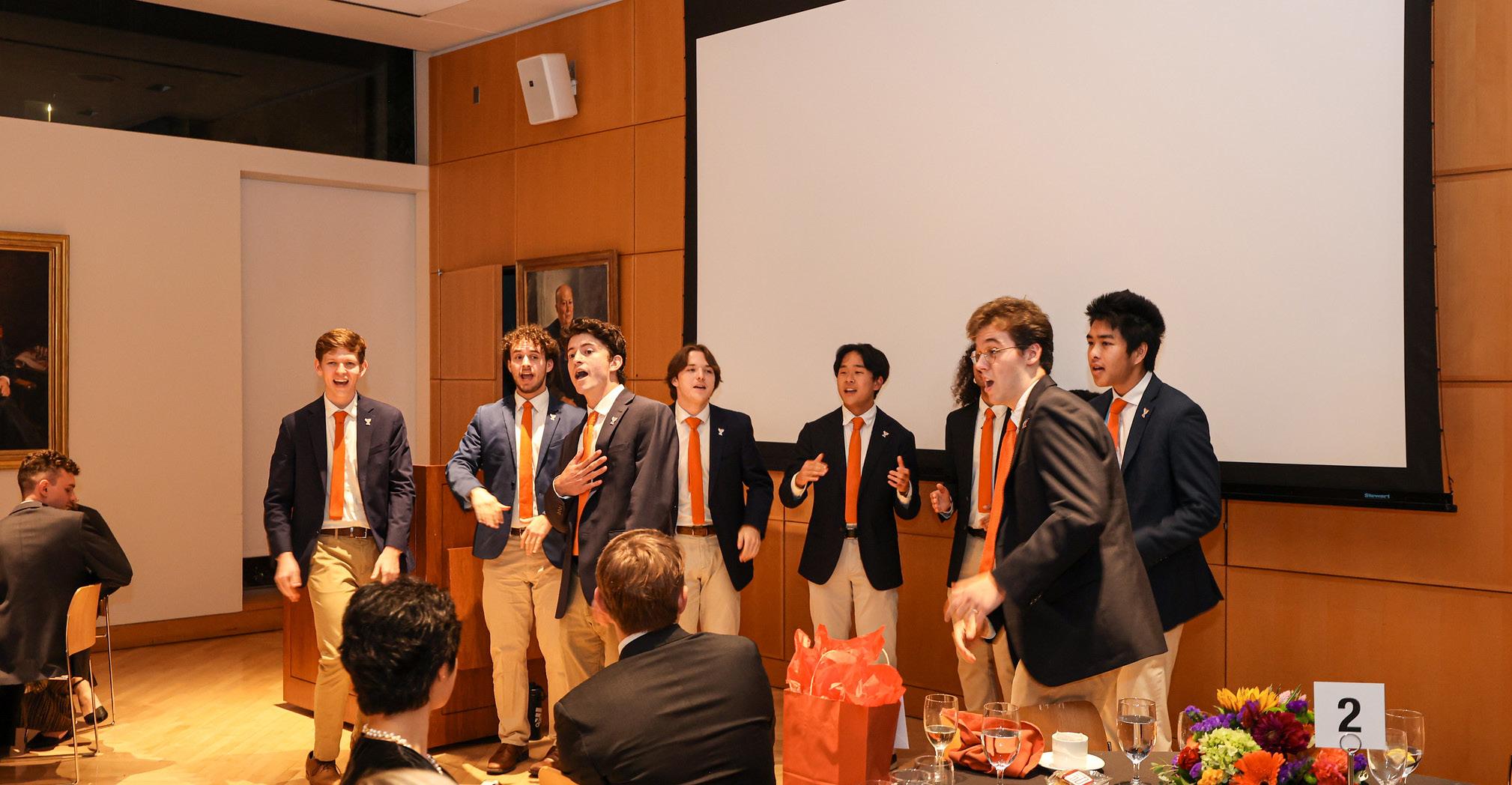
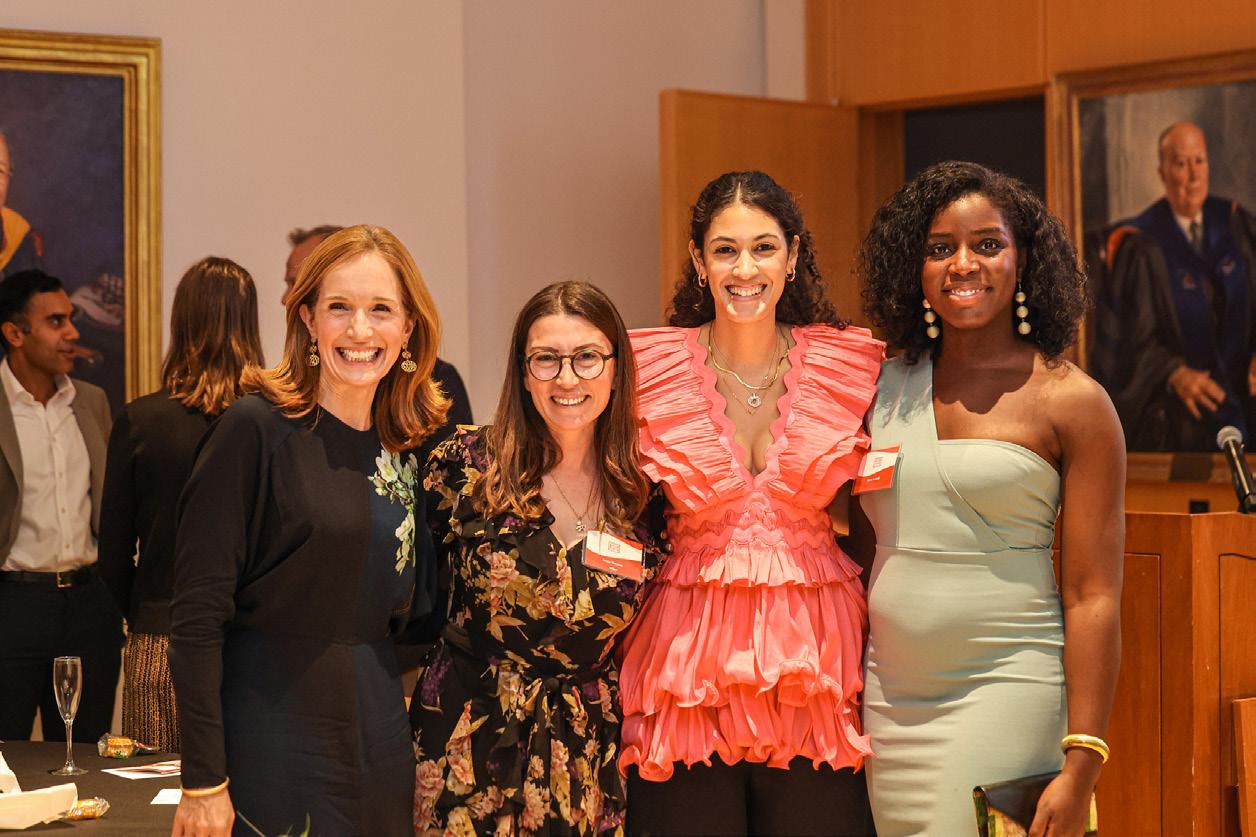
Post: Summer of Service at the Normal College of Jishou University Hometown: Abington, Pennsylvania School: Princeton University
Could you tell us about your PiA 180 experience?
Although I was only in China for a month and a half, my PiA internship was my first time living abroad. While I had been curious about Chinese culture, I had never seriously considered living in or working in China. I was surprised to find just how much enjoyed living in Jishou, and as I look for post-grad opportunities, I’ll definitely be keeping an eye out for more opportunities in China!
How does it feel to help relaunch PiA in China?
I am extremely honored to have been part of PiA’s relaunch in China. Like many others, I had been searching for opportunities to work in China for quite some time, but the challenges of the post-COVID years made it difficult for many programs to resume operations.
As a Chinese American, I’ve always been acutely aware of the social and cultural tensions between the United States and China. This awareness made me approach the experience with a mix of curiosity and apprehension. However, during my time there, was overwhelmed by the warmth and enthusiasm I received from PiA’s associates, my students, and even strangers I met along the way. The hospitality and generosity I encountered challenged some of my preconceptions and highlighted the shared humanity that transcends political divides.

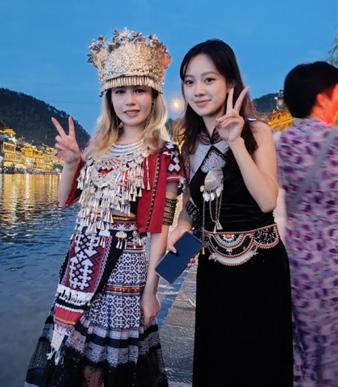
On a personal level, the experience was transformative. It was my first time visiting China, and teaching my students allowed me to forge meaningful connections while sharing knowledge and learning from their perspectives. Witnessing their eagerness to learn and grow reminded me of the powerful role education can play in fostering mutual understanding.
From a broader perspective, being part of PiA’s mission to “build bridges” between cultures felt especially significant given the current geopolitical climate. In a time of heightened tension, initiatives like this underscore the importance of people-to-people exchange in promoting empathy, collaboration, and understanding. My internship reaffirmed my belief that while governments may disagree, individuals can still find common ground, form meaningful relationships, and work toward a shared future.
After his PiA fellowship brought him to Shanghai in 2002, Luis Arturo Tapia (China ‘02) built a career in filmmaking that has spanned two decades and taken him across China and beyond. His latest documentary, Mother of Buffalo, follows Jean Leung’s fight to protect a dwindling population of wild water buffalo on Hong Kong’s Lantau Island.
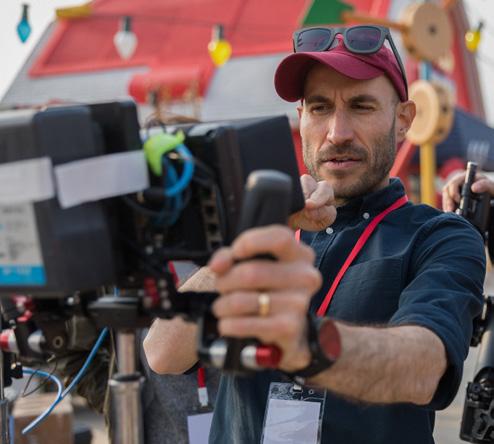
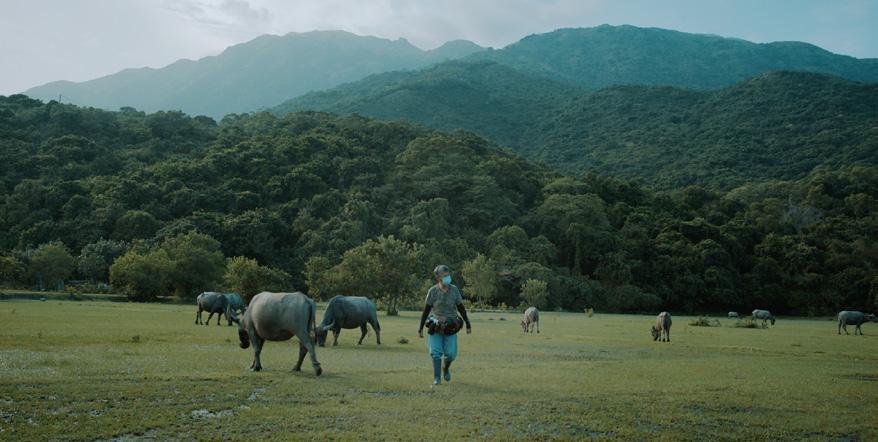
How did your time with PiA help you connect with local communities and develop the cross-cultural understanding necessary for a film like this?
PiA gave me the opportunity to be deeply embedded in a fascinating place. That opportunity is what I was looking for. I didn’t have a plan to stay beyond the first year... indeed I had no real plan at all for what I might do after. But once the first year was completed I knew wasn’t ready to leave China. So I stayed for 20 years! And my wife
and I might very well go back and settle there one day.
What lessons do you hope audiences, particularly those with an interest in conservation or cross-cultural human narratives, take away from Mother of Buffalo?
I don’t think in terms of providing a lesson per se. I hope audiences take away a sense of the beauty that I see in Jean’s struggle to protect the buffalo despite
Front row (L-R): Robin Palmer (Kazakhstan ‘15’16), Auds Jenkins (Vietnam ‘14), Samantha Stroup (Malaysia ‘14, Laos ‘15, Carriebright ‘16, Laos ‘18), Meghana Nerurkar (Macau SAR ‘17), Sarah Ziker (Taiwan ‘14), Boo Dodson (Kazakhstan ‘14), Julian Peterson (Thailand ‘16-’17). Back row: Michael Augustine (Vietnam ‘16), Mags Dillon (Laos ‘10-’12), Eliza Mott (Laos ‘16), Alex Decorrevont (Thailand ‘16), Ramzi Babouder-Matta (Vietnam ‘14, Kyrgyzstan ‘16), Mahalia Kahsay (Thailand ‘14), Jeremiah Firman (Thailand ‘14), Liz Marut Kathy Rivera (Laos ‘15). [1]
It was a *Berry* PiA wedding in Detroit this September, as Eliza Berry (Vietnam ‘09, Laos ‘10) celebrated her marriage to Chris Ward. Pictured (L-R): dad Rick Berry (Japan ‘76, former Chair of the Board), Thao Huynh Conrad (the Delta Fellows’ BFF from Can Tho), Mags Dillon (Laos ‘10-’12), Liz Hollingsworth (Vietnam ‘09), Eliza, Jenni Cochran (Vietnam ‘09), mom Carla Berry (PiA stalwart), Matt Berry (Thailand ‘07, Indonesia ‘08) and Chris [2]
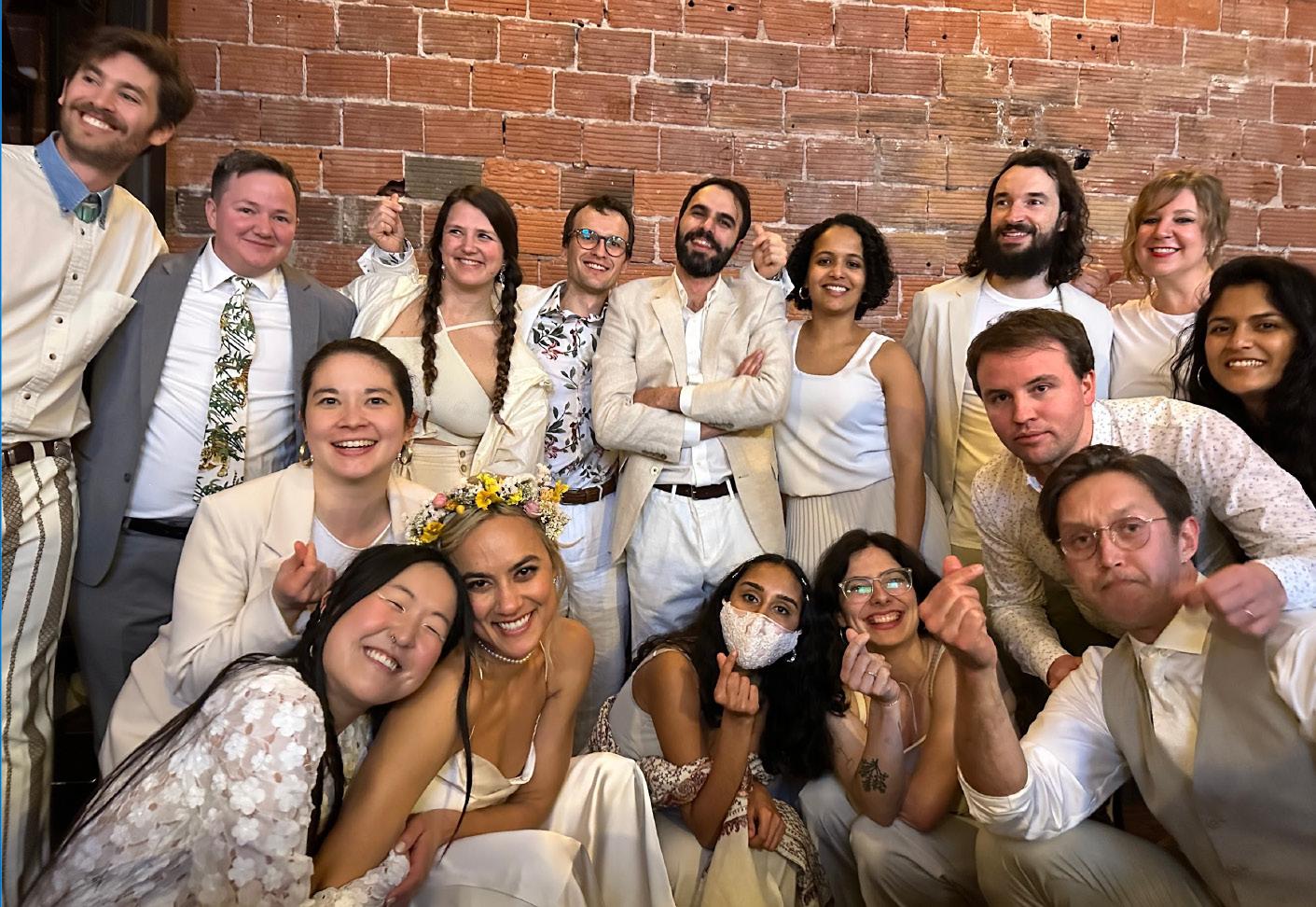
Trisha Chaudhary (India ’18), Washington Cole (Singapore ’24) and Maya Bian (Laos ’22’23) caught up in Singapore. [3]
Leroy Terrelonge (Kazakhstan ’11) took the Almaty fellows out for lunch on a visit to KZ this past fall. Clockwise from front left: Gwen Carlson ‘24, Leroy Terrelonge ‘11, Claire Salmi ‘23-’24, August Caldwell ‘23-’24, Nina Gopaldas ‘24. [4]
very long odds. I hope the story inspires meditation on our relationship with nature, and the impact and costs of human development. And suppose I do hope audiences learn something about Hong Kong they didn’t know. Most people associate Hong Kong with a massive urban center, but it’s incredibly diverse, with a stunning natural landscape. Quite a few local Hong Kongers came up to me after the preview screenings to say they never knew about the buffalo. It was really special to see how that increased awareness gained Jean and the buffalo new supporters and advocates.
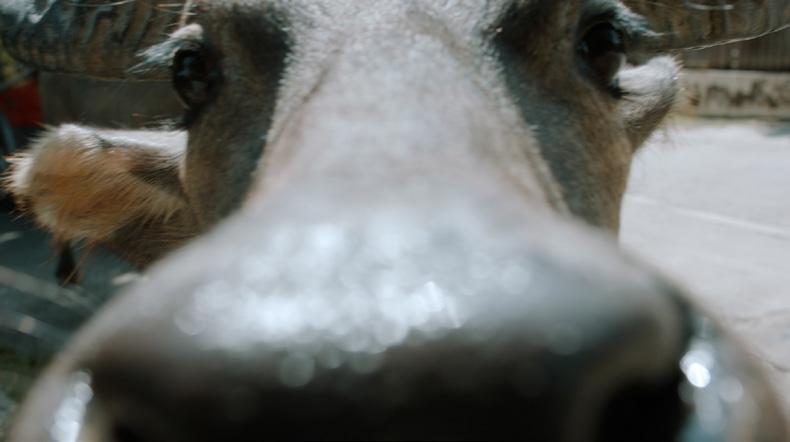
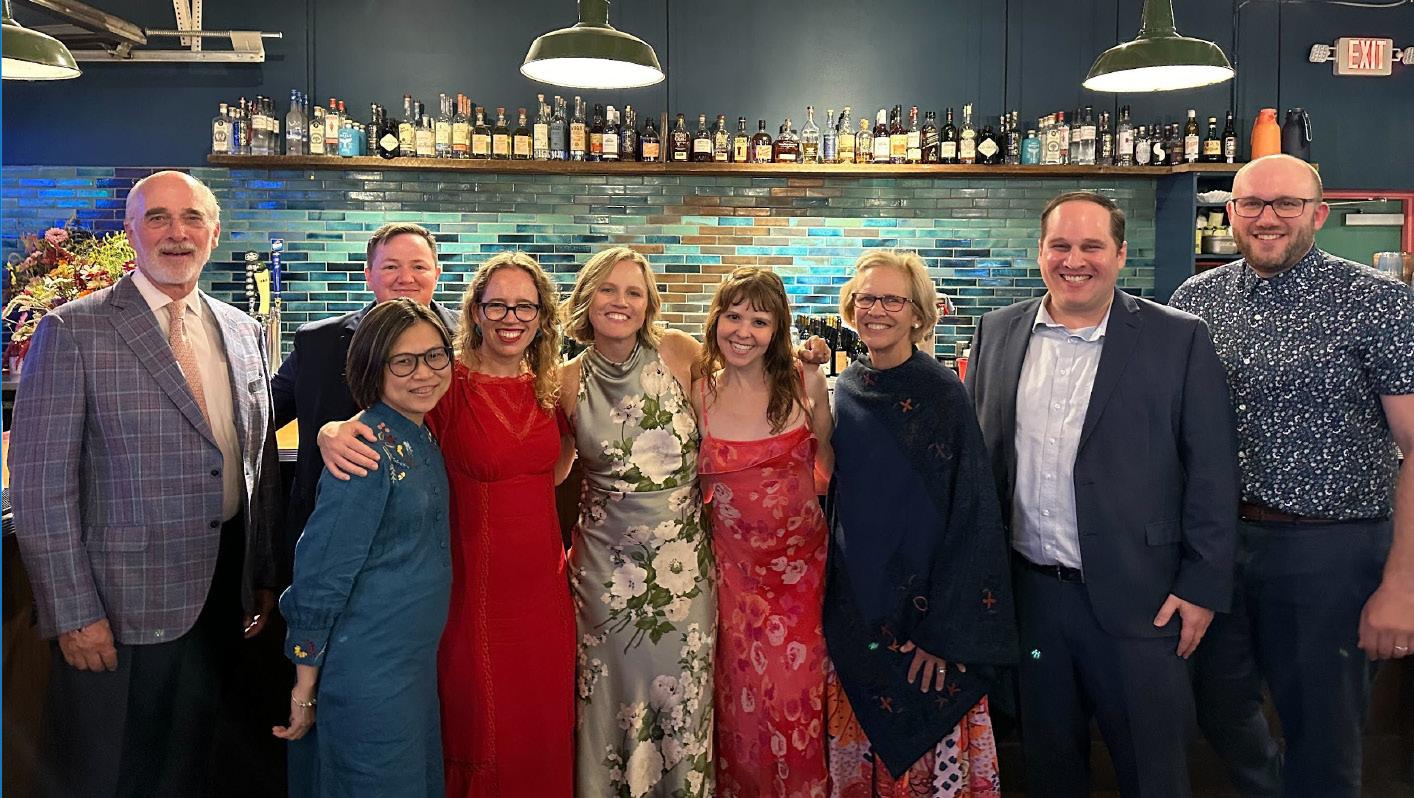
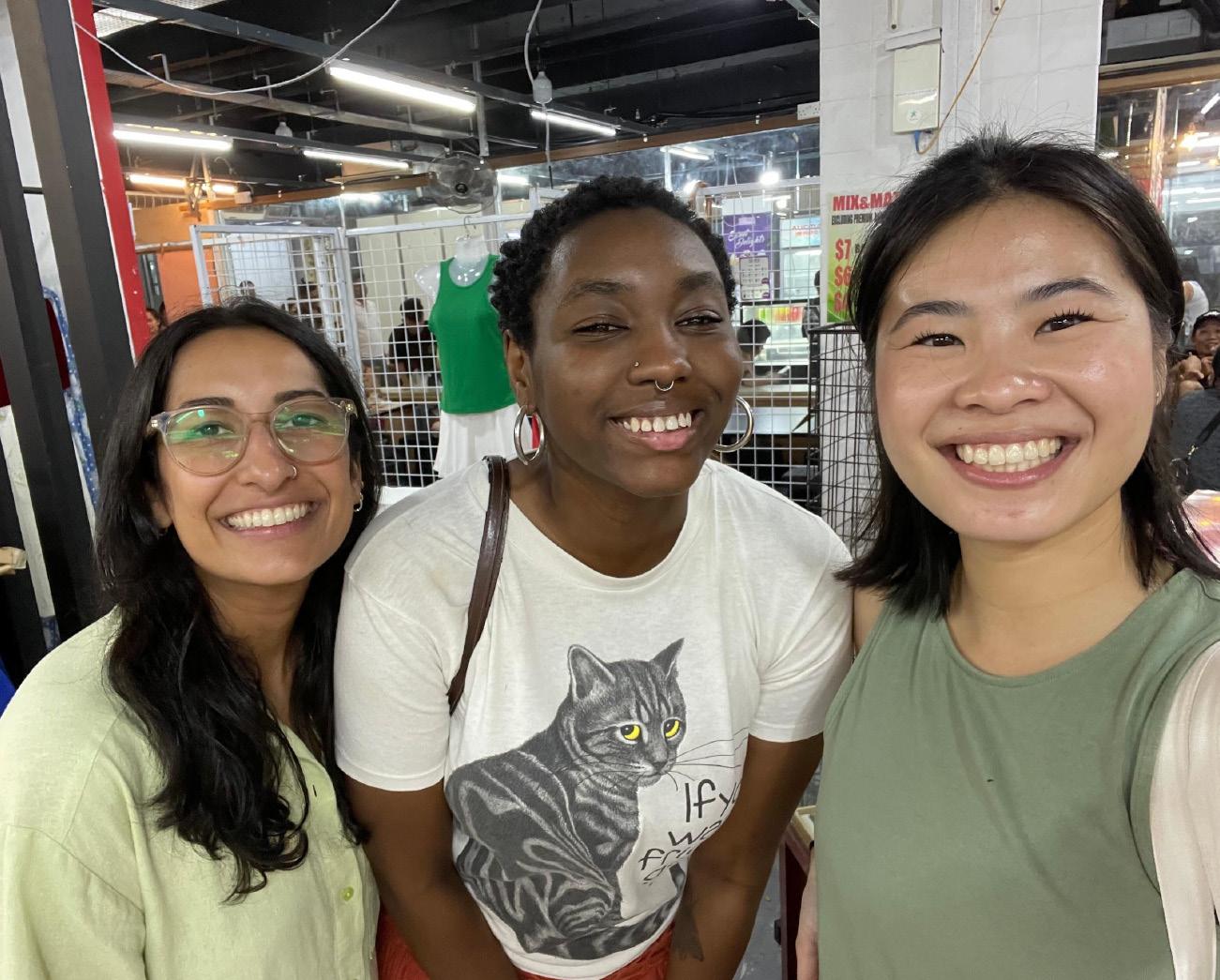

Hannah D’Apice (Singapore ‘14) will soon graduate with her Ph.D. in International and Comparative Education from Stanford University. Her research explores how universities develop programs and policies to support historically marginalized groups, particularly those marginalized on the basis of race, ethnicity, gender, and/or sexuality. While at Stanford, she was awarded the ‘Diversifying Academia, Recruiting Excellence’ (DARE) fellowship, which supports doctoral students preparing for academic careers. As she interviews for positions, Hannah looks forward to applying her passion for teaching and her research interests in international and comparative education – both of which were inspired by her time with Princeton in Asia!
After her year in Laos, Esther Nguyen (Laos ’22) continues her work in Southeast Asia through her Master of Science in Public Health and Registered Dietitian Program at the Johns Hopkins School of Public Health. Since PiA, she’s published her research in Indonesia and is currently living in Vietnam for her Public Health Dietitian Practicum at the National Institute of Nutrition in the Ministry of Health. During this time in SE Asia, she’s also traveled to connect with current fellows in Laos and alumni fellows in Thailand, like her old supervisor, Euay Noi! [5]
Lisa Heller (China ‘86) retired from the State Department after a 33-year career, much of it spent in Asia (China, Korea, Pakistan). Her final posting was as the Consul General at the U.S. Consulate in Guangzhou, China, a city she first visited during the Spring Festival while she was working in Dalian. She is making her home in northern Virginia and is pursuing various volunteer activities while cleaning out three decades worth of Asian memorabilia.
Allison Behringer (Thailand ‘12) received the 2024 Livingston Award, one of the highest honors for journalists under 35. She and her colleague, Lila Hassan, won the national reporting category for their work on Bodies podcast, including episodes about postpartum psychosis, abortion training after Roe, and early-onset puberty. Allison now lives in Europe and recently was
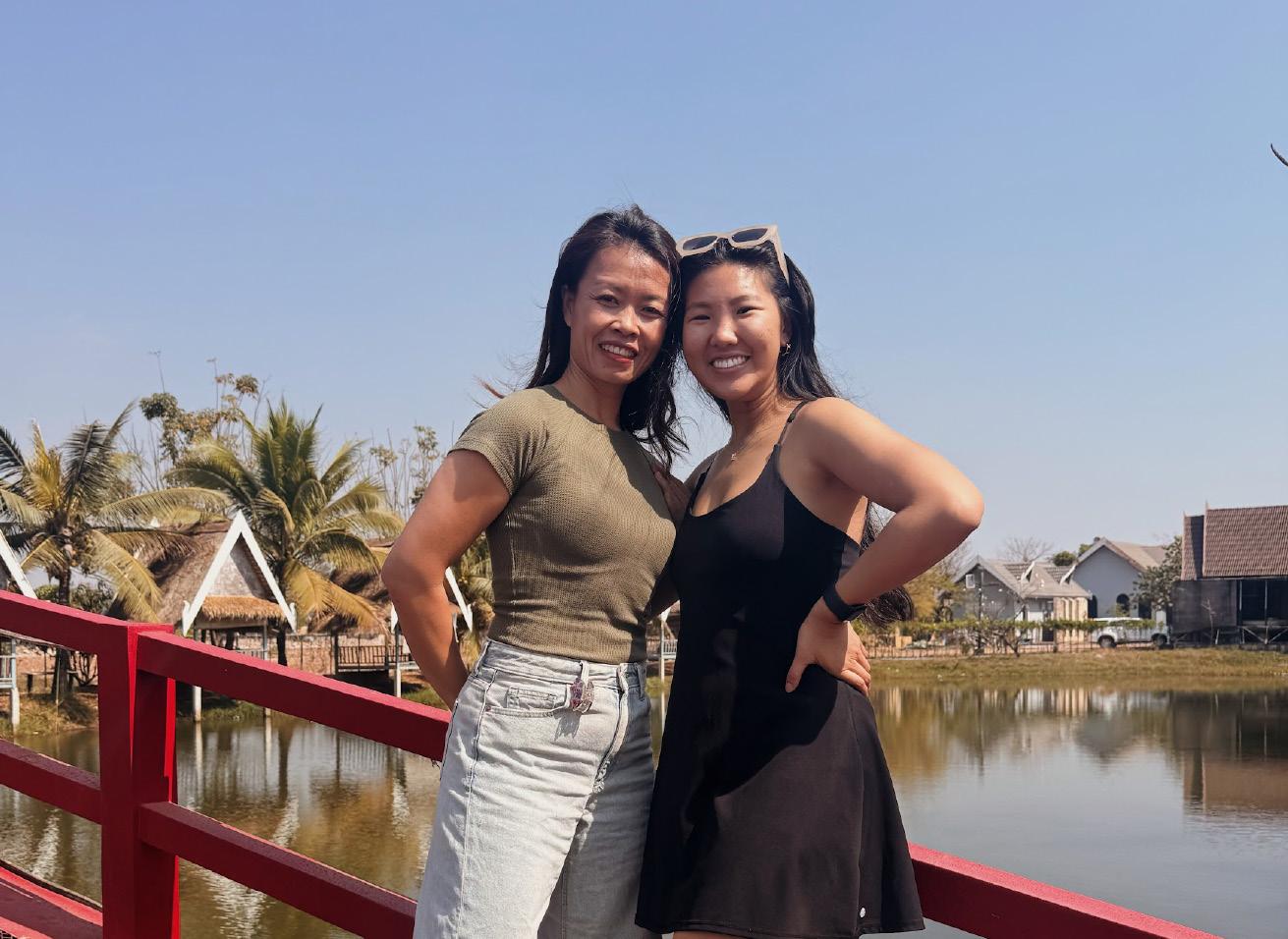
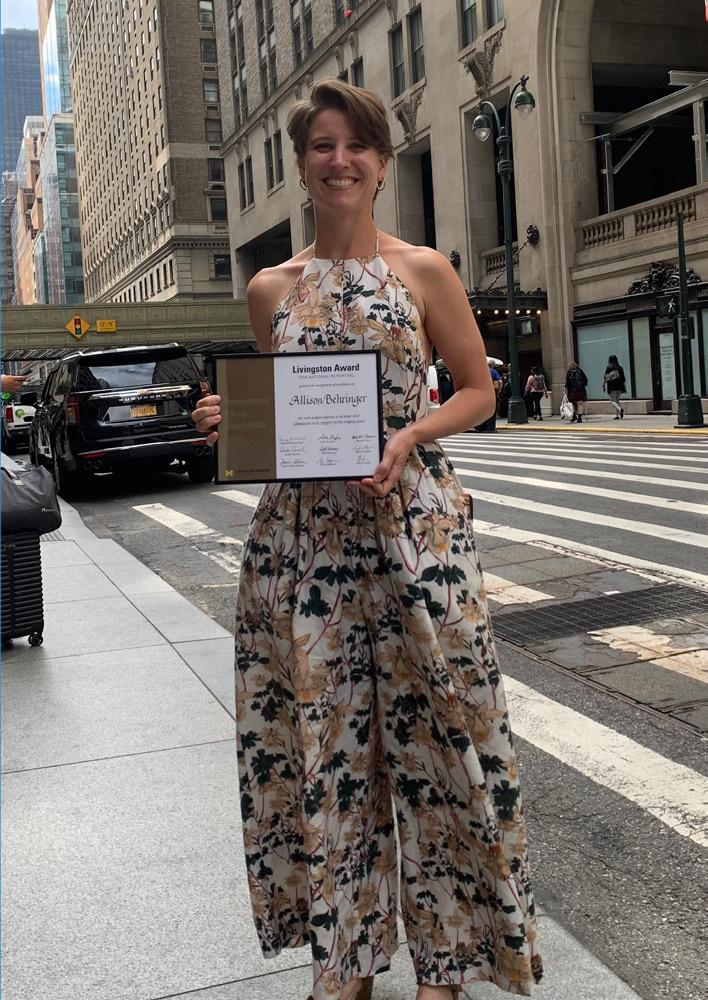
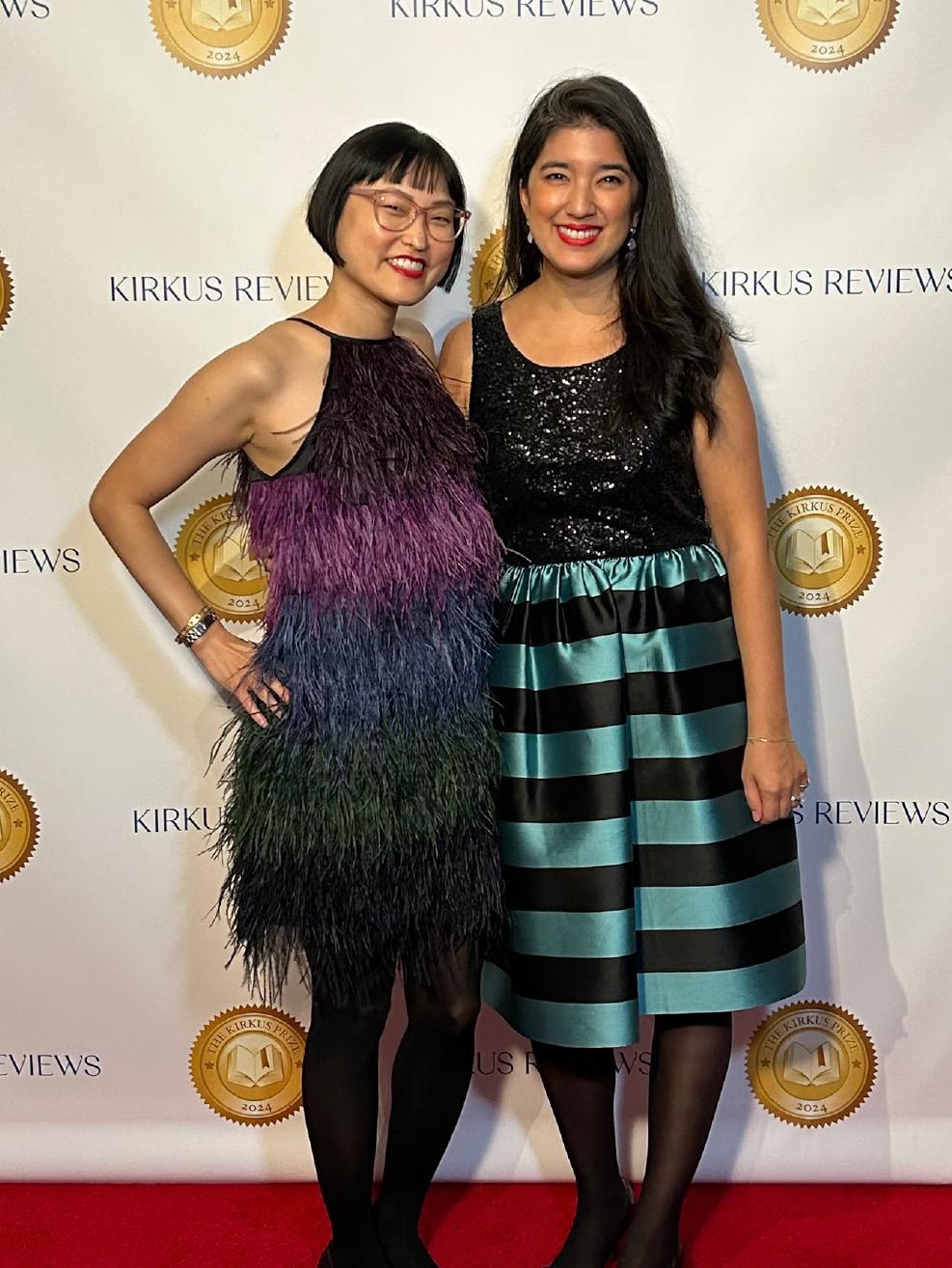
thrilled to find a store in a nearby city with some quality Thai curry paste. [6]
Over in New York, Hannah Bae (Korea ’07) spent much of 2024 reading feverishly as one of two nonfiction jurors for The Kirkus Prize, which went to the riveting book Challenger by Adam Higginbotham. [7]
A transformative PiA teaching fellowship with the Prince Royal’s College launched
American College Personnel Association (ACPA) Commission on Academic Affairs with the prestigious Coalition-Builder Award.
Jack Styler (Kazakhstan ‘22) moved to Rēzekne, Latvia last August to be a Fulbright ETA. In addition to teaching, he’s studying Russian, writing freelance stories, and blogging. He’ll be in Latvia until June.
Chloe Kibble (Japan ’19) has channeled her passion for music and community organizing into a remarkable journey in Tokyo. As a singer-songwriter, her vocal versatility has earned her a reputation in Japan’s dynamic music scene, where she’s shared the stage with rock icons, pop legends, jazz ensembles, and her own band, performing everywhere from intimate bars to major stadiums. Beyond music, Chloe is also one of nine organizers behind NAMNAM, a radical queer community space rooted in anarchist principles, recently spotlighted in the Japan Times. She’s also a proud member of the Tokyo chapter of Flock Together, a bird-watching community founded in the aftermath of George Floyd’s murder for Black and Brown folks of the diaspora to heal and connect through nature. She credits her transformative experience as a PiA fellow with Ashinaga for much of her current endeavors, with a cherished memory of bonding with scholars

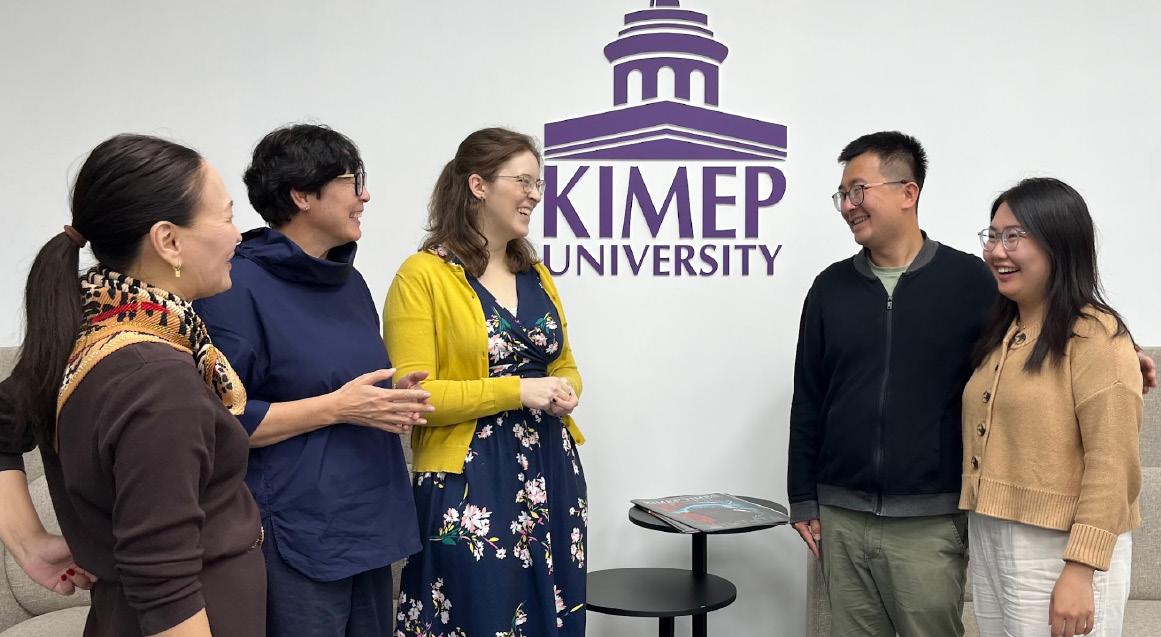
and staff around the grand piano at the kokorojuku. She is excited to continue her work and hopes to stay rooted in Tokyo for the foreseeable future. [8]
Hermes Huang (Thailand ‘12, Nepal ‘13) is still living it up in Thailand working with the United Nations and governments around Asia. He has recently launched iloilo, a new care worker training software.
Nick Conlon (Kazakhstan ‘15) has managed to stay connected to the region through his work as an attorney at Willkie Farr & Gallagher in Washington, DC, where he’s been able to work on a few cases involving political and business matters in Kazakhstan. He says these cases are always interesting and give him a chance to flex some local expertise and Russian or even a bit of Kazakh. Nick will be moving to London
in early 2025 and hopes to build new connections to Central Asia from the UK.
Yongjian Si (Kazakhstan ’18) and his partner Grace Yeung left their previous lives in San Francisco and started From Roots to Bridges (http://www.fromrootstobridges.com), a company dedicated to heritage-seeking trips for overseas Chinese and anyone interested in traveling to off-the-beaten path destinations in China, Central Asia, and Southeast Asia. They are currently living full-time and country-hopping in Asia while they continue to build their business in 2025. Follow their adventures on YouTube and Instagram @graceandyj. In September 2024, Yongjian and Grace stopped by Almaty, Kazakhstan, and visited Yongjian’s former coworkers and supervisors at KIMEP University. [9]
the international higher education career of Erica McGibbon (Thailand ‘07). In 2019, she became the first Black woman to serve as a PiA trustee, and has remained connected to PiA as a supporting hand in the program orientation process, annual dinner events, alumni career panels. This past May, she was honored with the Service to Princeton Award with the amazing support of the PiA staff and community. Looking ahead, Erica will be recognized again in 2025 by the
Have an exciting update you want to share with your fellow PiA alums? Email us at s.thomas@princetoninasia.org so you can be included in next year’s edition of Pacific Bridges.
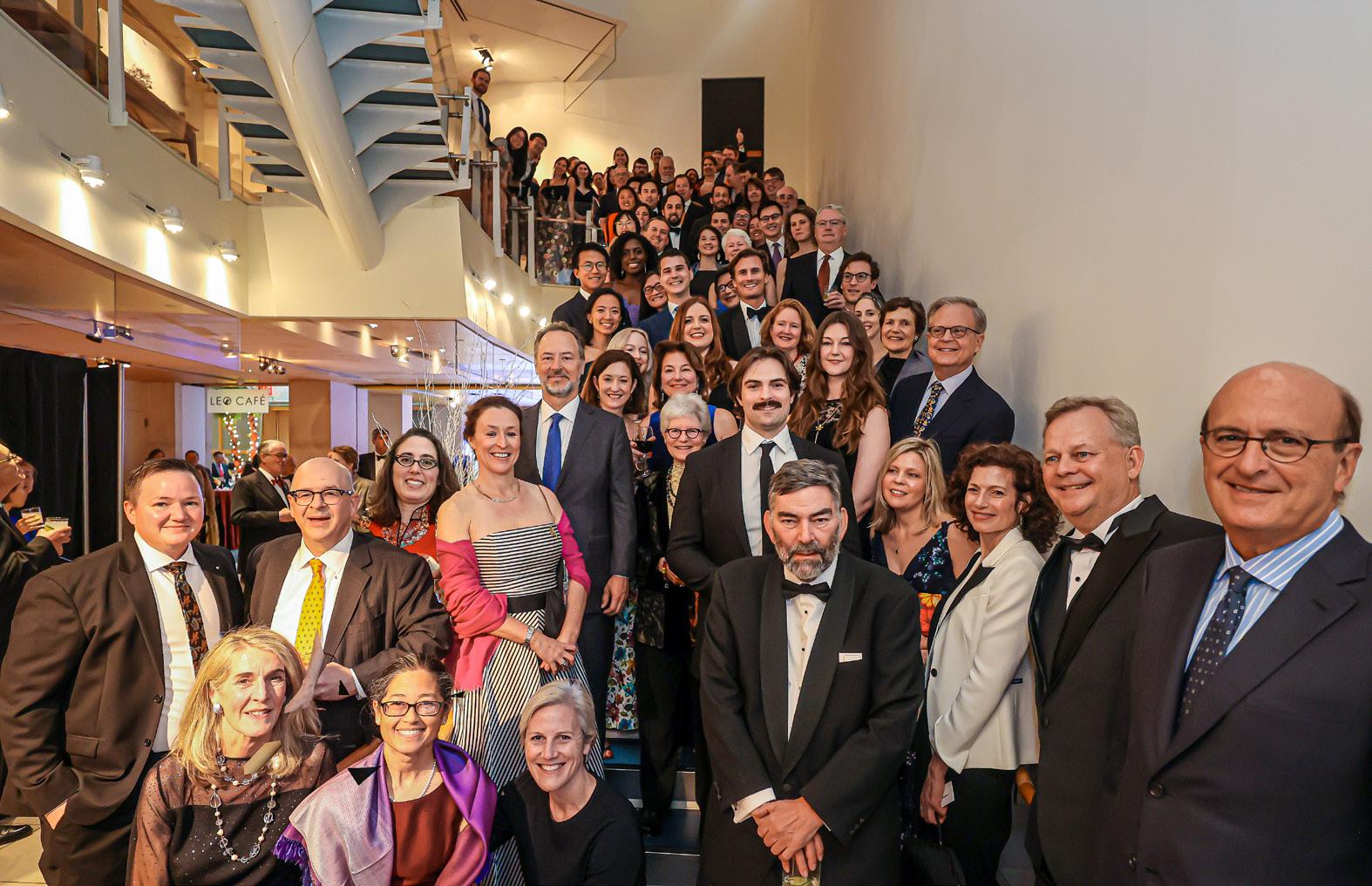

Last summer, we welcomed the Fellow Class of 2024 to the PiA family at send-off events in Seattle, New York City, and the Bay Area.
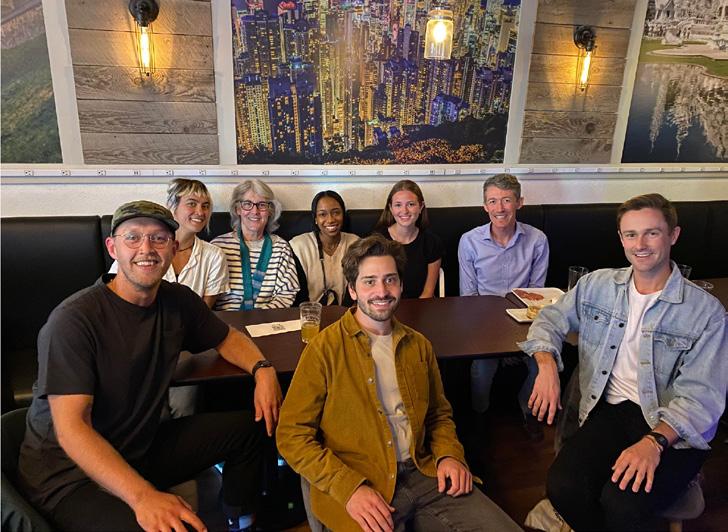
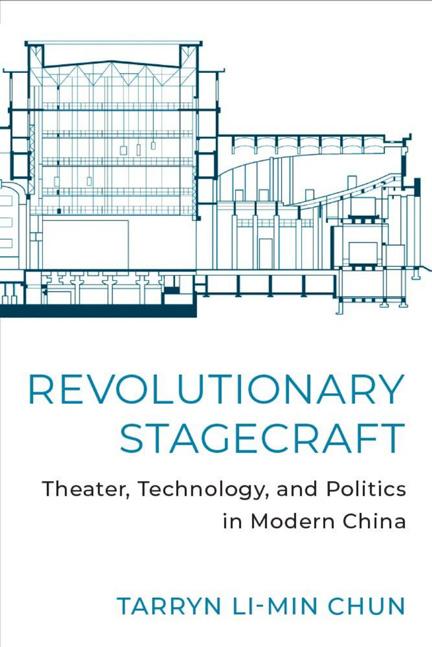
In Revolutionary Stagecraft: Theater, Technology, and Politics in Modern China, Tarryn Li-Min Chun (Taiwan ’06) explores the intersection of theater, politics, and technological modernization in 20th-century China. From the adoption of modern stage equipment in the 1920s to the technological boom of the 1980s, Chun uncovers how Chinese theater artists and technicians used stagecraft to navigate political upheavals and artistic transformations. With case studies ranging from makeshift revolving stages to the challenge of simulating a nuclear explosion onstage, this groundbreaking work sheds light on the material and technical dimensions of Chinese theater history.
In Among the Bros: A Fraternity Crime Story, Max Marshall (Vietnam ’16) uncovers the dark underbelly of elite American fraternity life. What began as an investigation into a small-time Xanax trafficking ring at the College of Charleston led Marshall to a shocking web of drugs, money, and murder stretching across the Deep South. With gripping narrative detail and immersive reporting, he exposes the hidden power structures of Greek life – where status and privilege collide with crime and corruption. Part true-crime thriller, part social exposé, Among the Bros is a riveting look at the forces shaping America’s next generation of leaders.
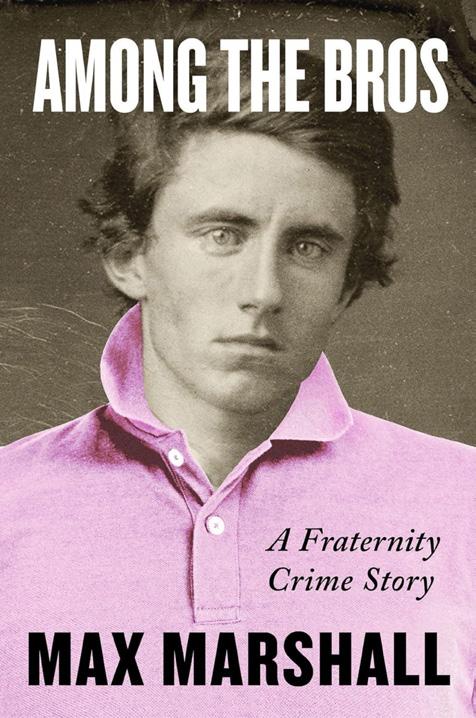
Phone: 609.258.3657
contact@princetoninasia.org www.princetoninasia.org
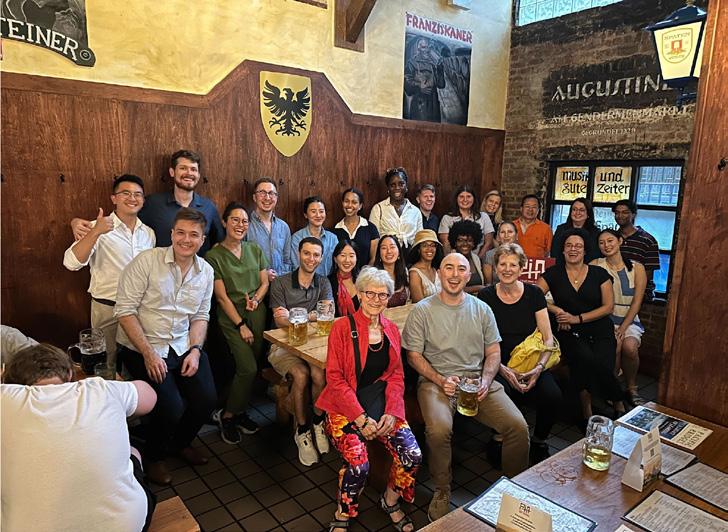
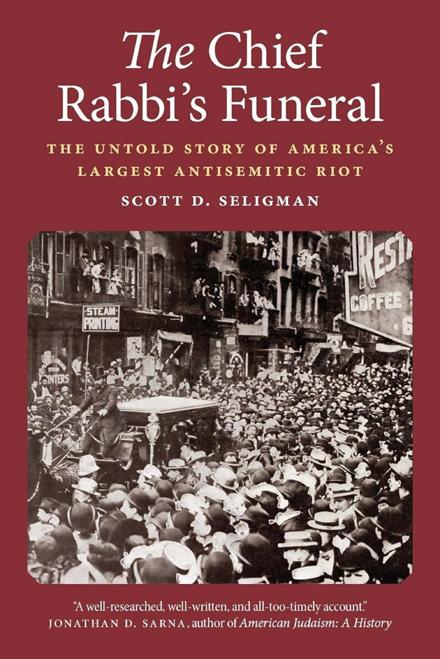
A 2024 American Book Fest Award
Finalist in U.S. History, The Chief Rabbi’s Funeral: The Untold Story of America’s Largest Antisemitic Riot by Scott D. Seligman (Taiwan ’73-’74) brings to light a shocking but little-known chapter of American history. When mourners gathered in New York’s Lower East Side in 1902 to honor Chief Rabbi Jacob Joseph, an antisemitic attack by factory workers – and the brutal police response that followed – sparked outrage and a turning point in Jewish political activism. With meticulous research and vivid storytelling, Seligman chronicles how New York’s Jewish community fought back, setting a precedent for justice and reform in the city’s corrupt police force.